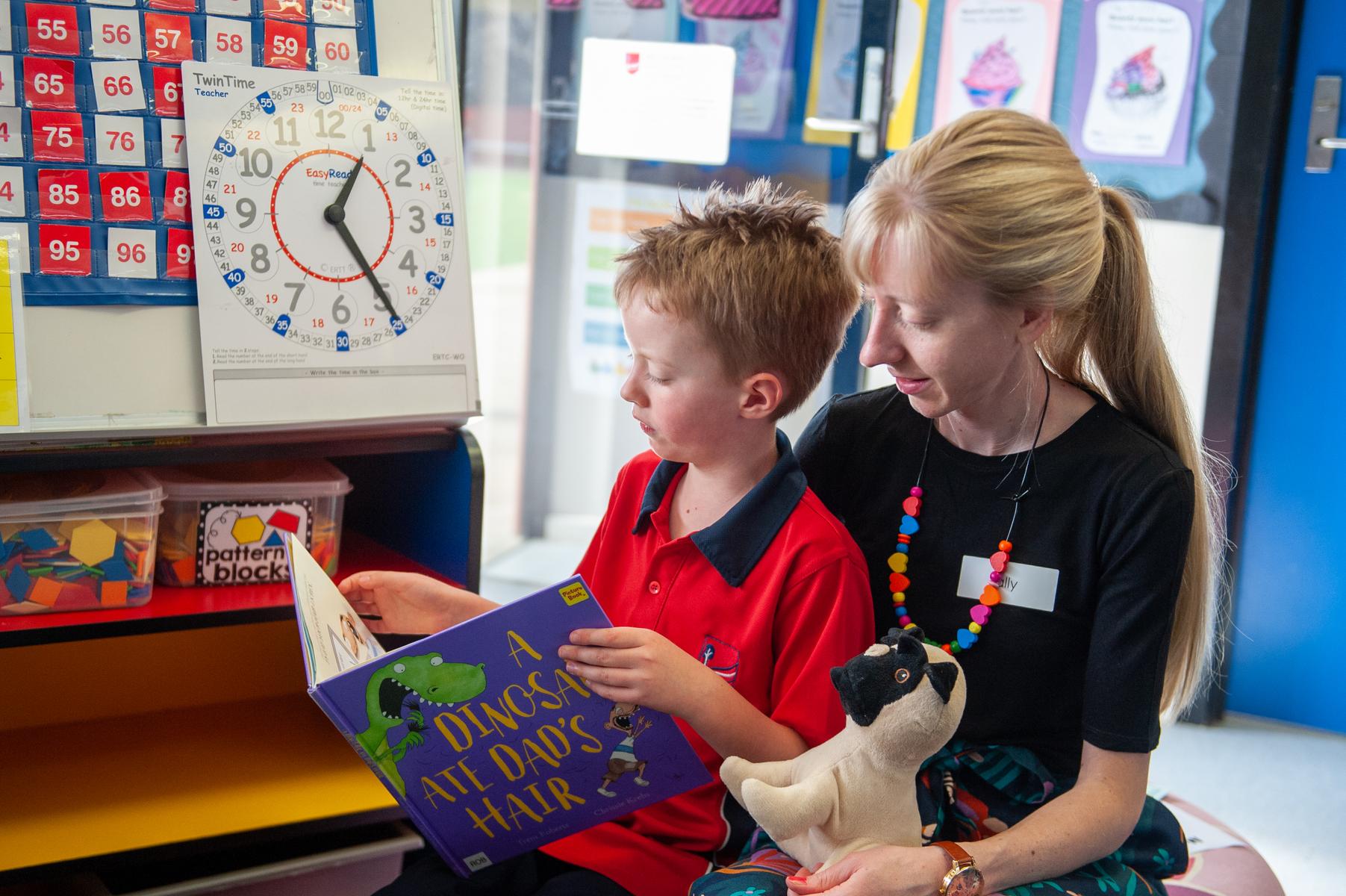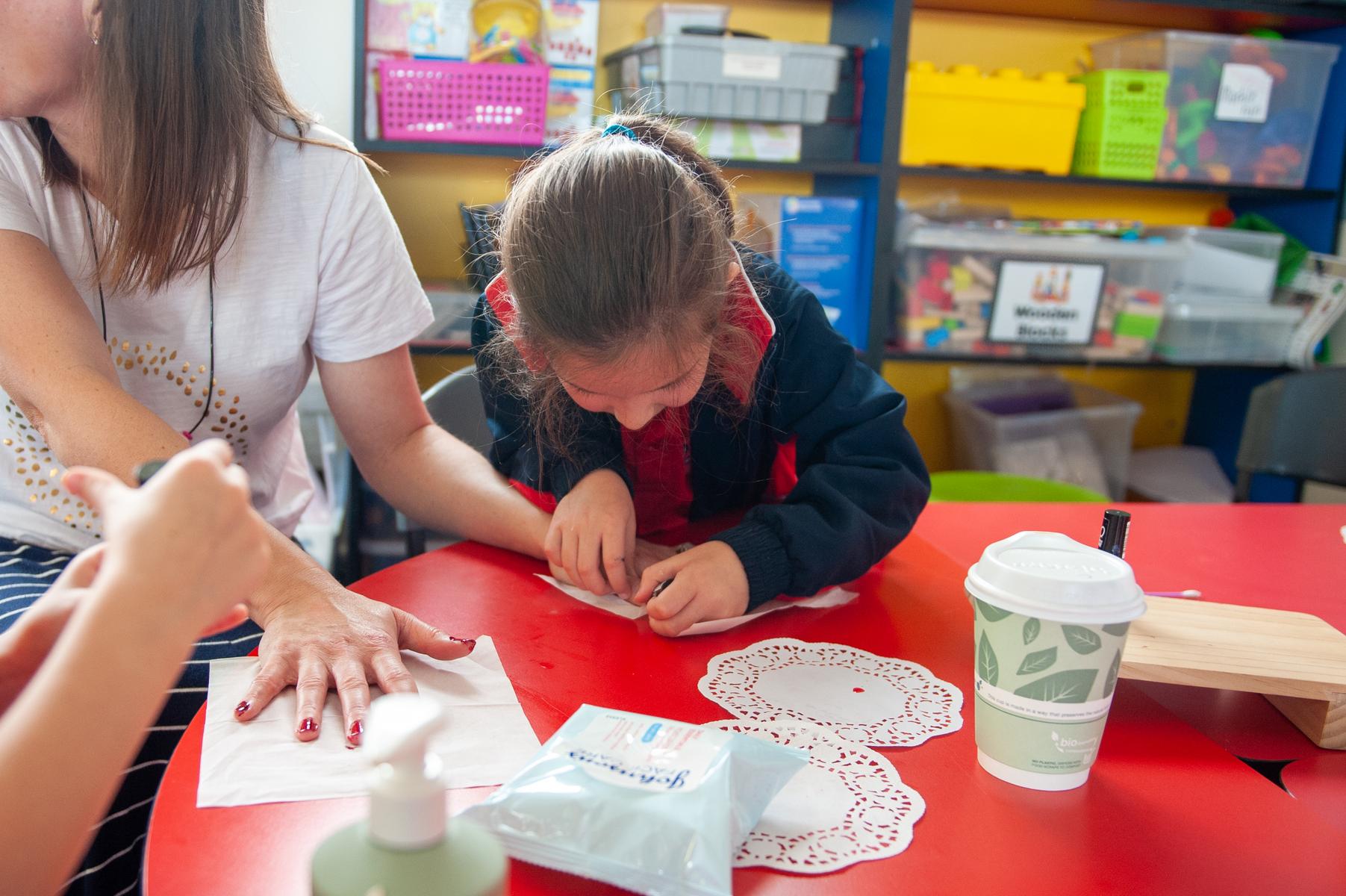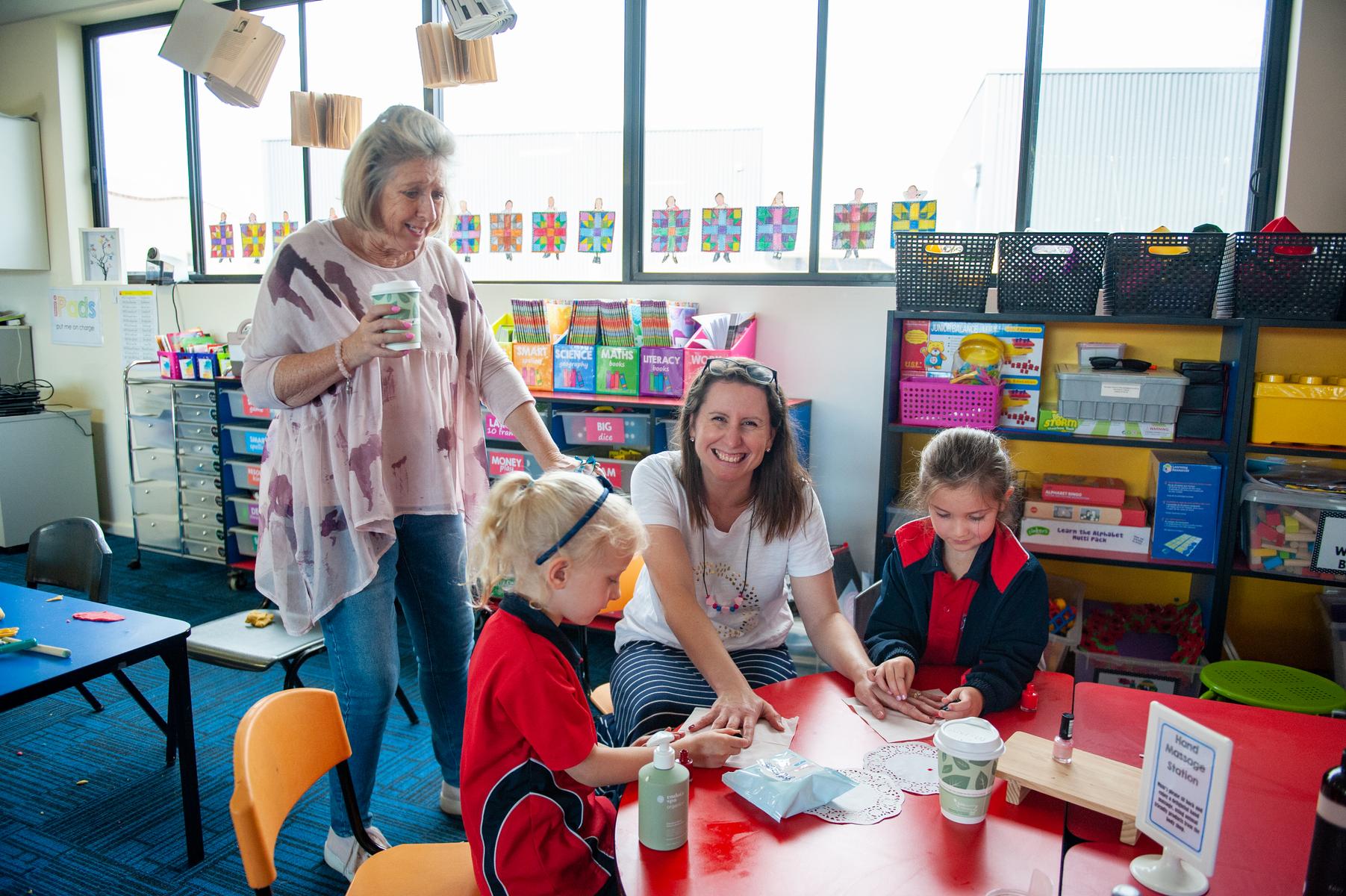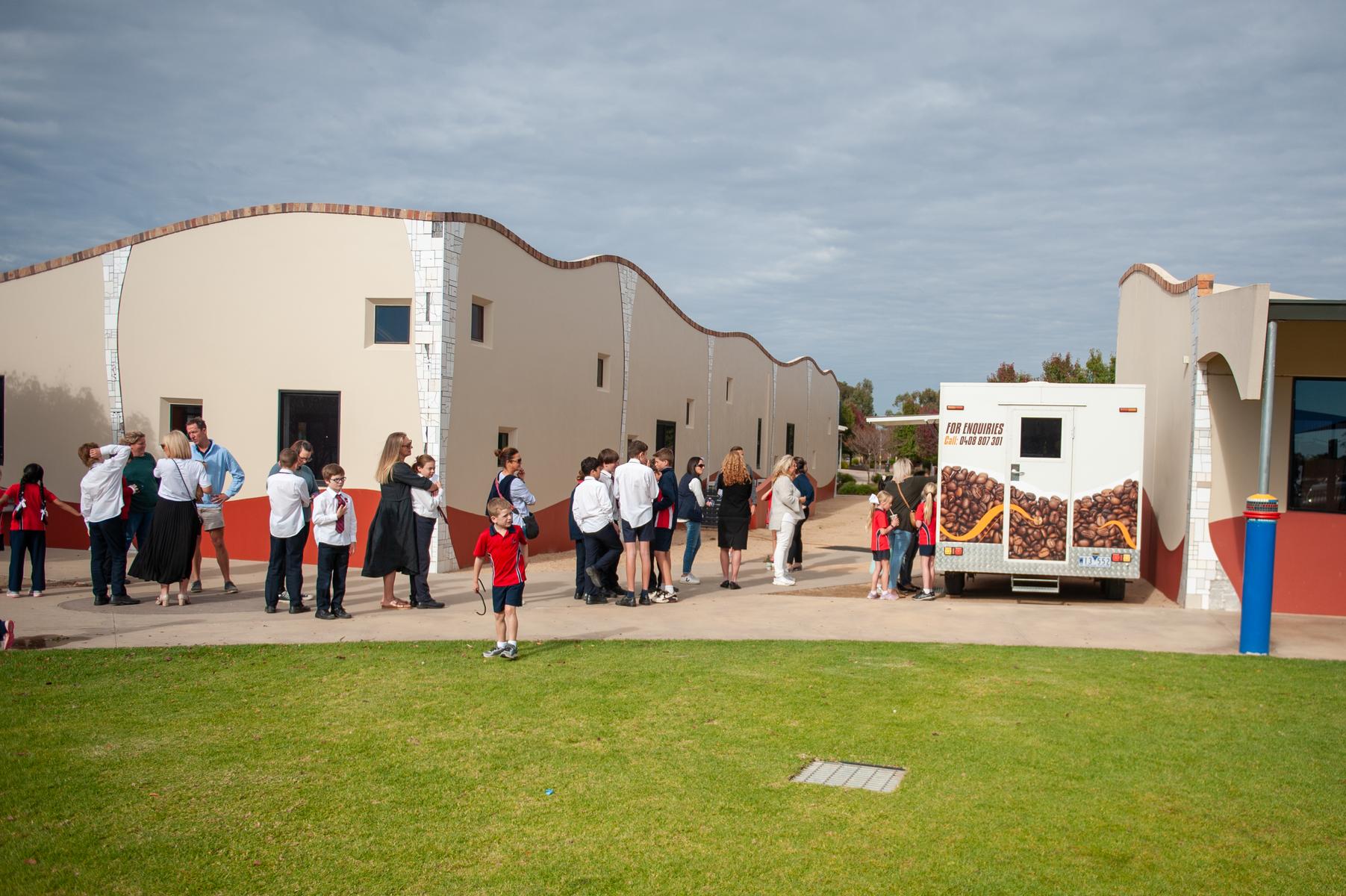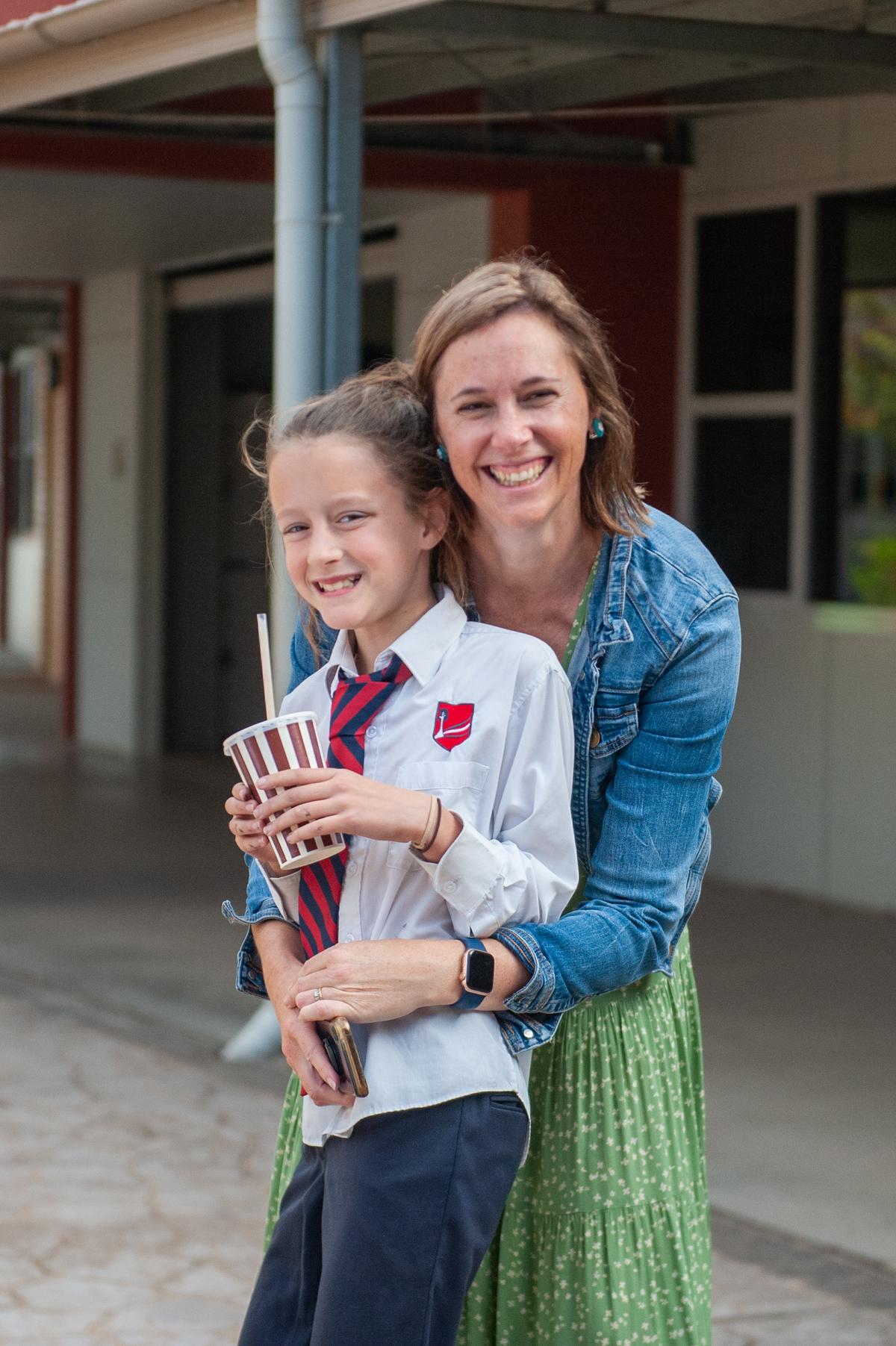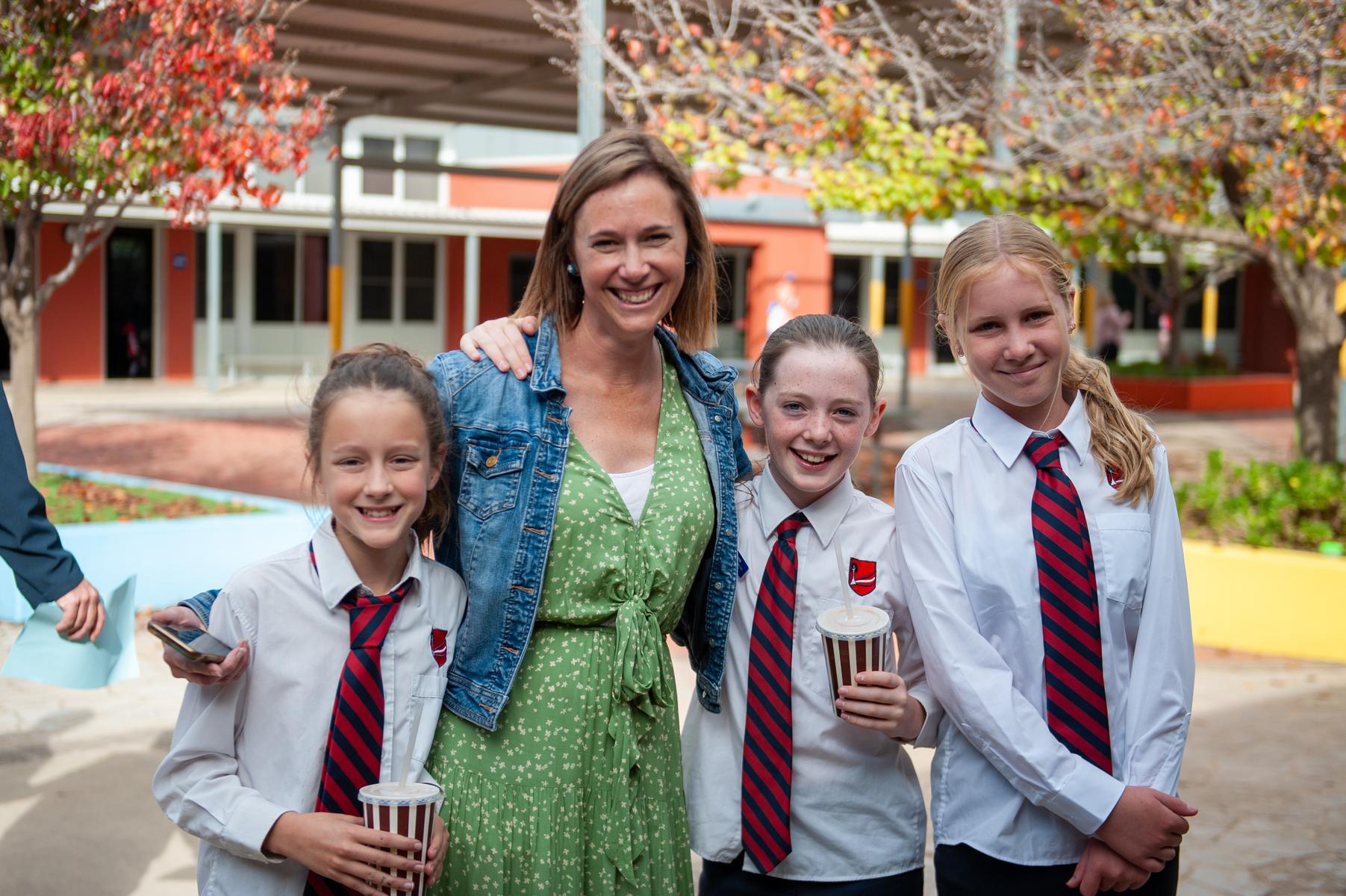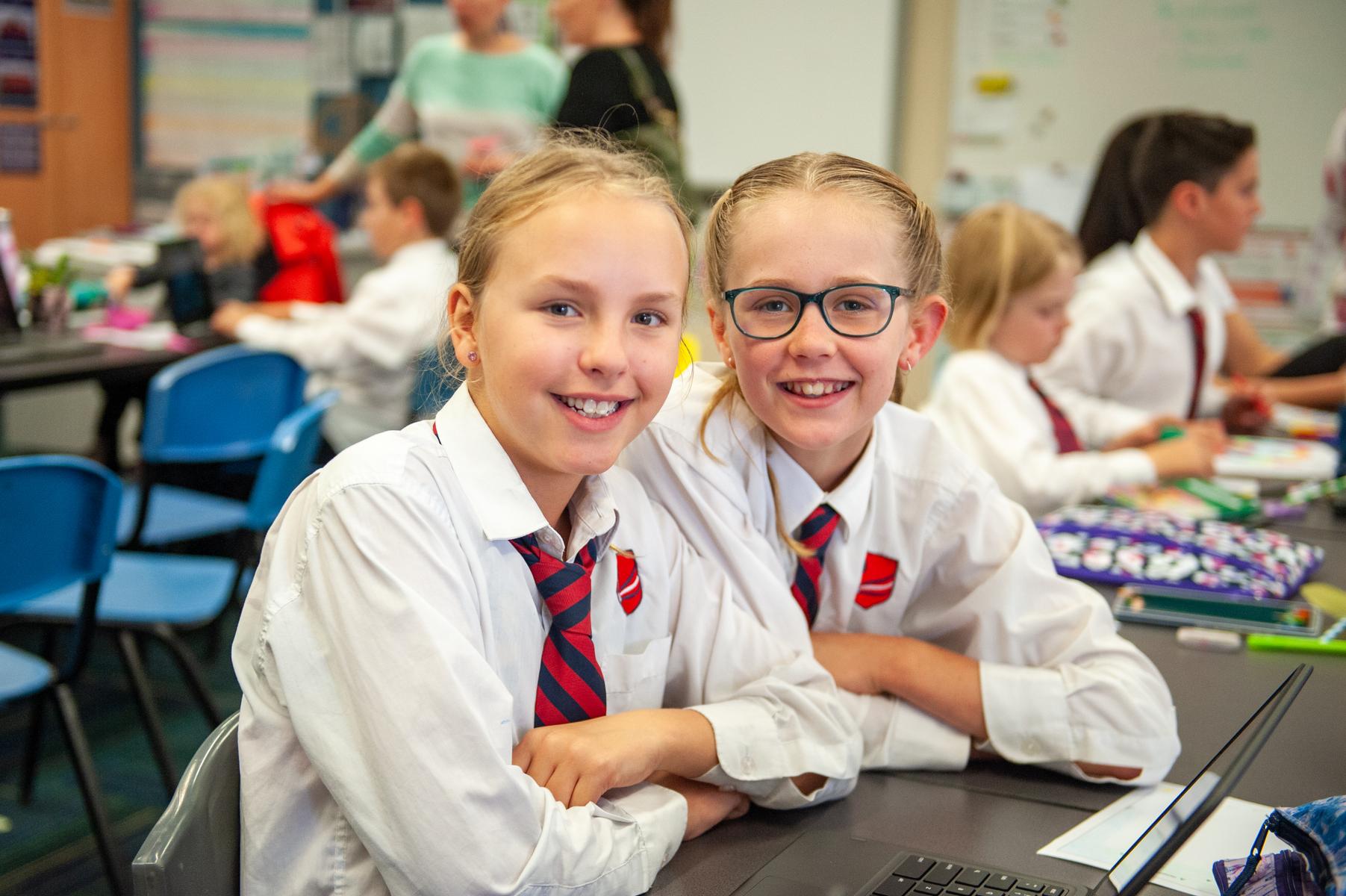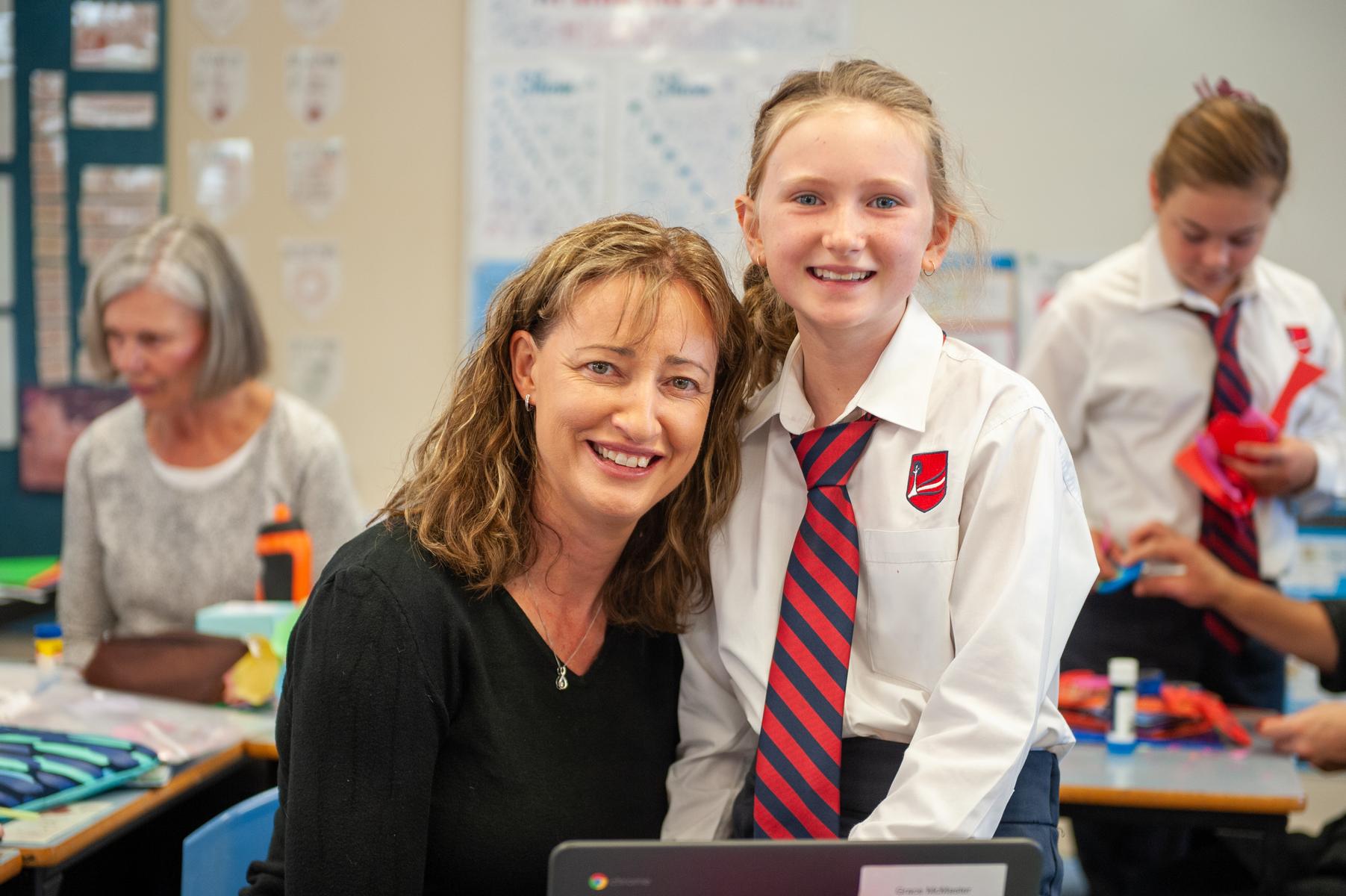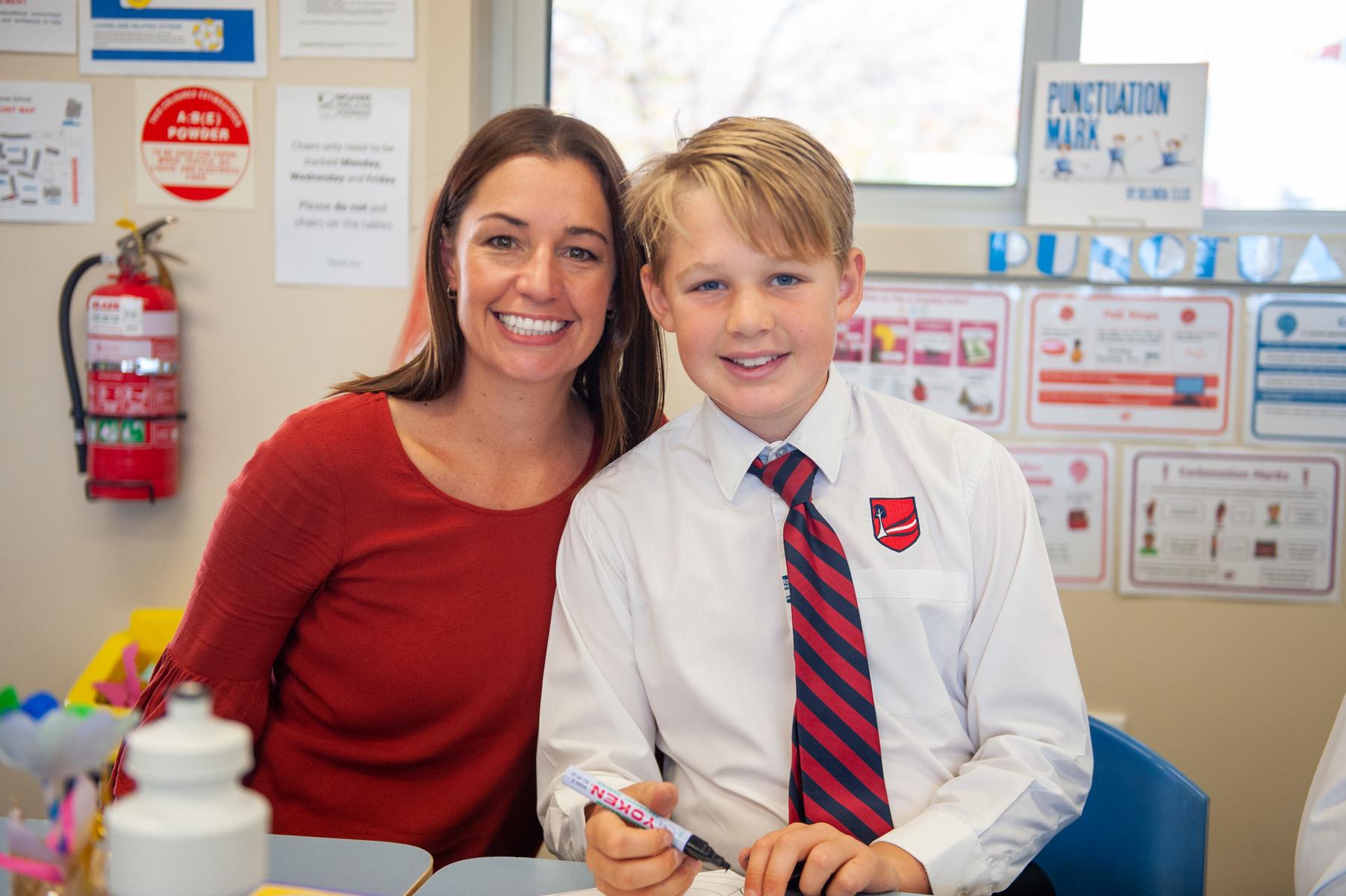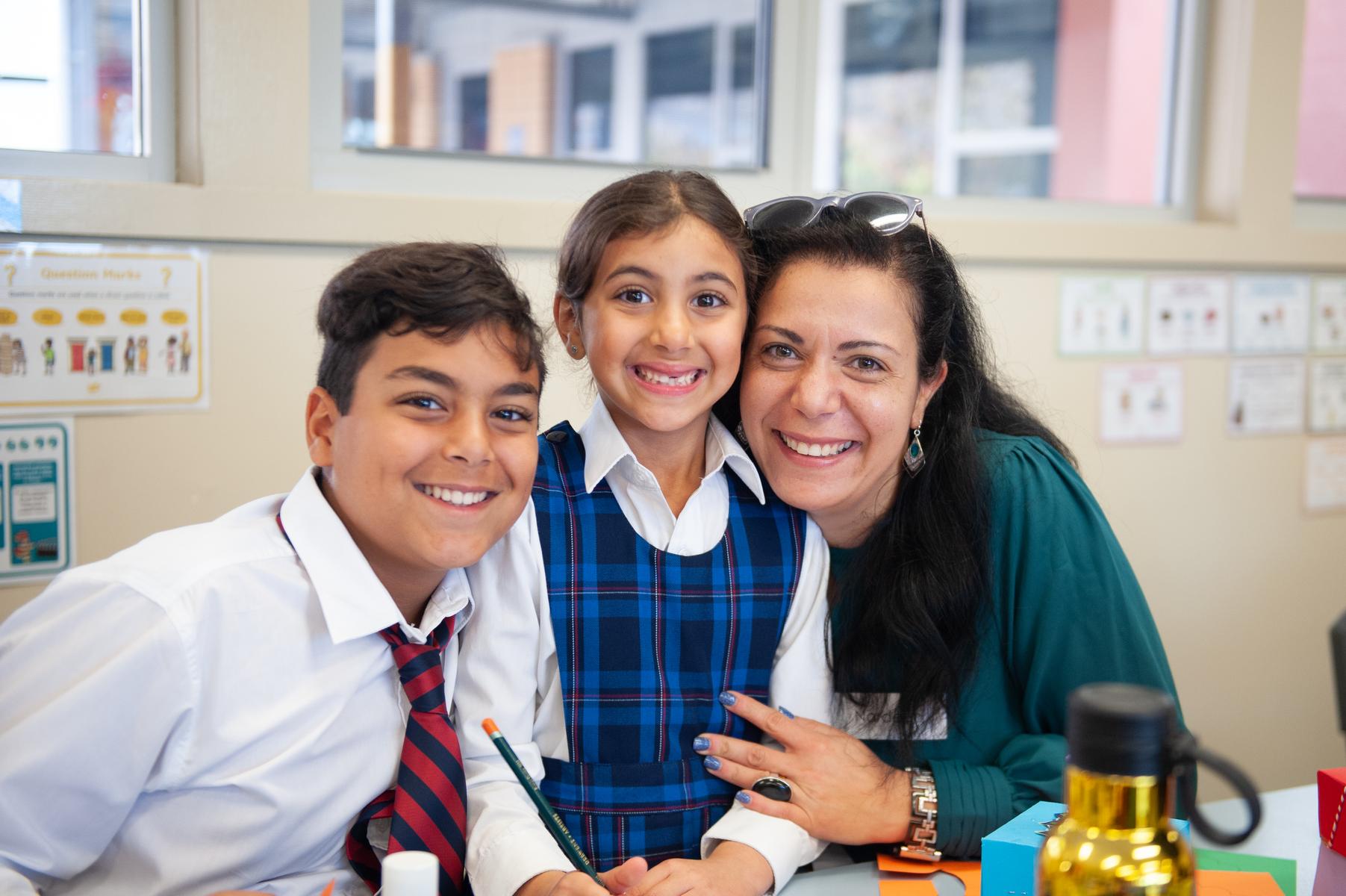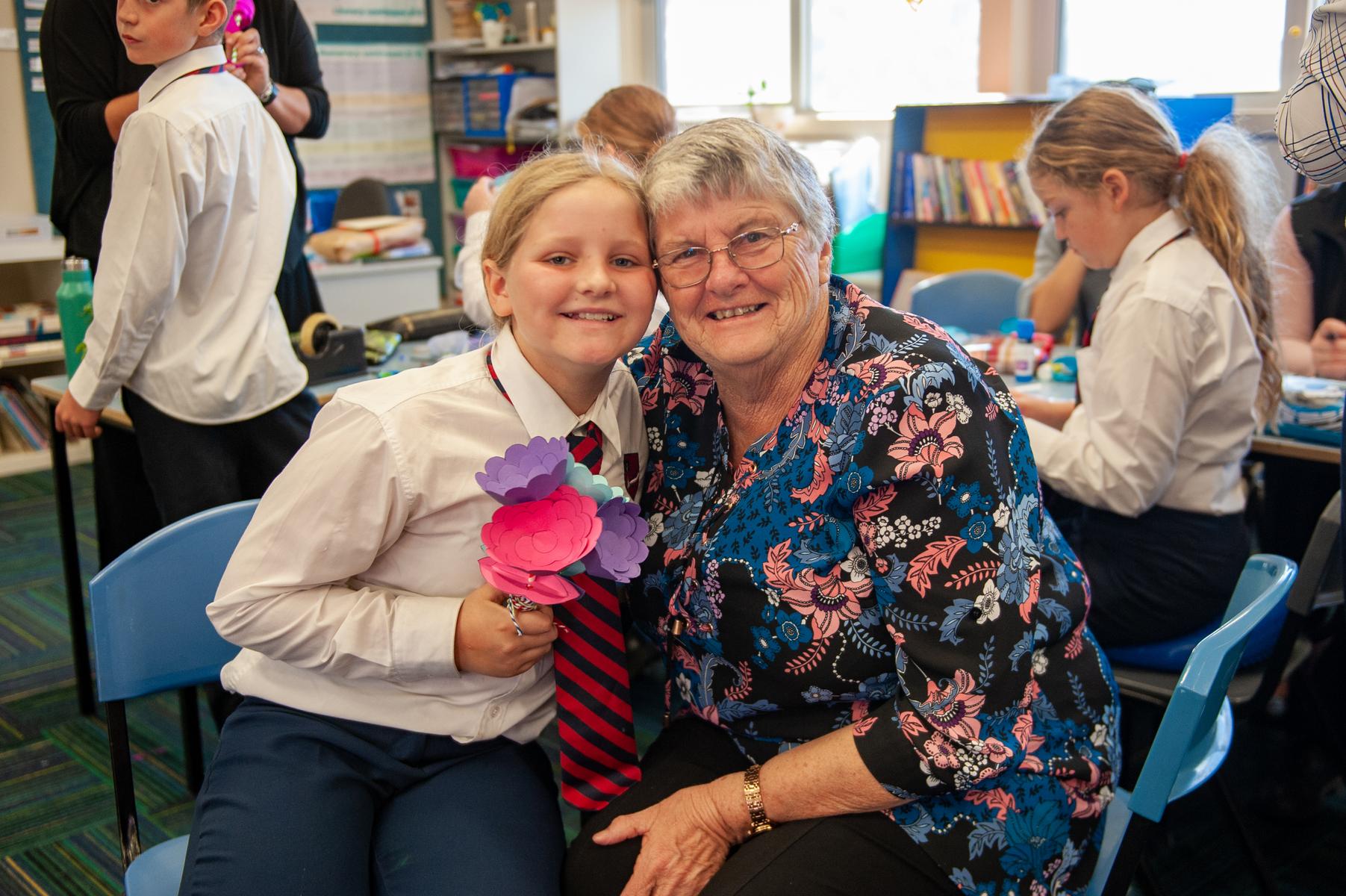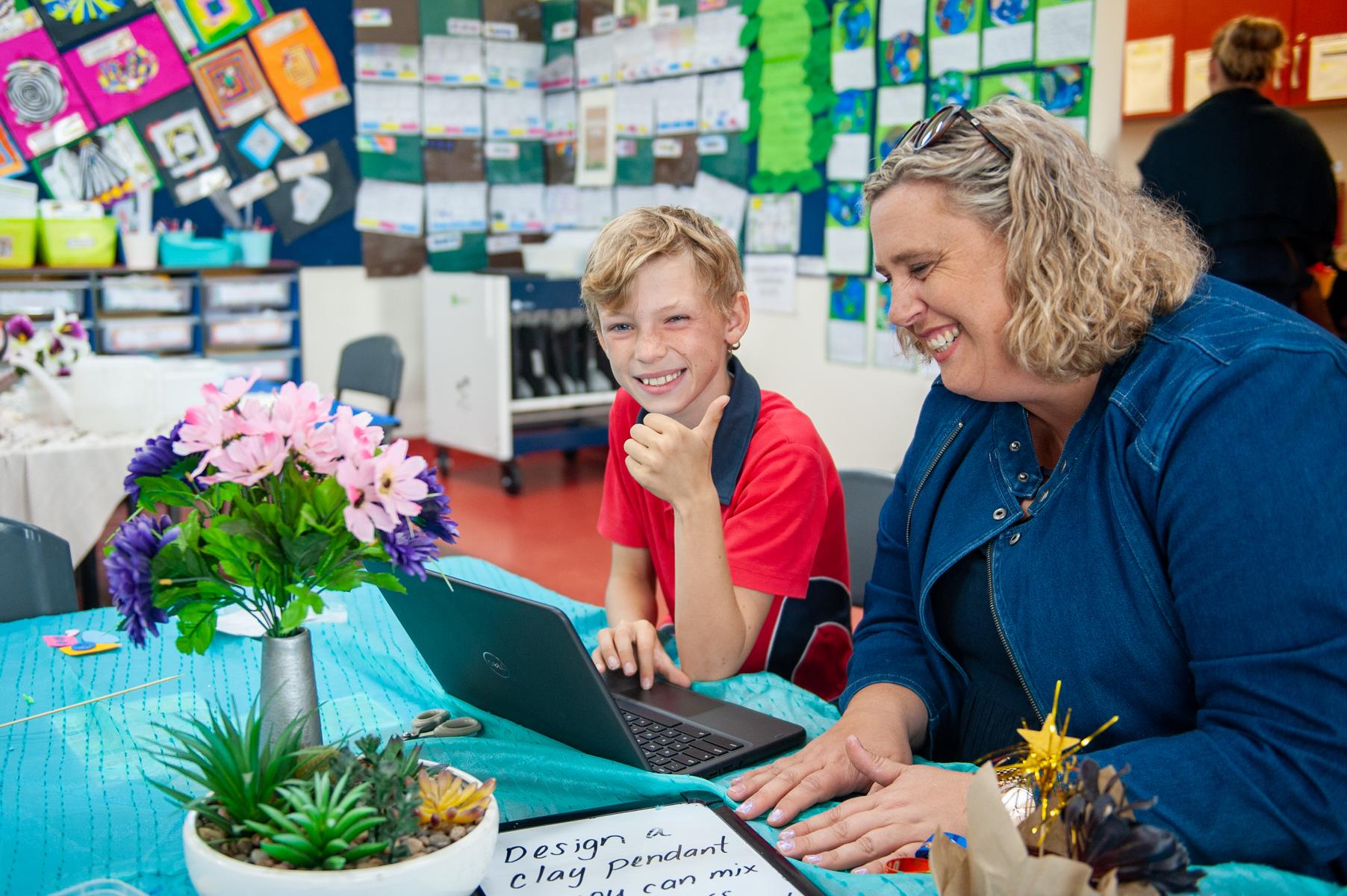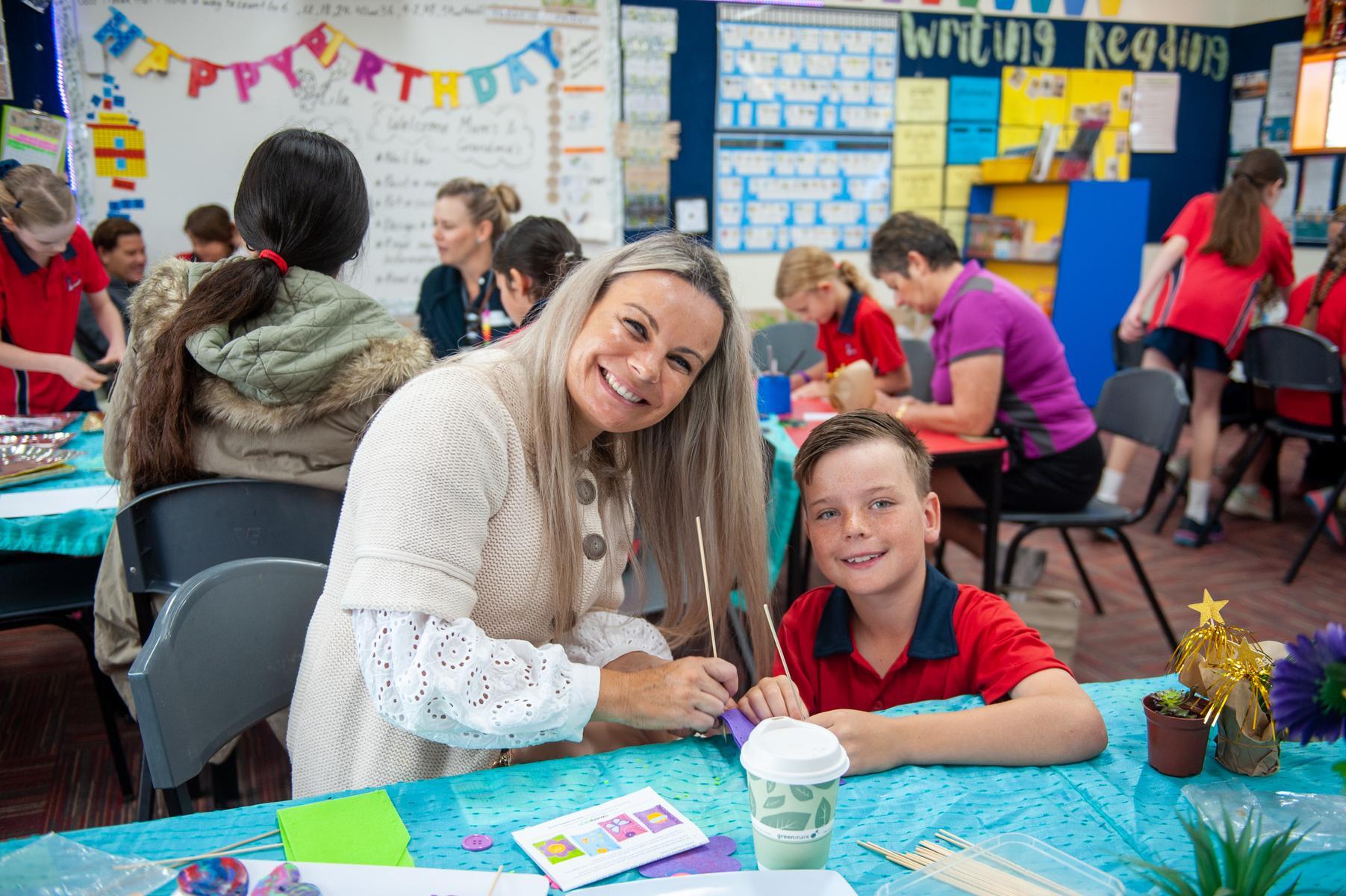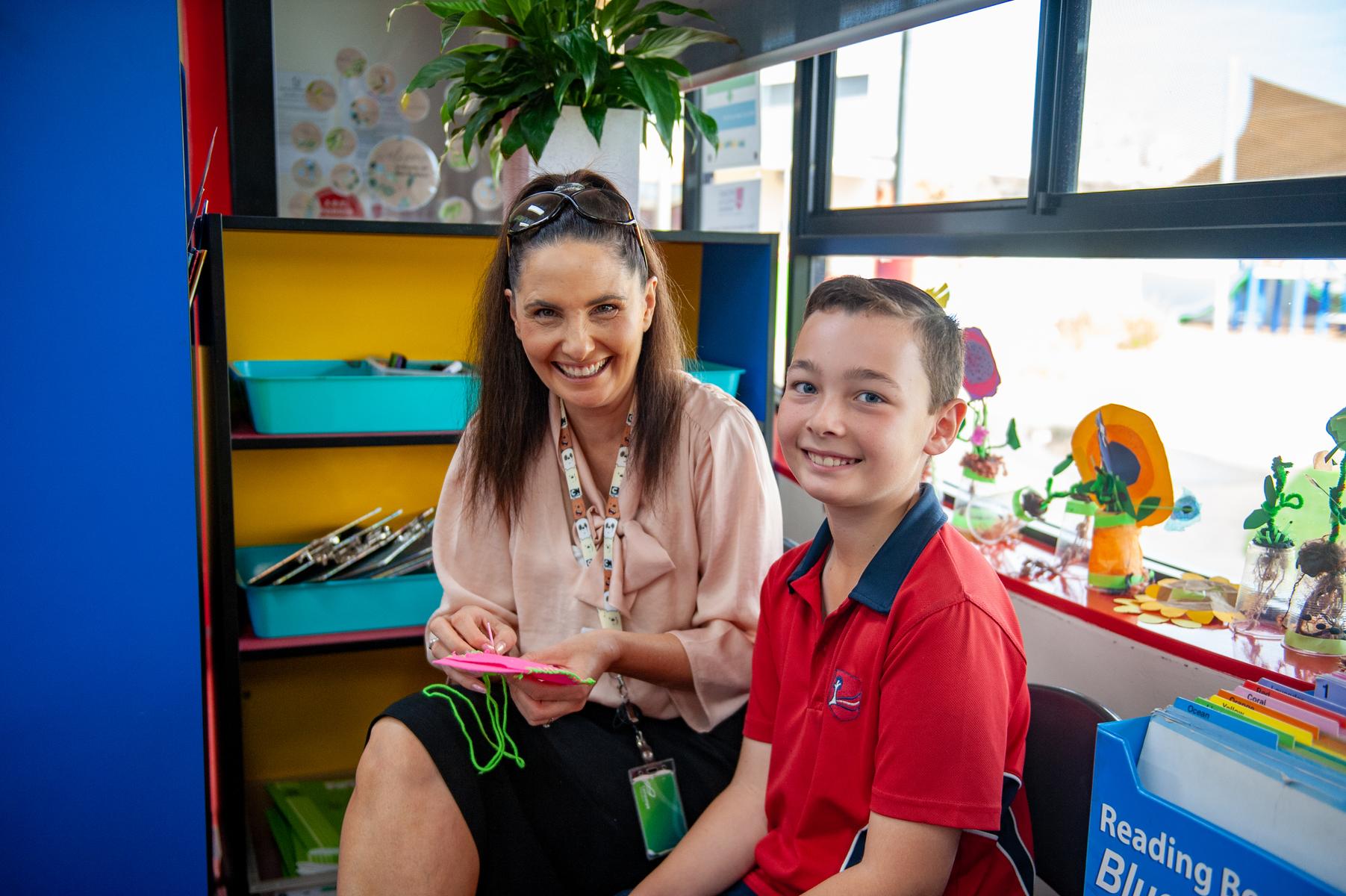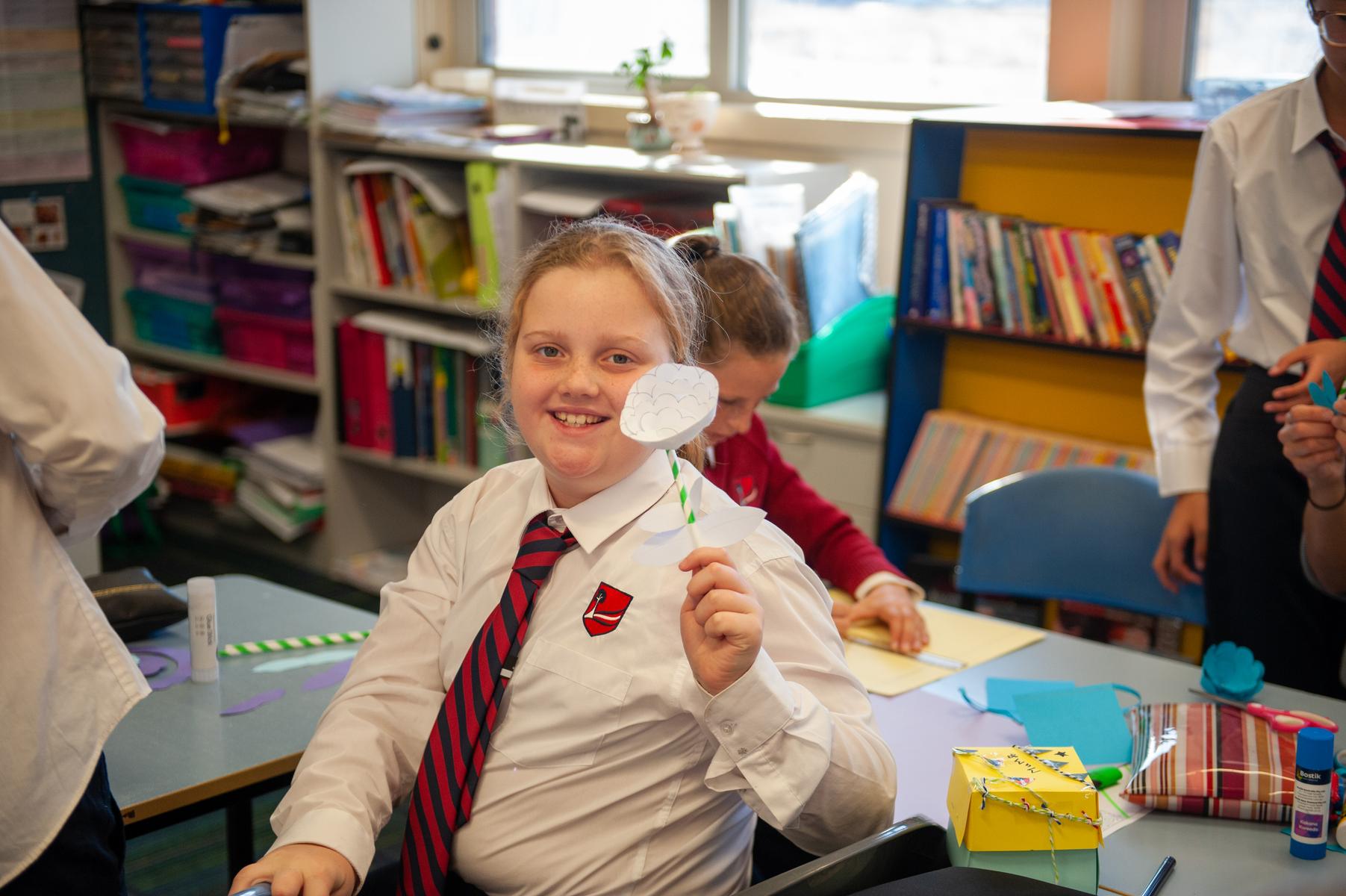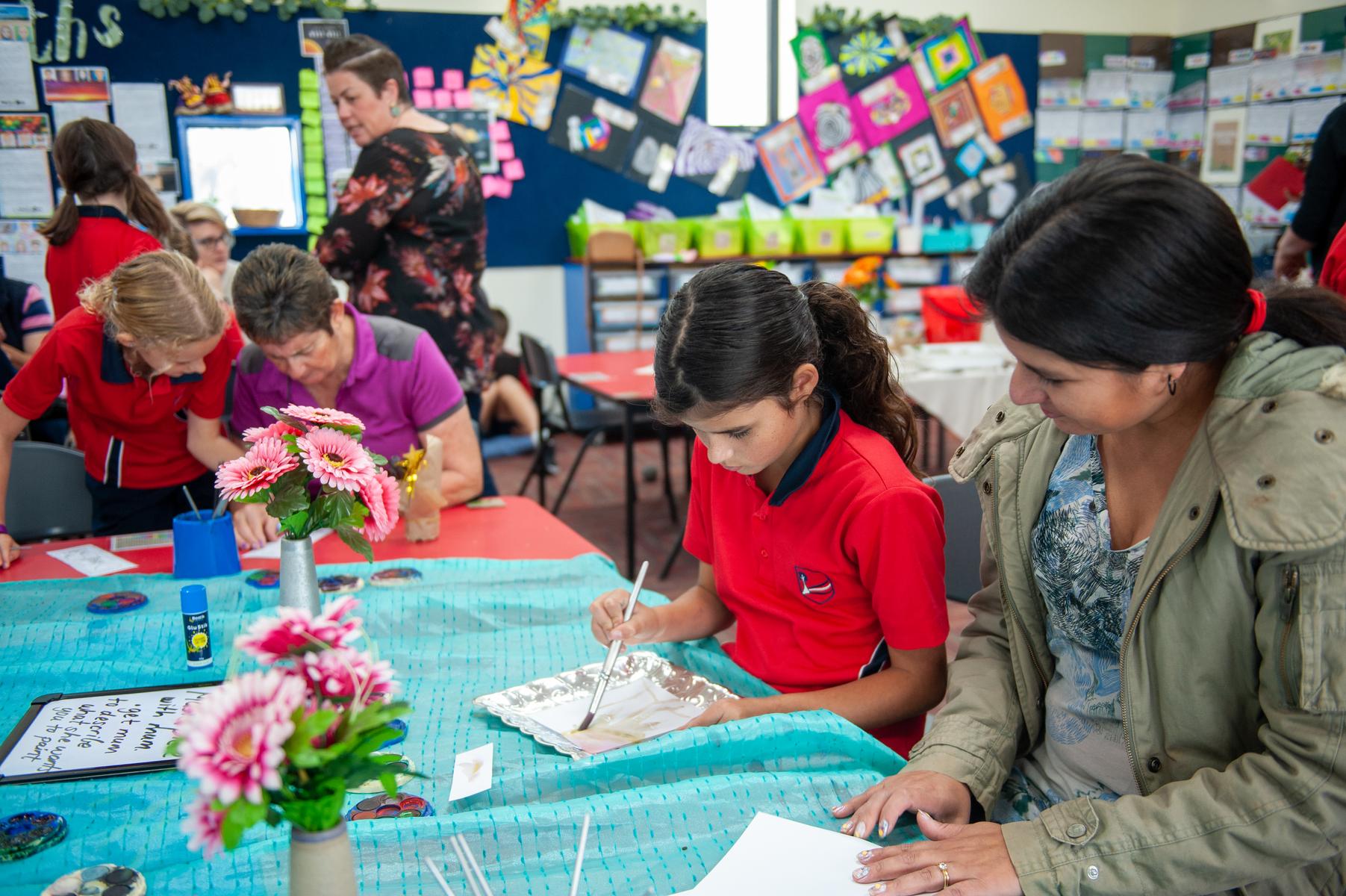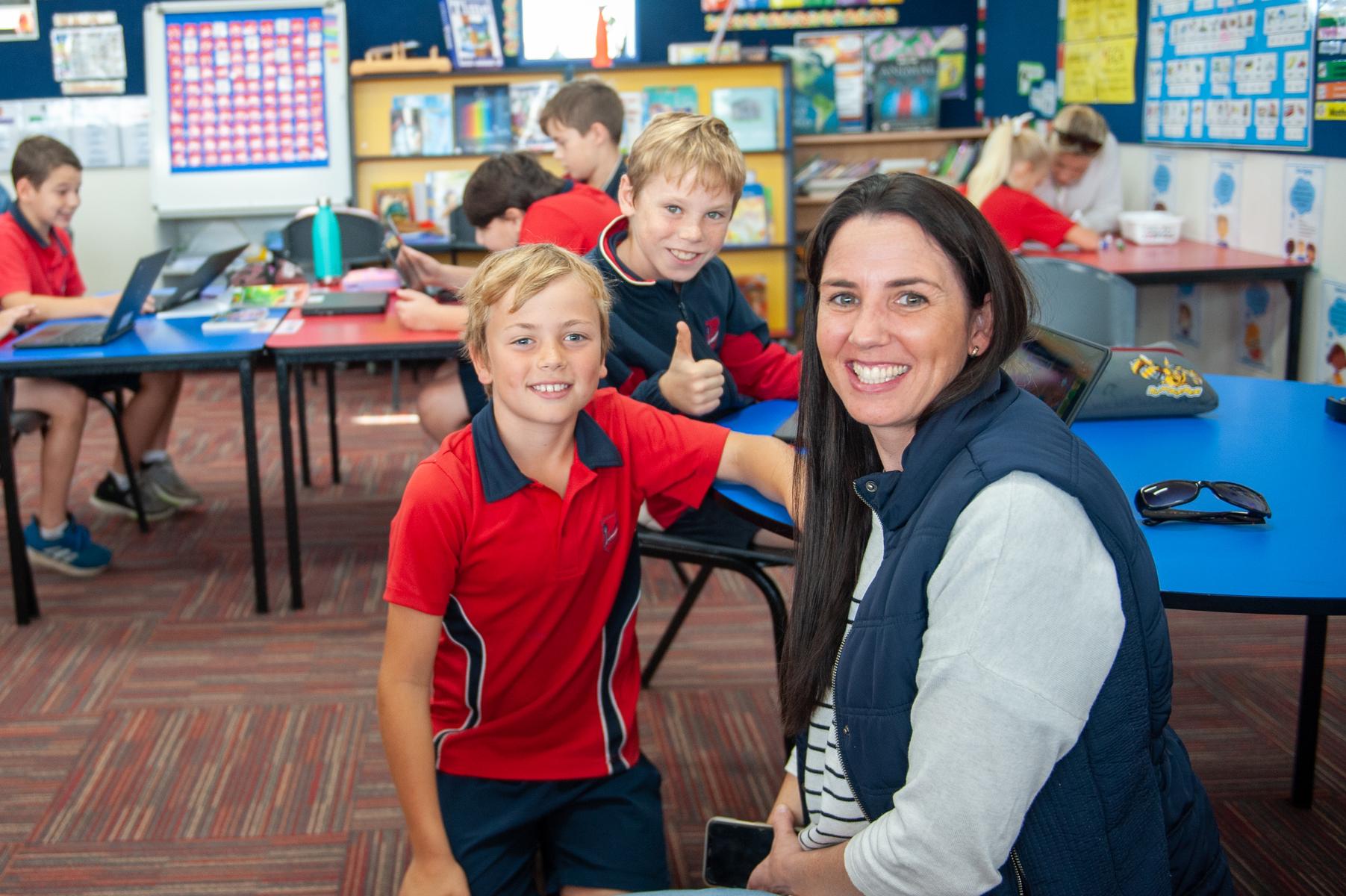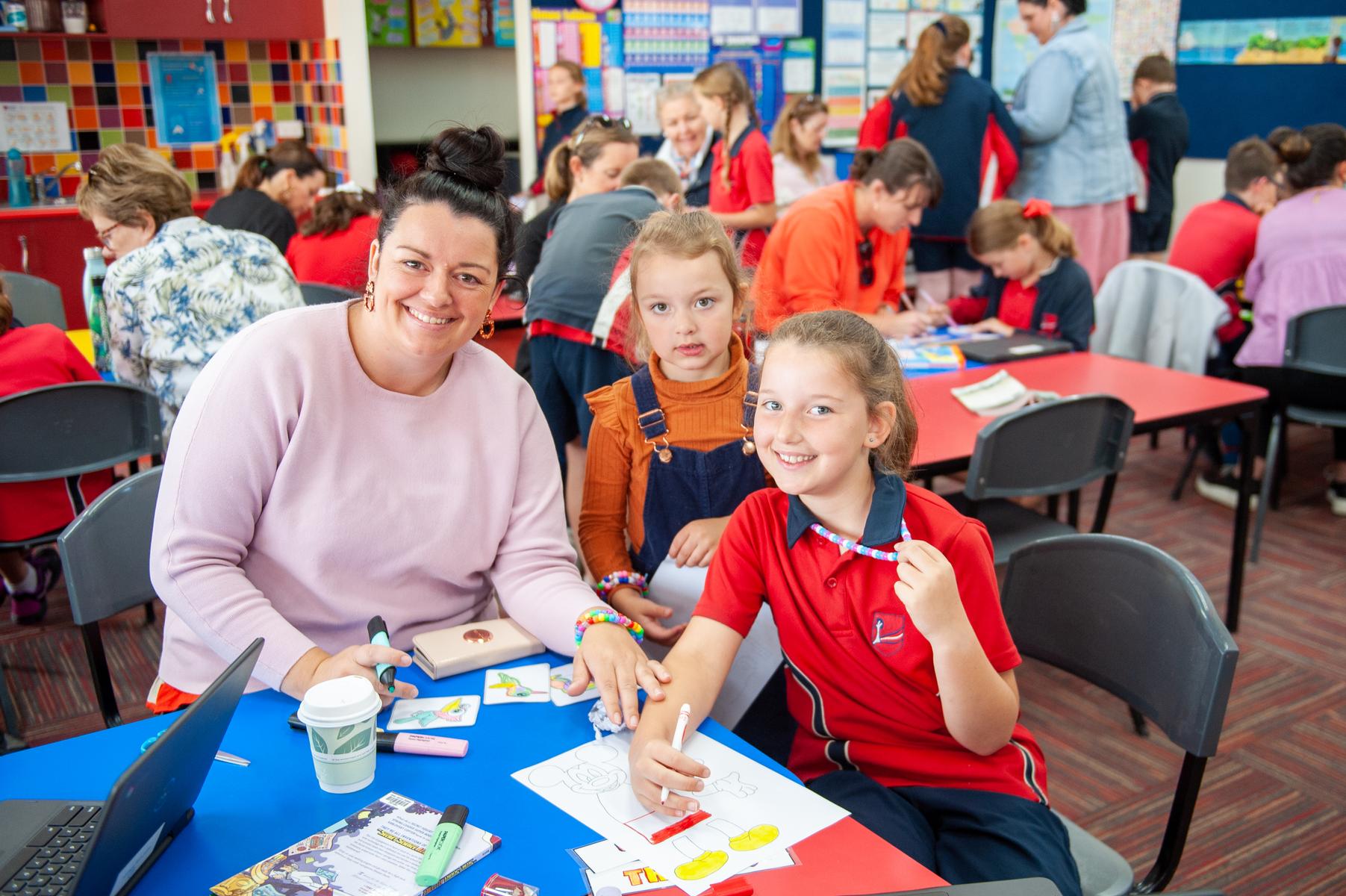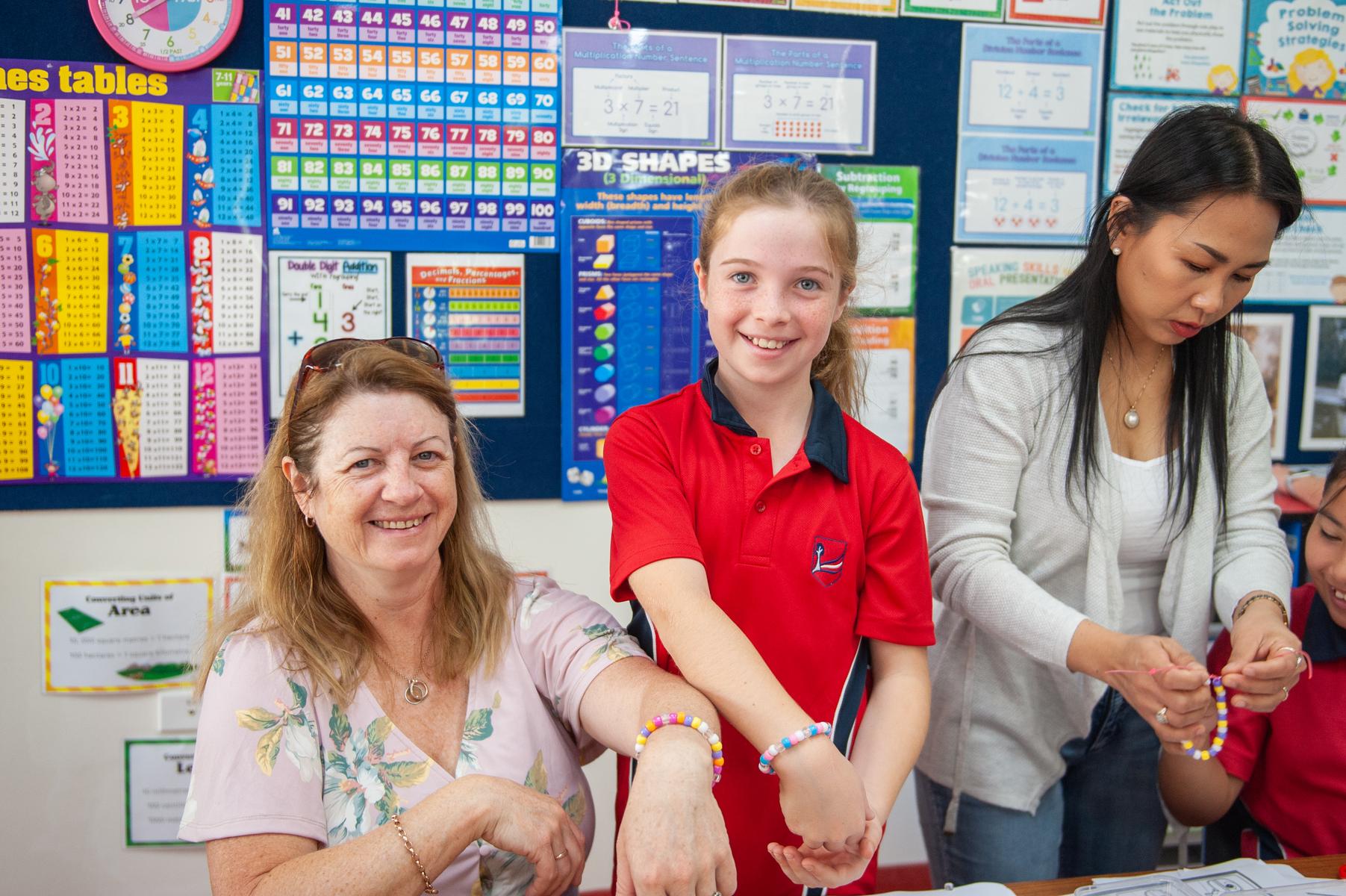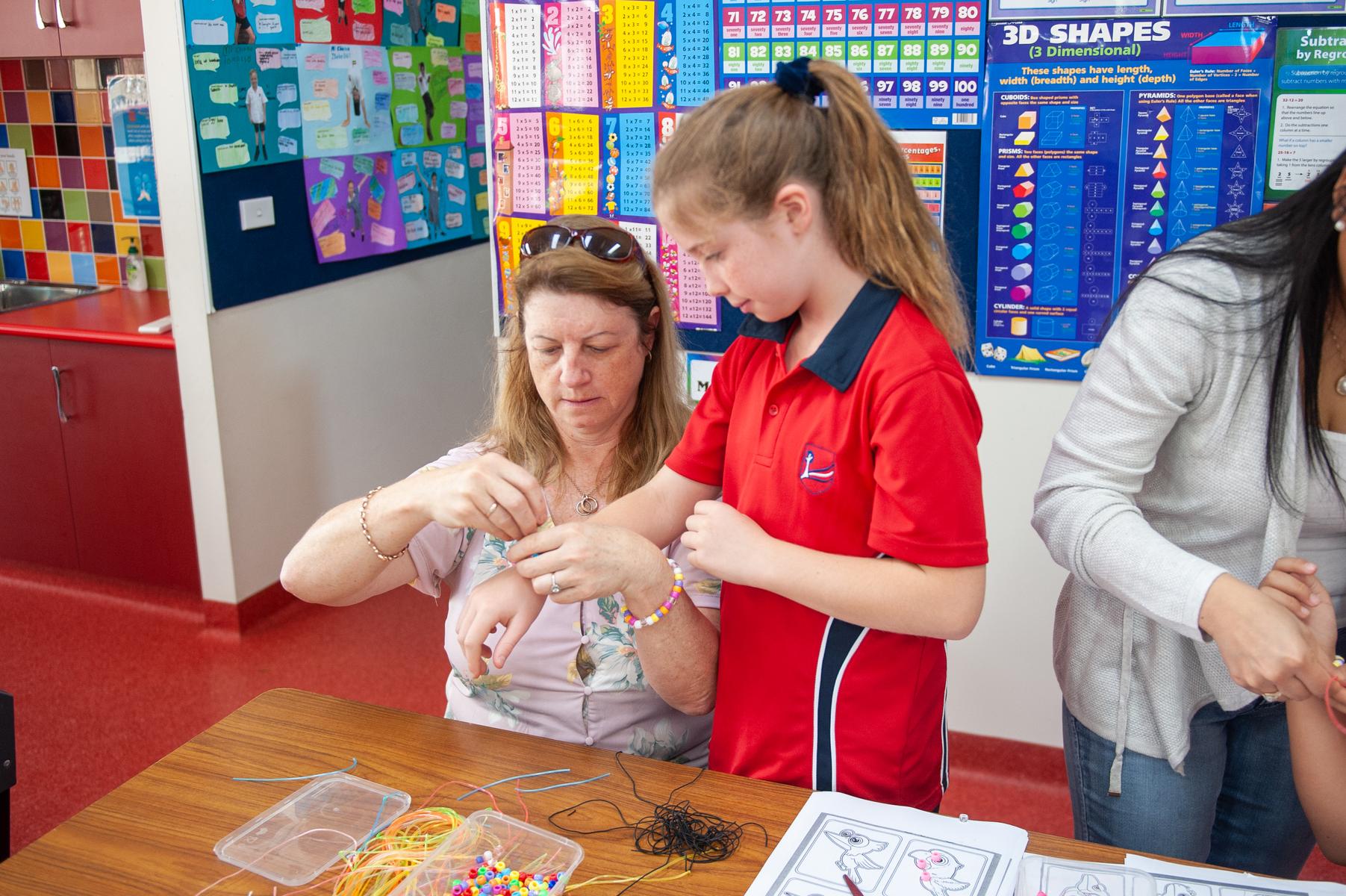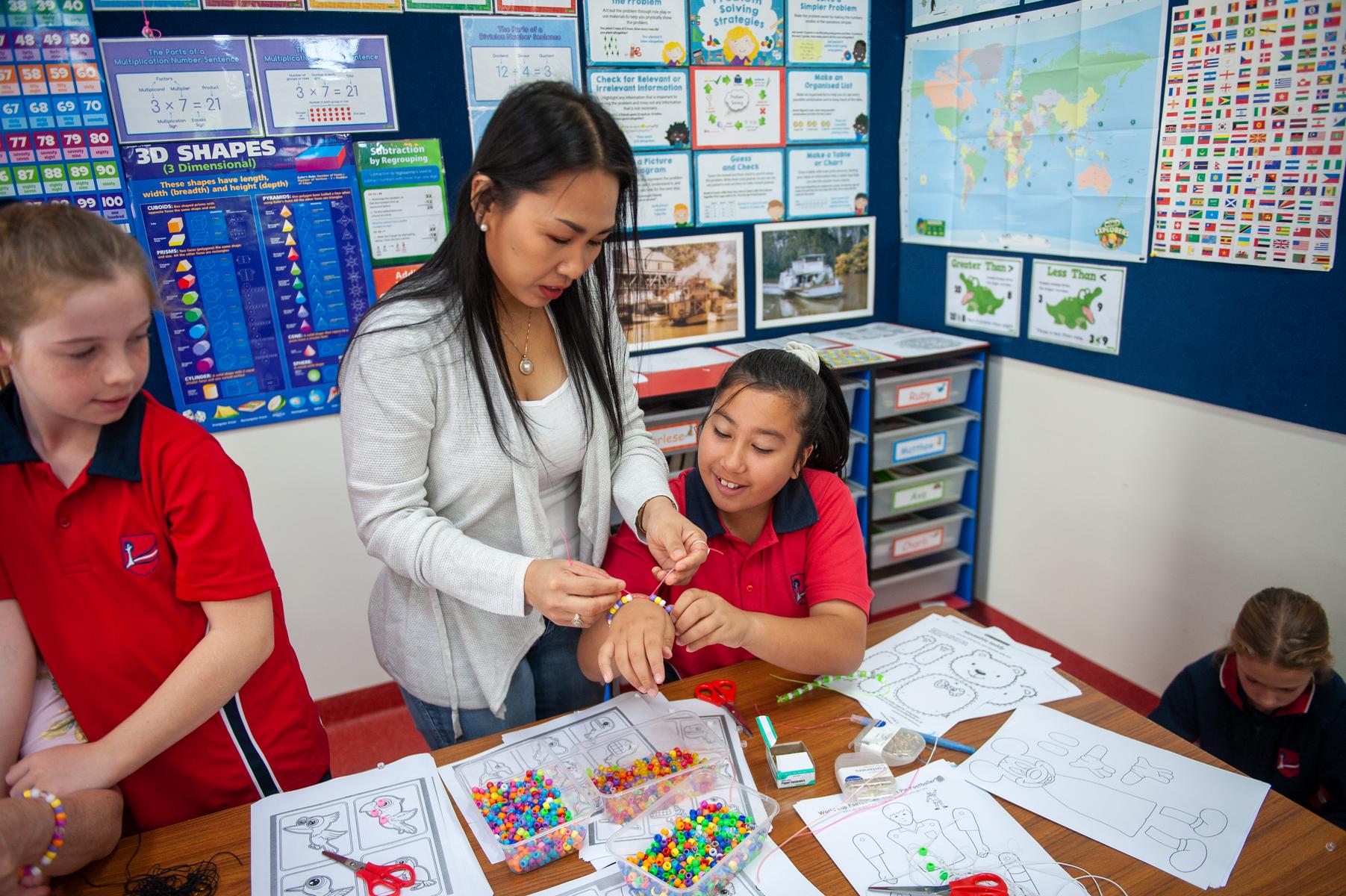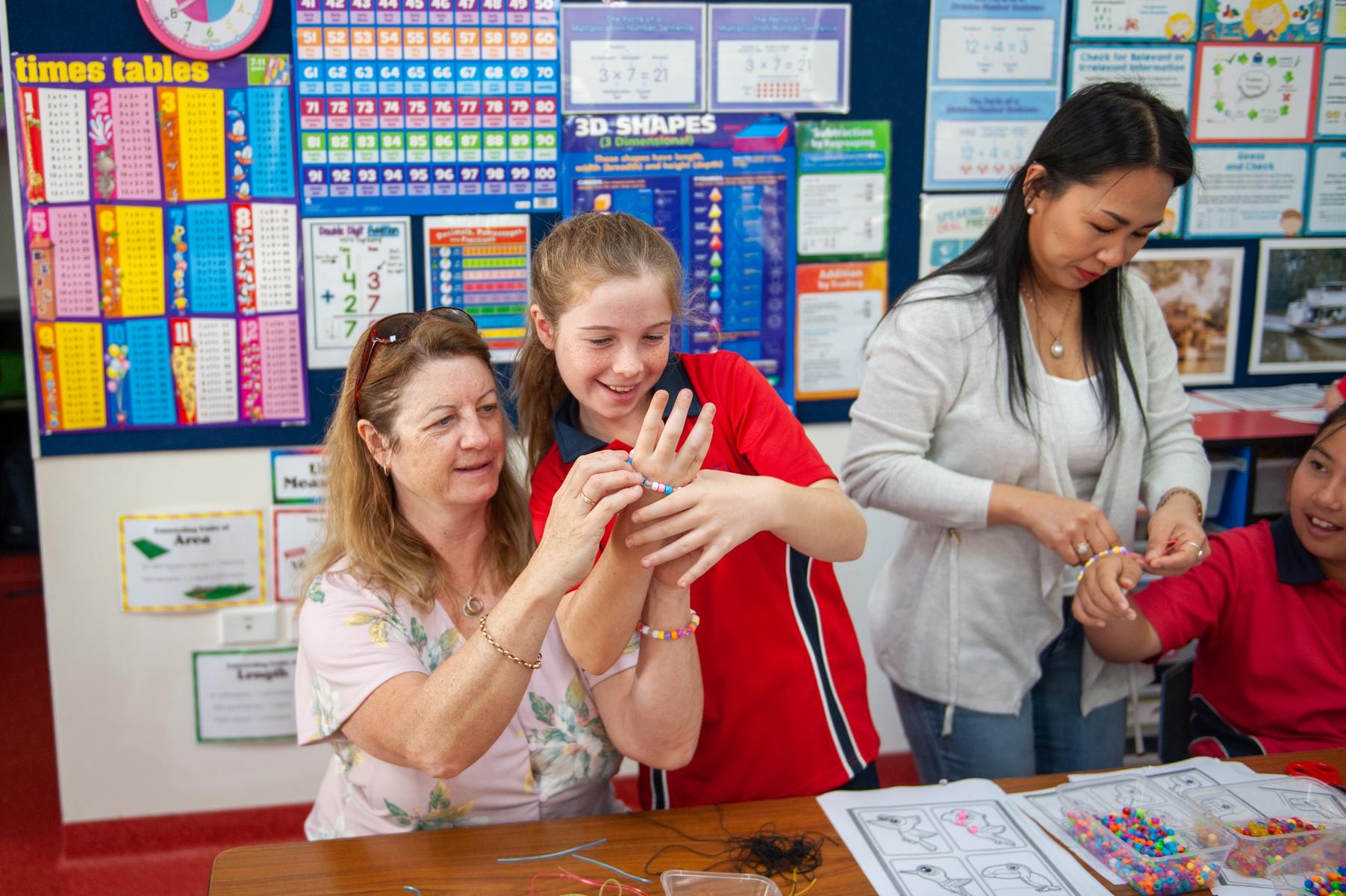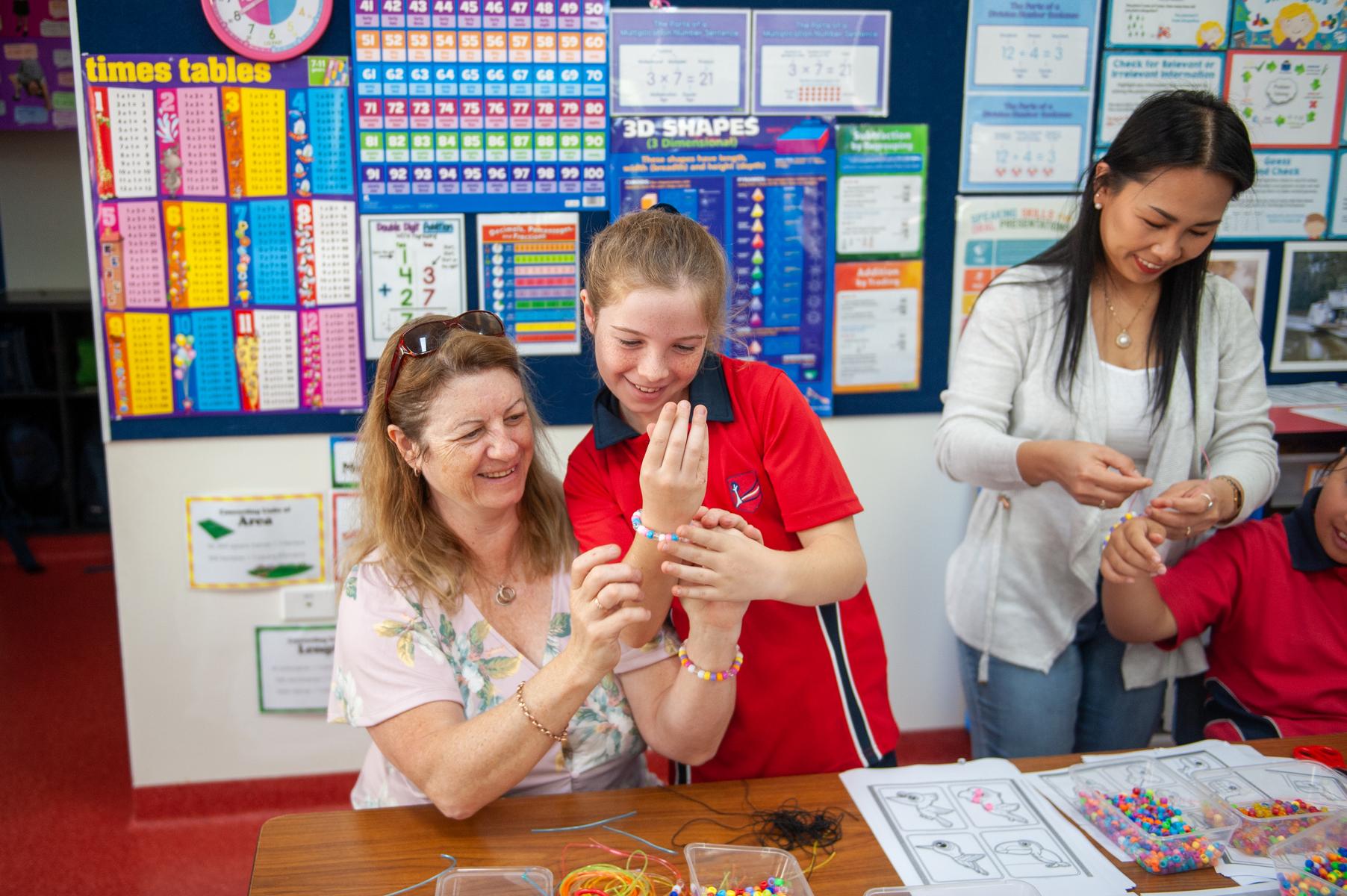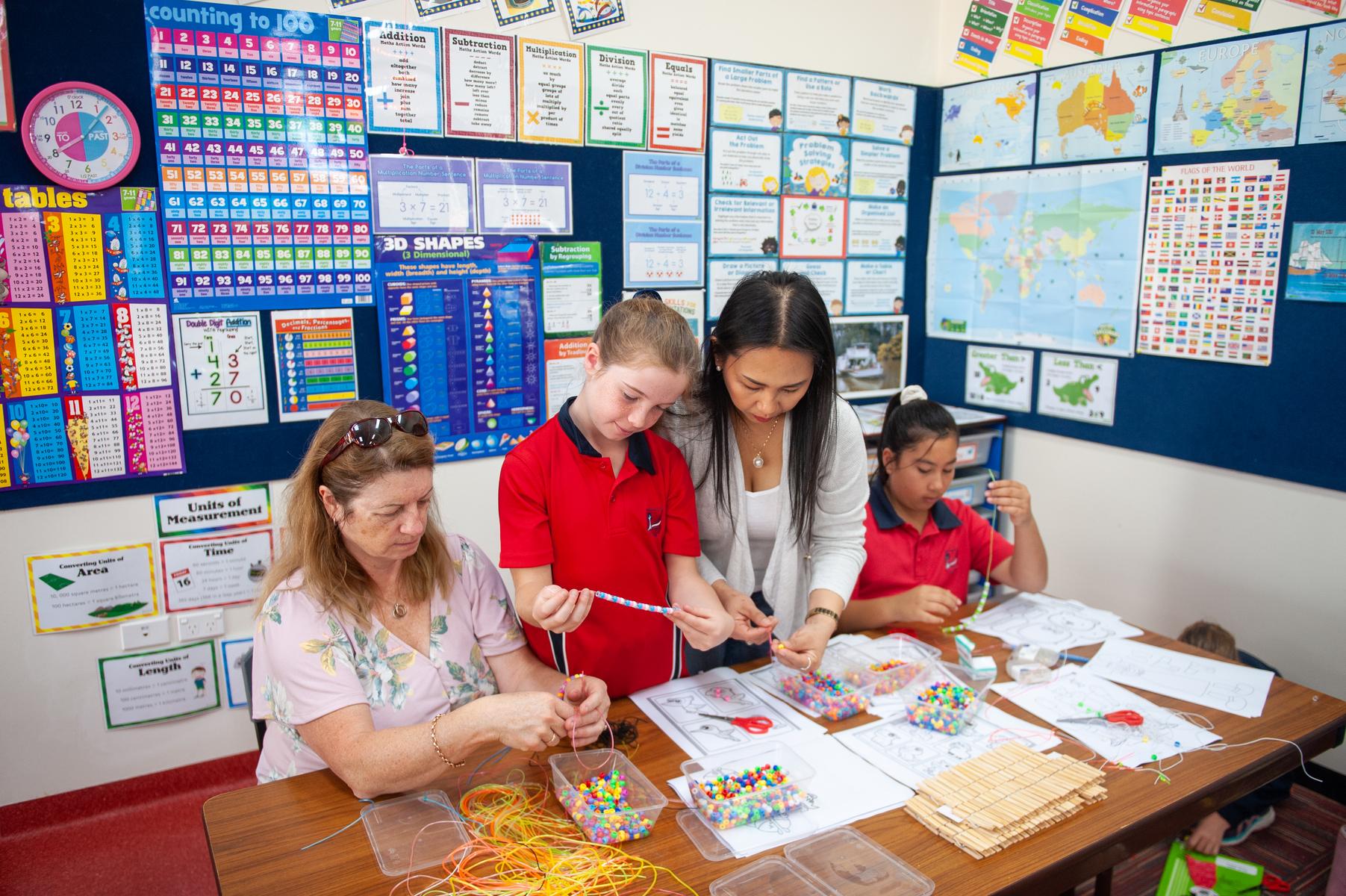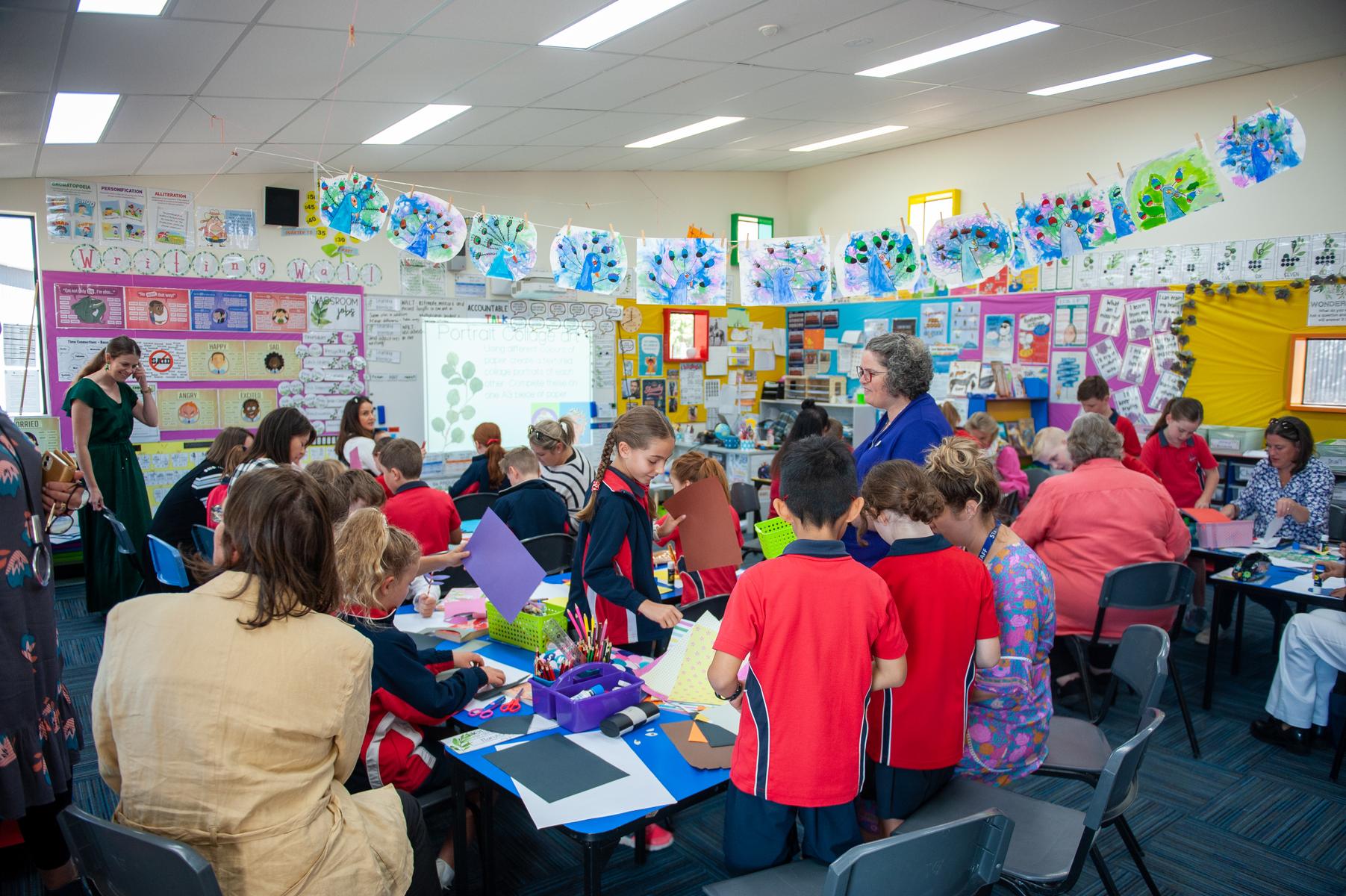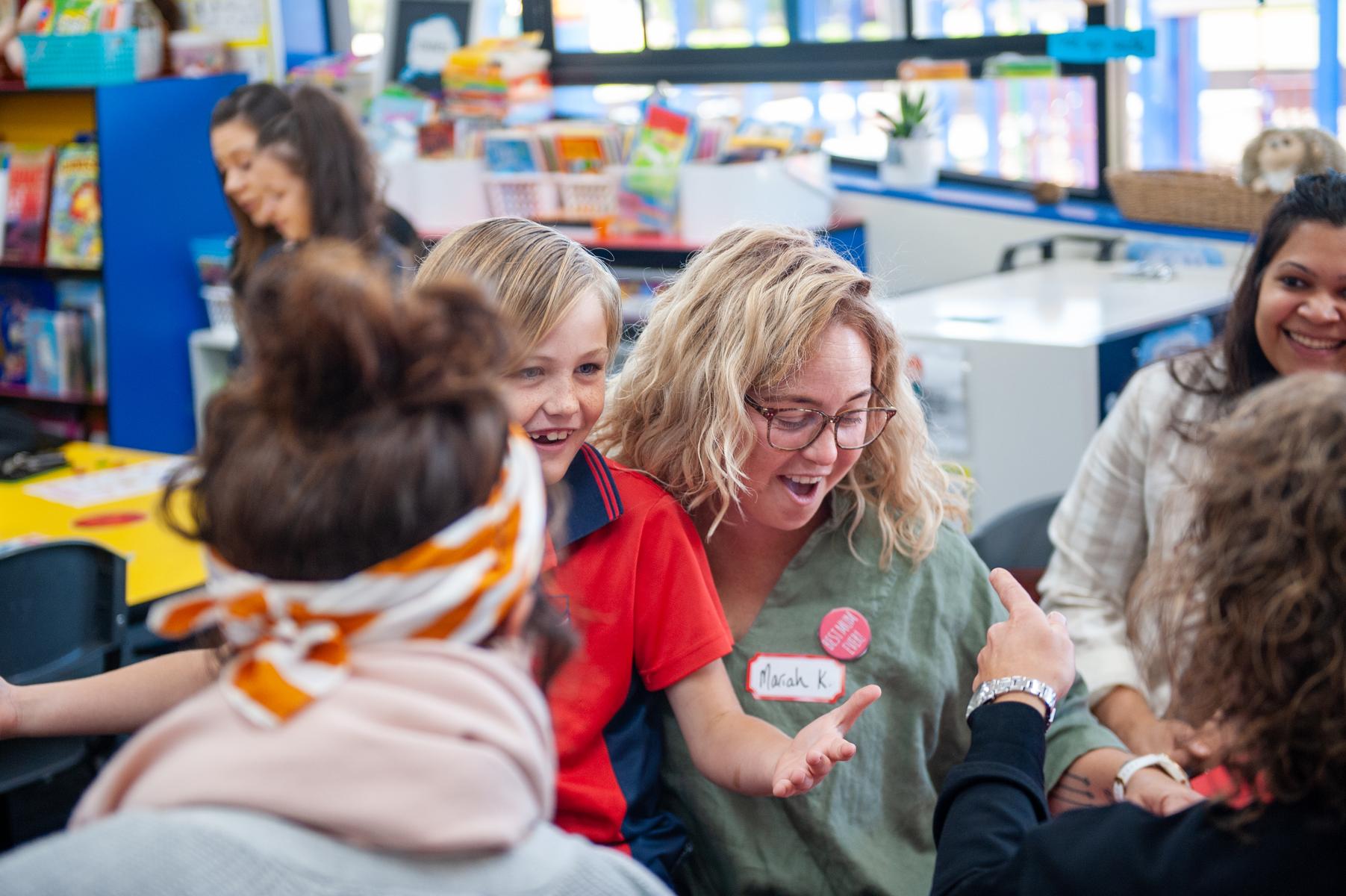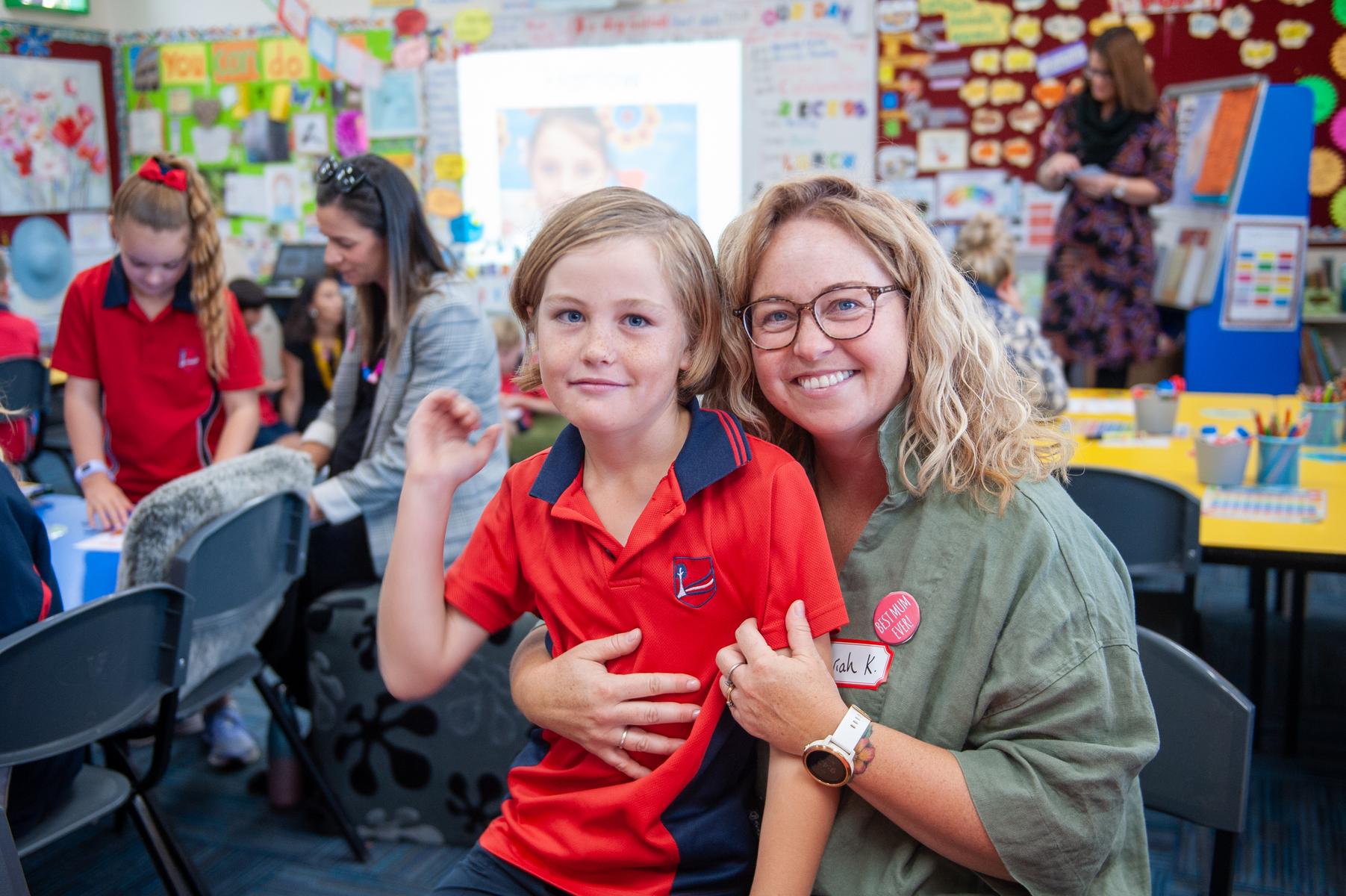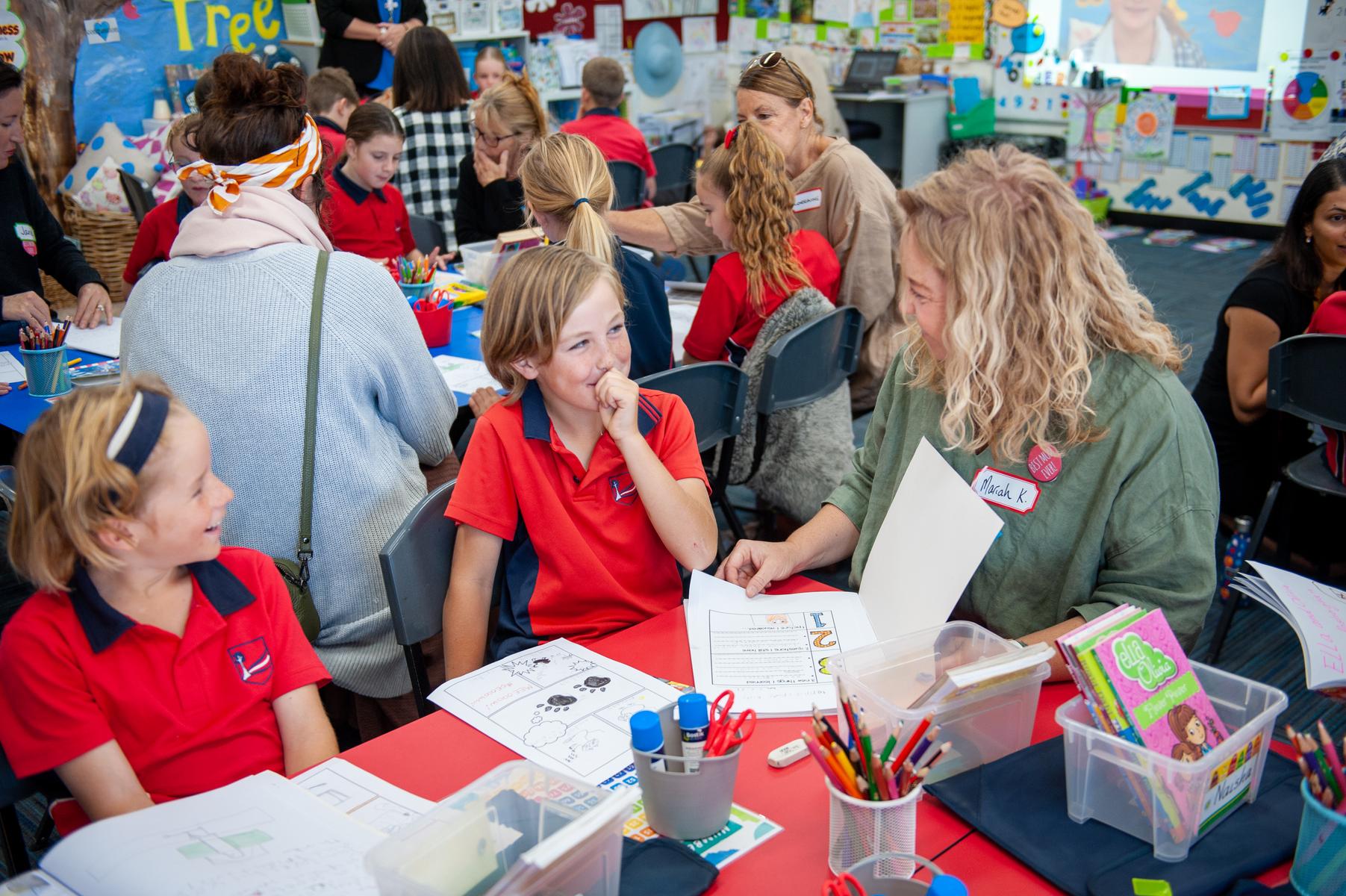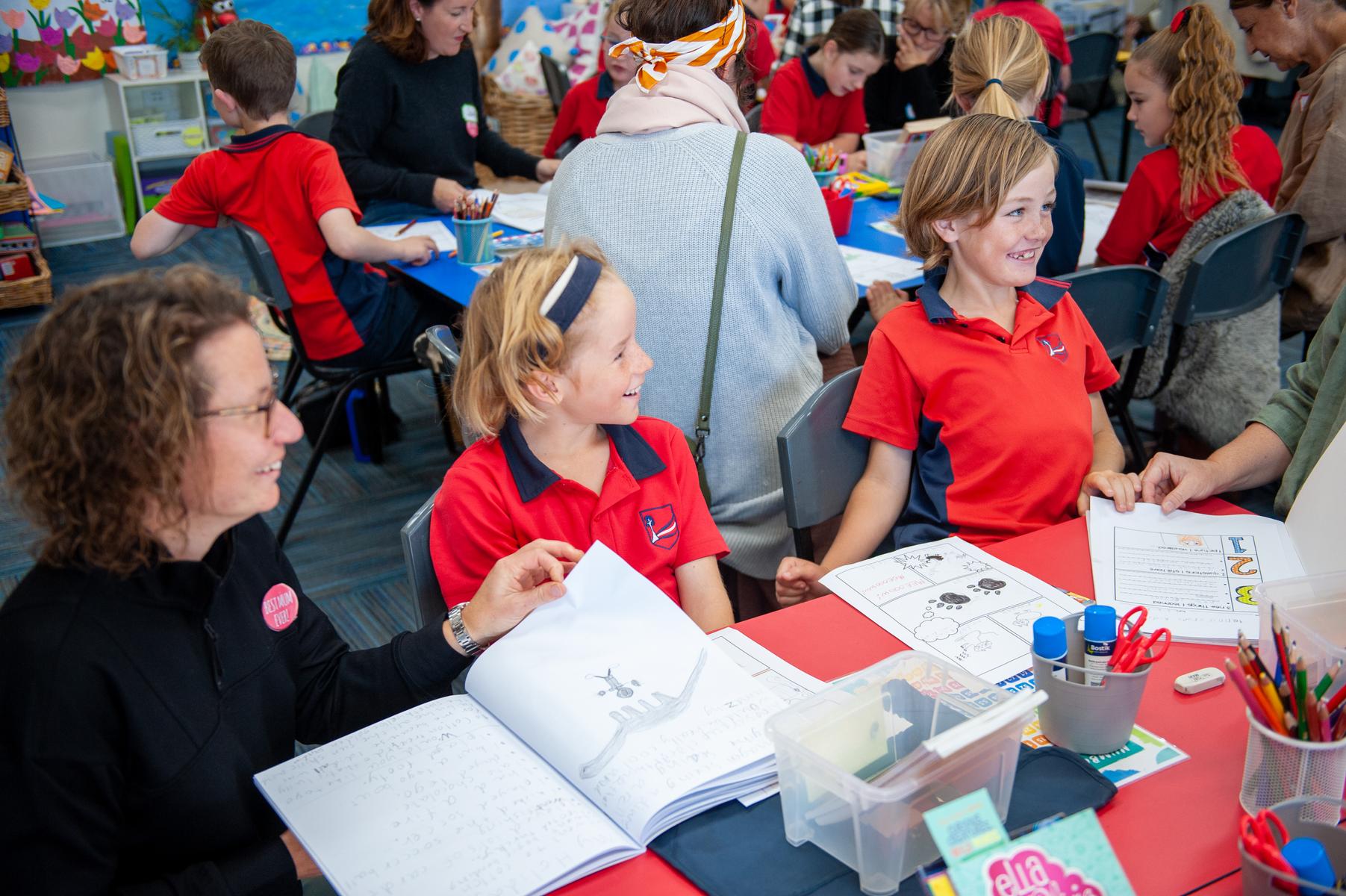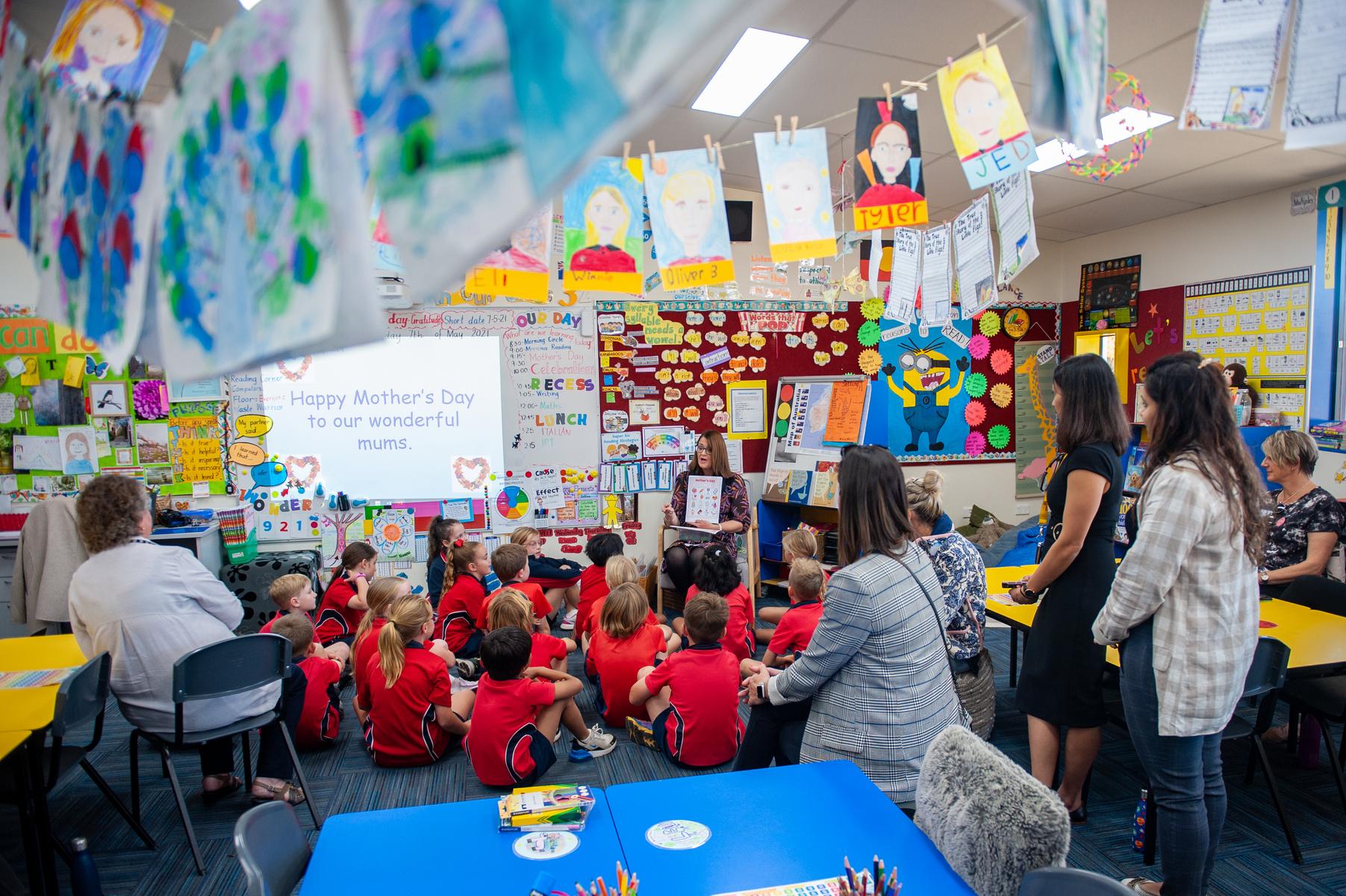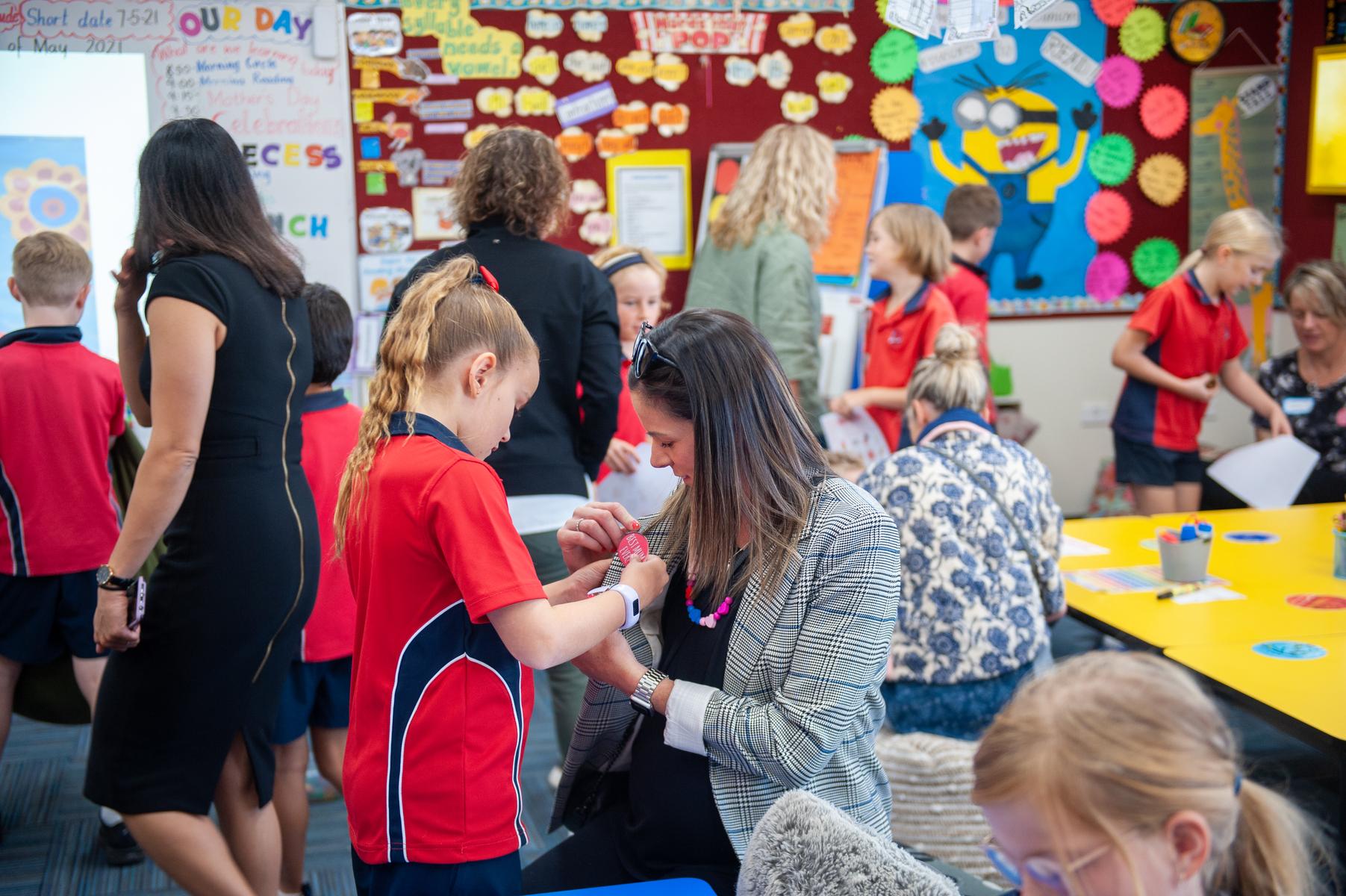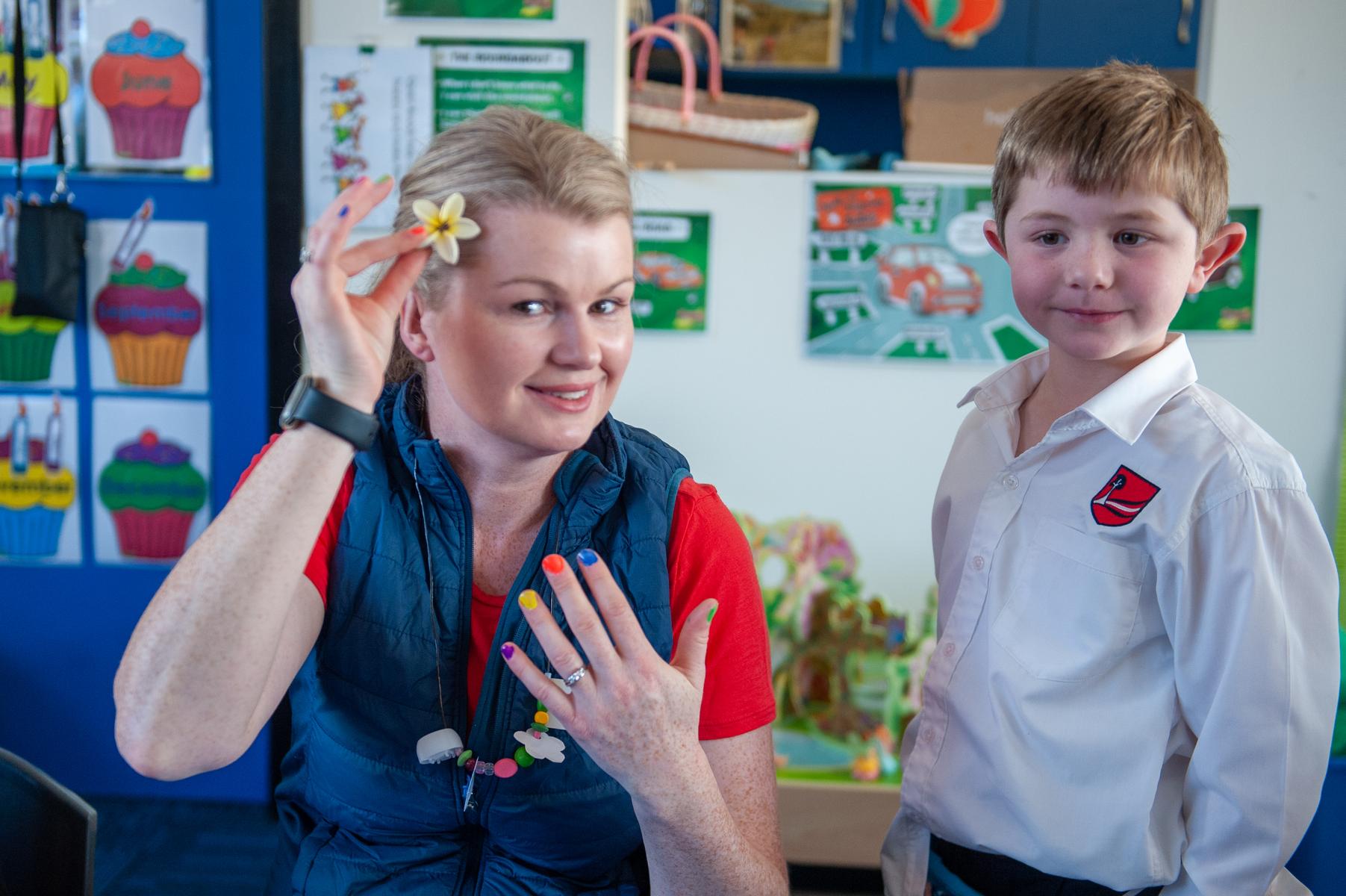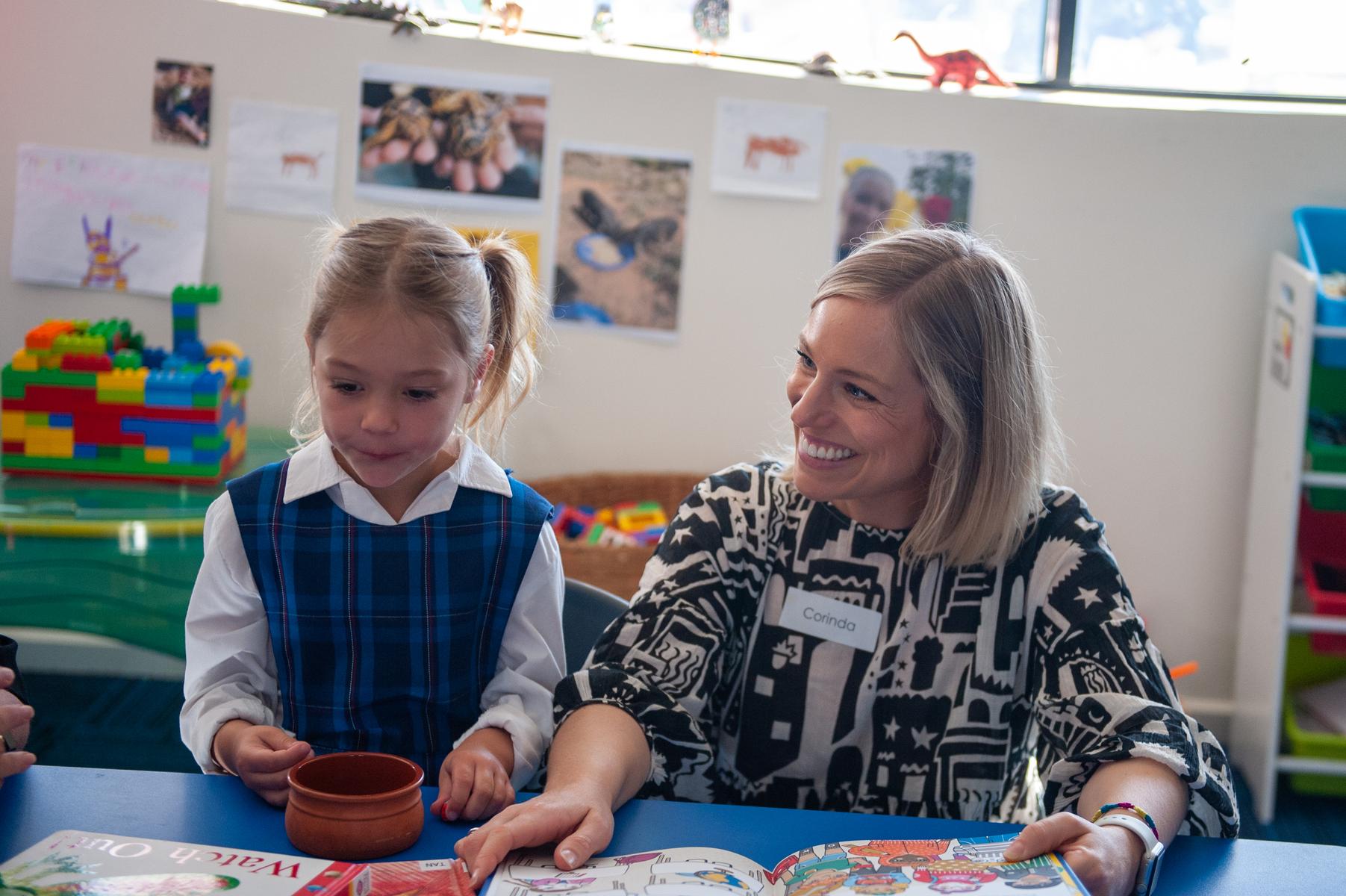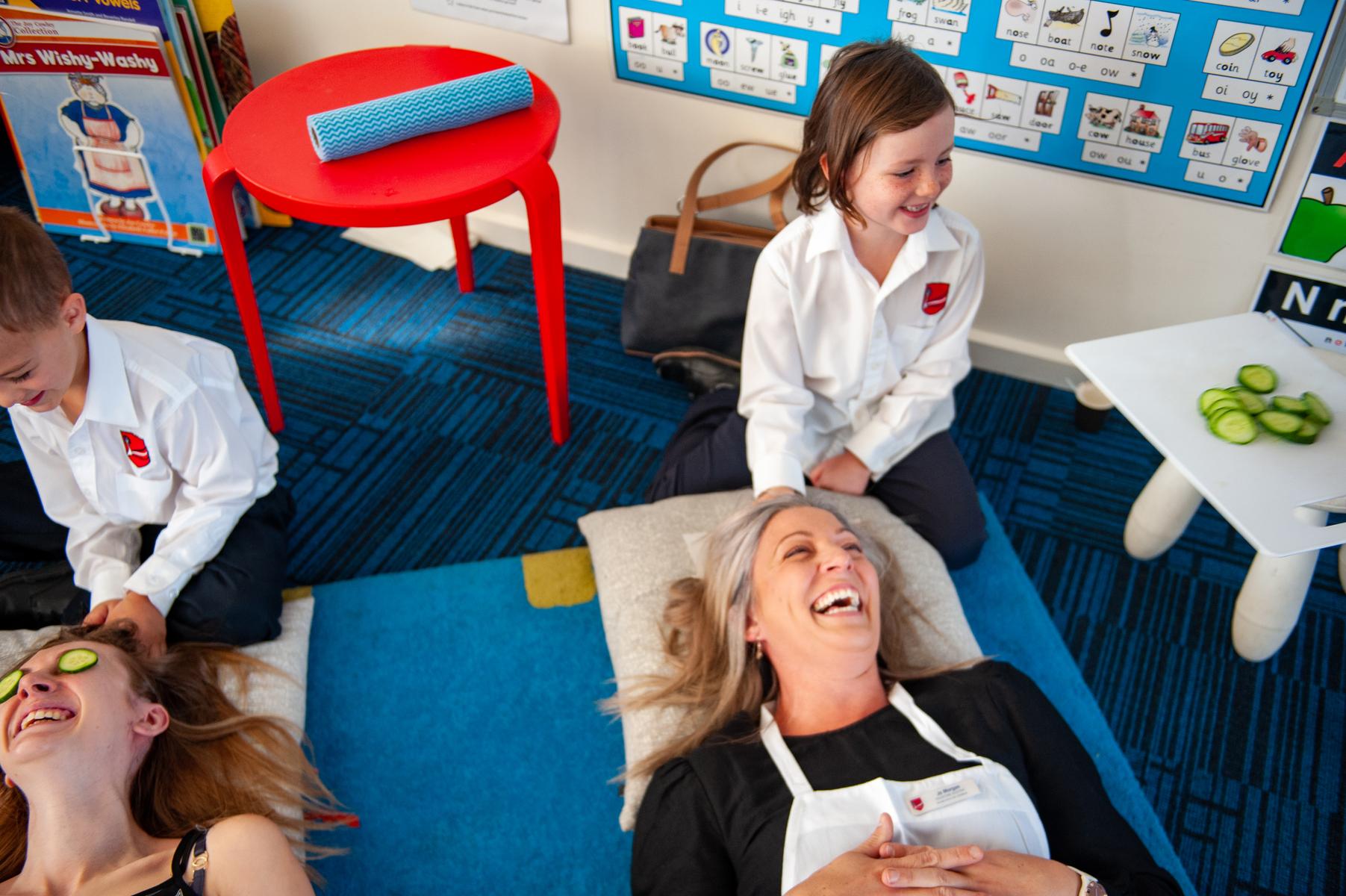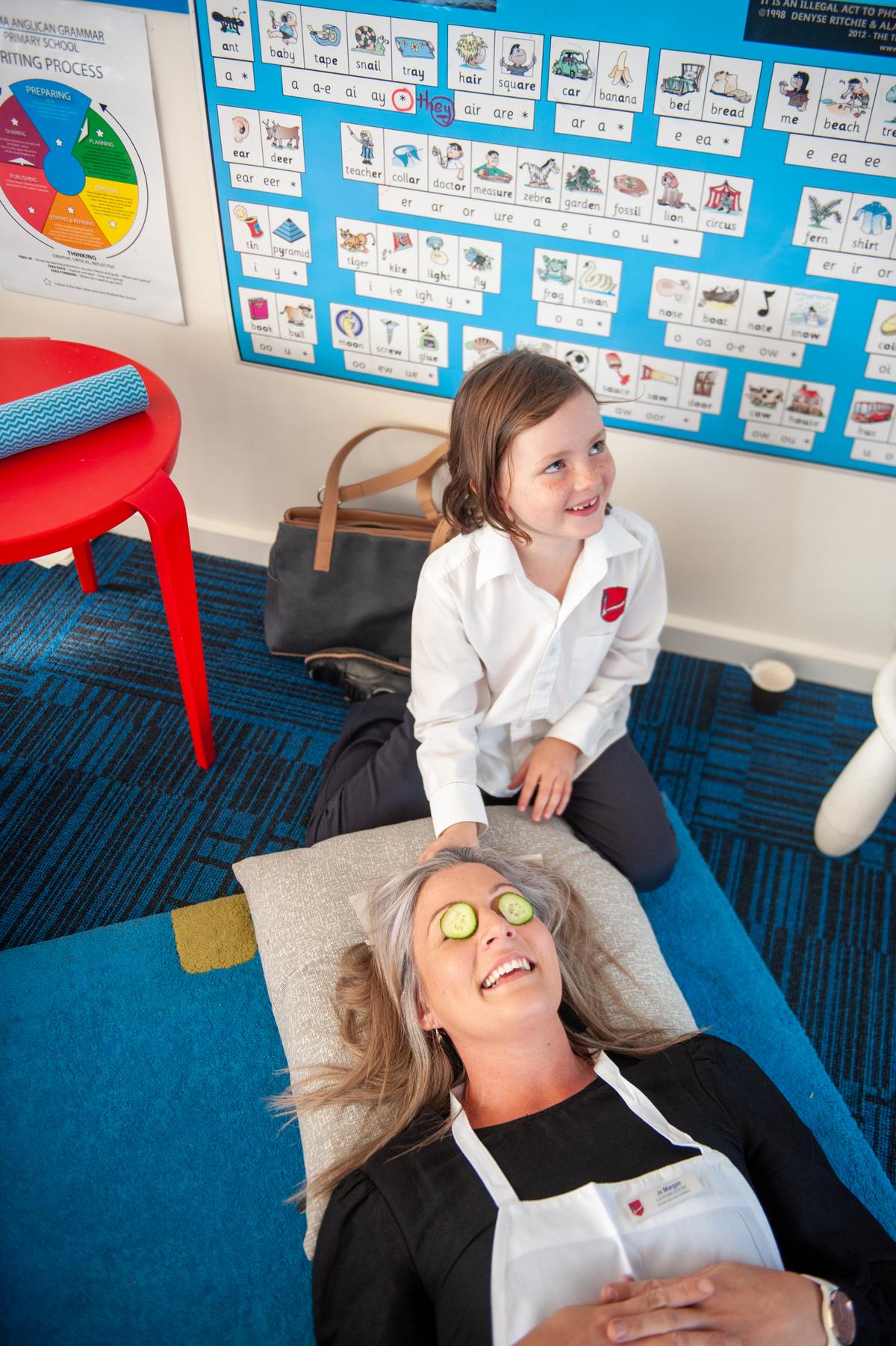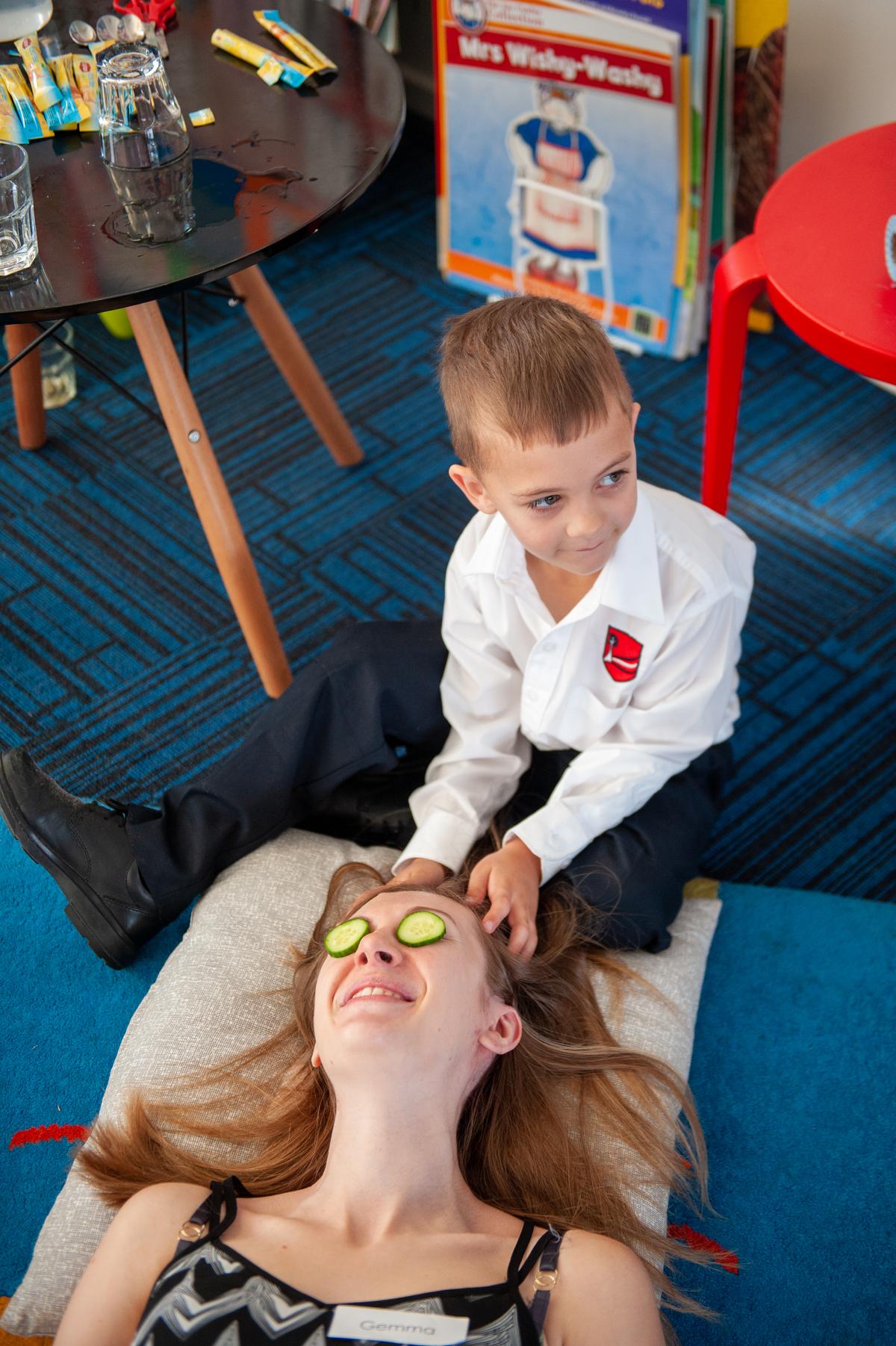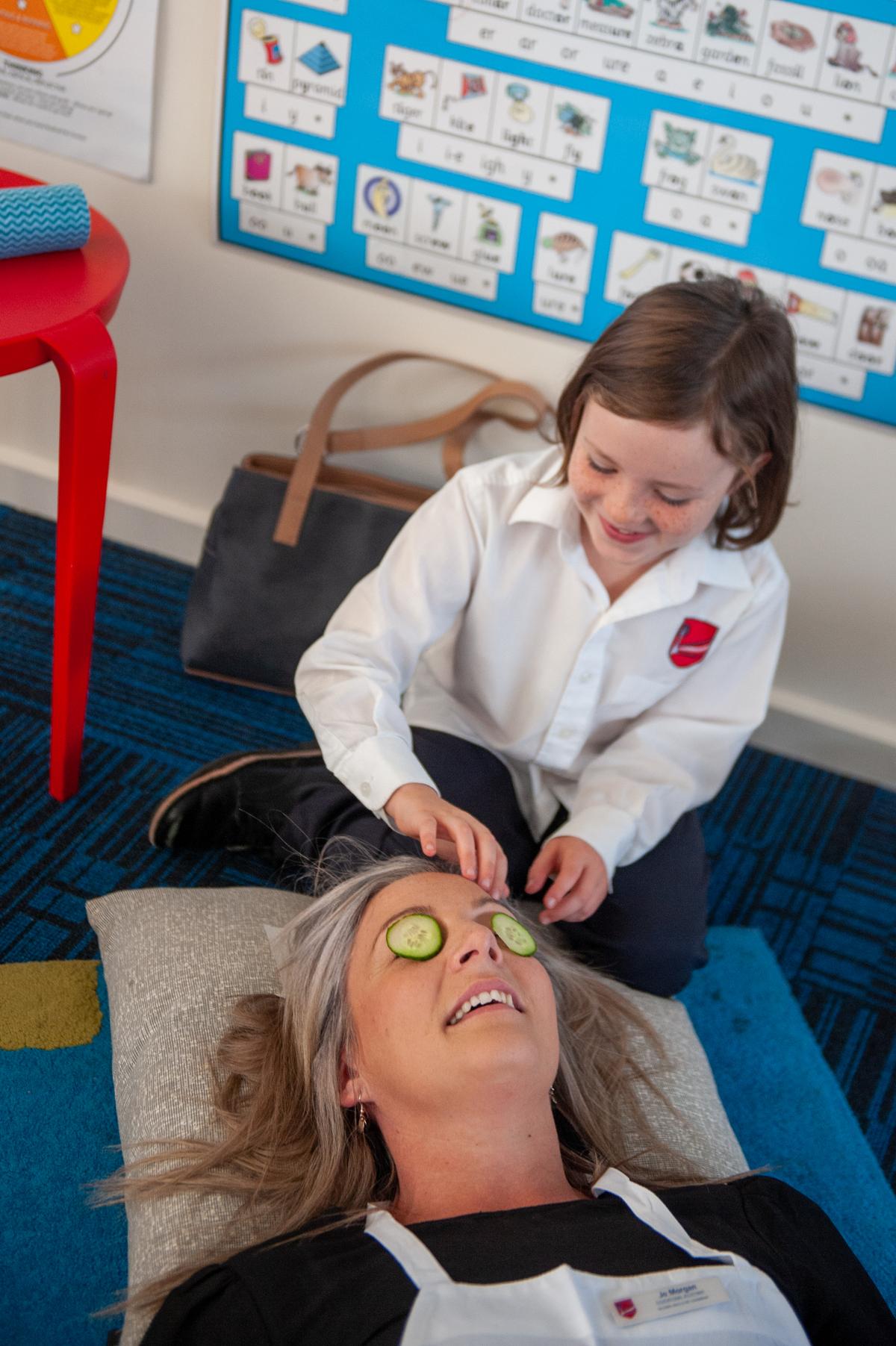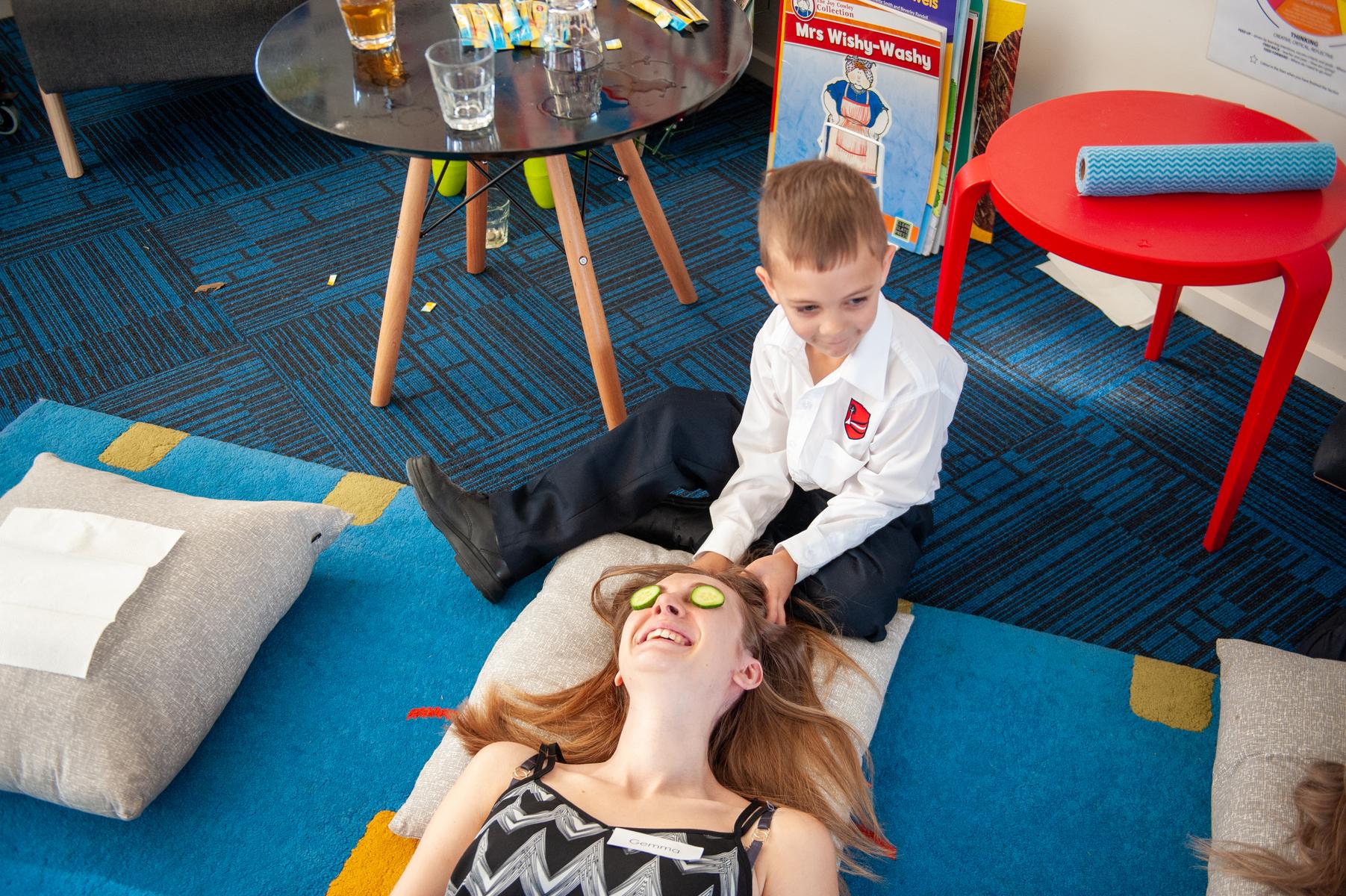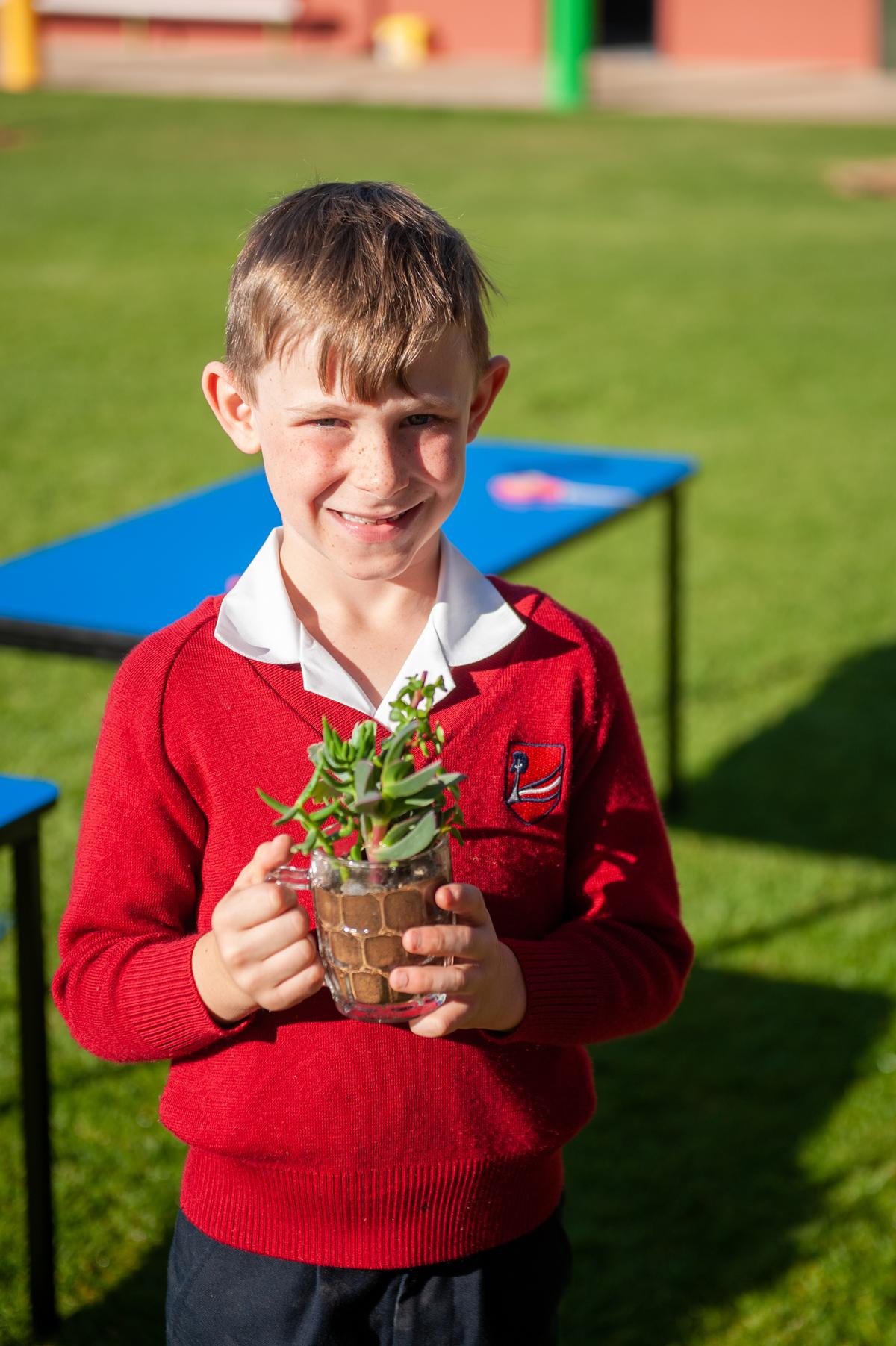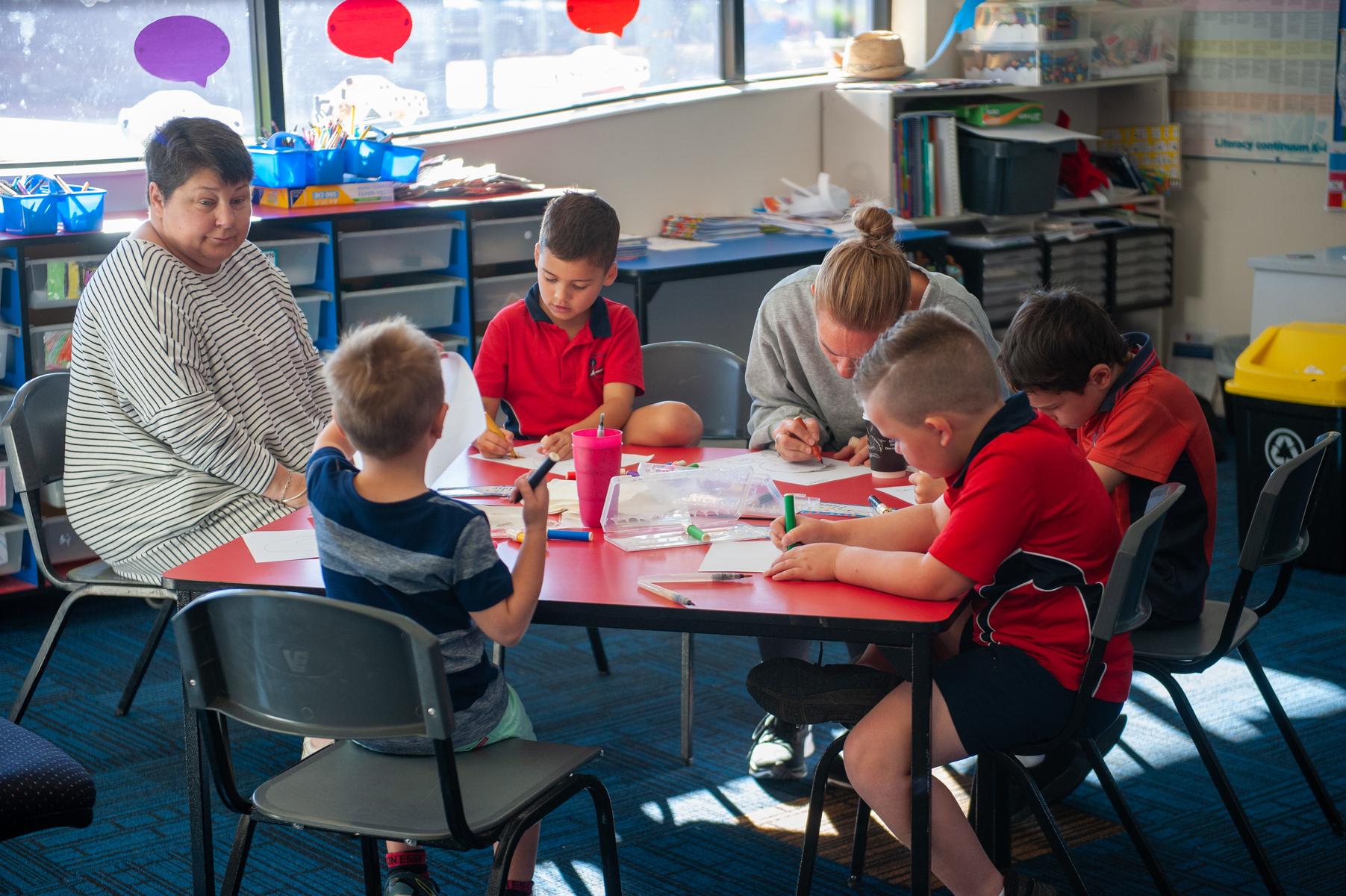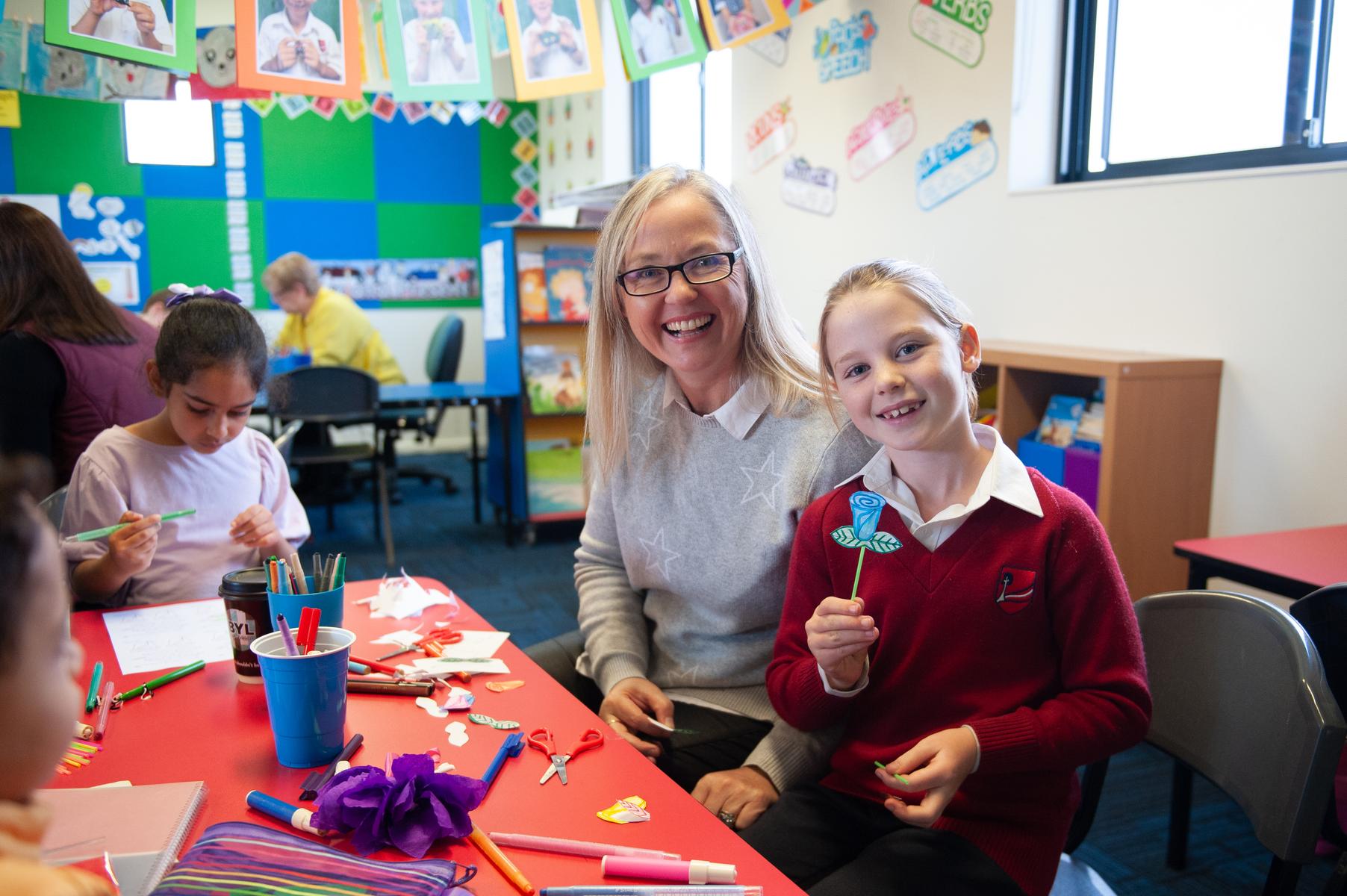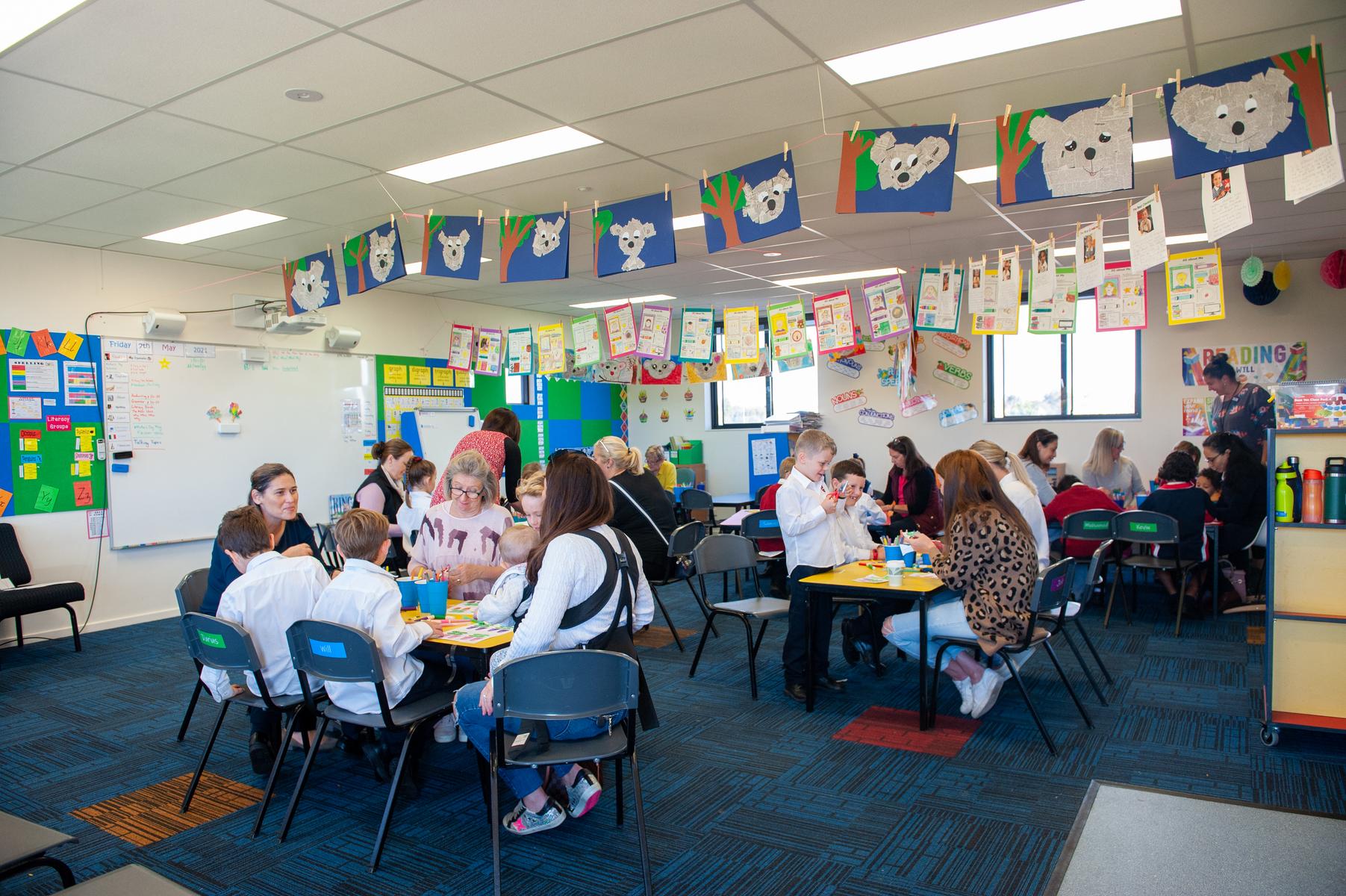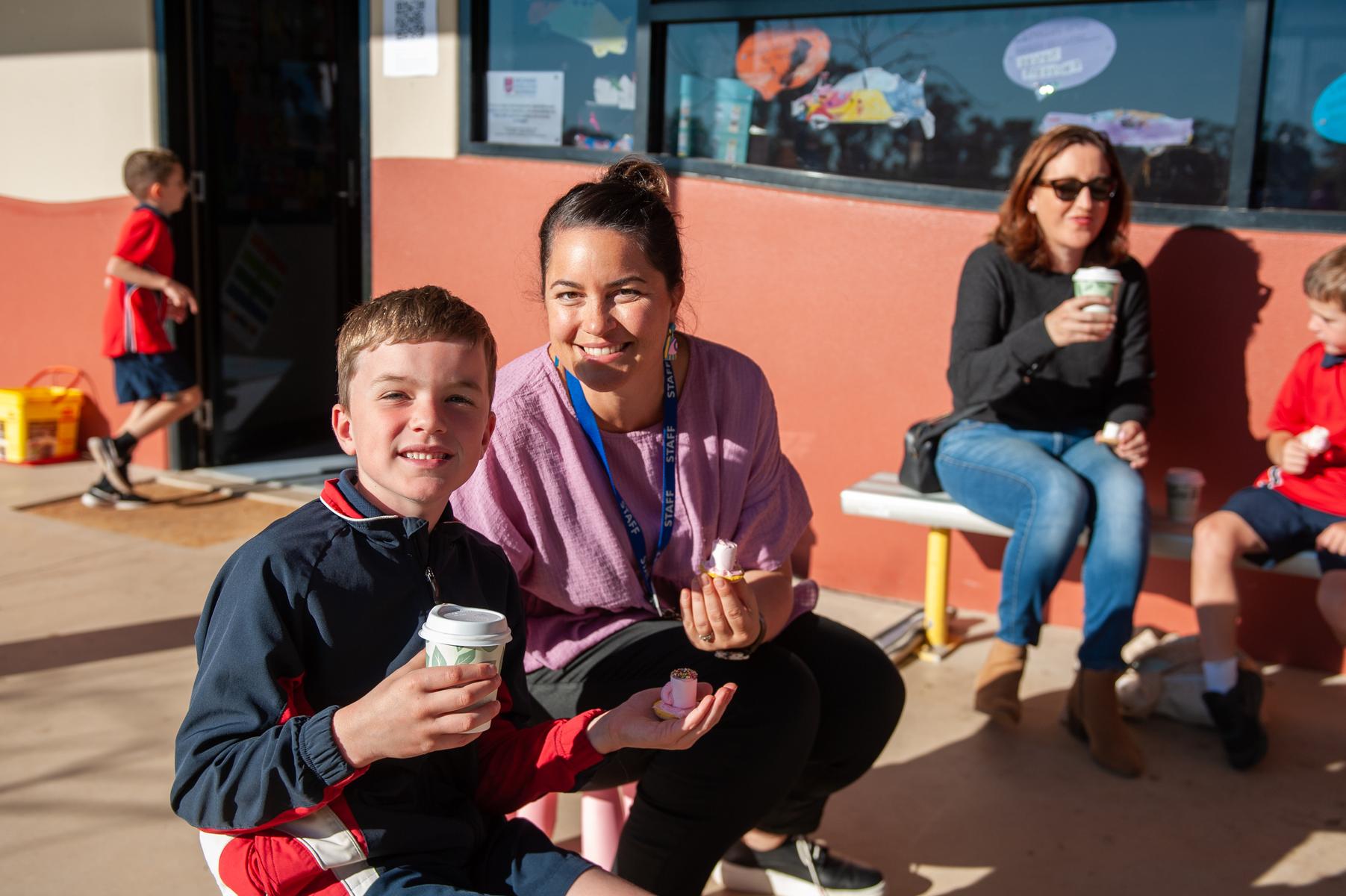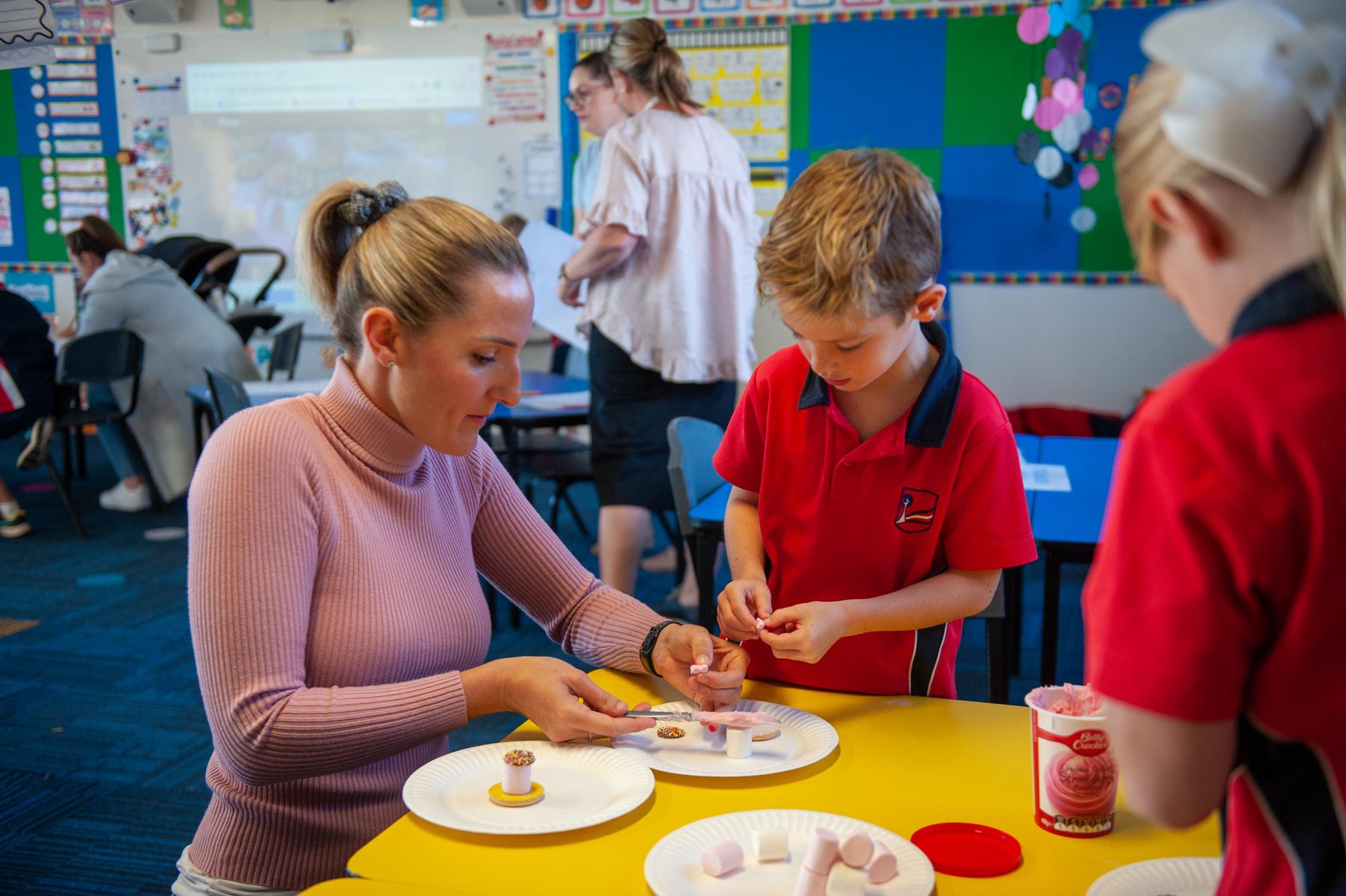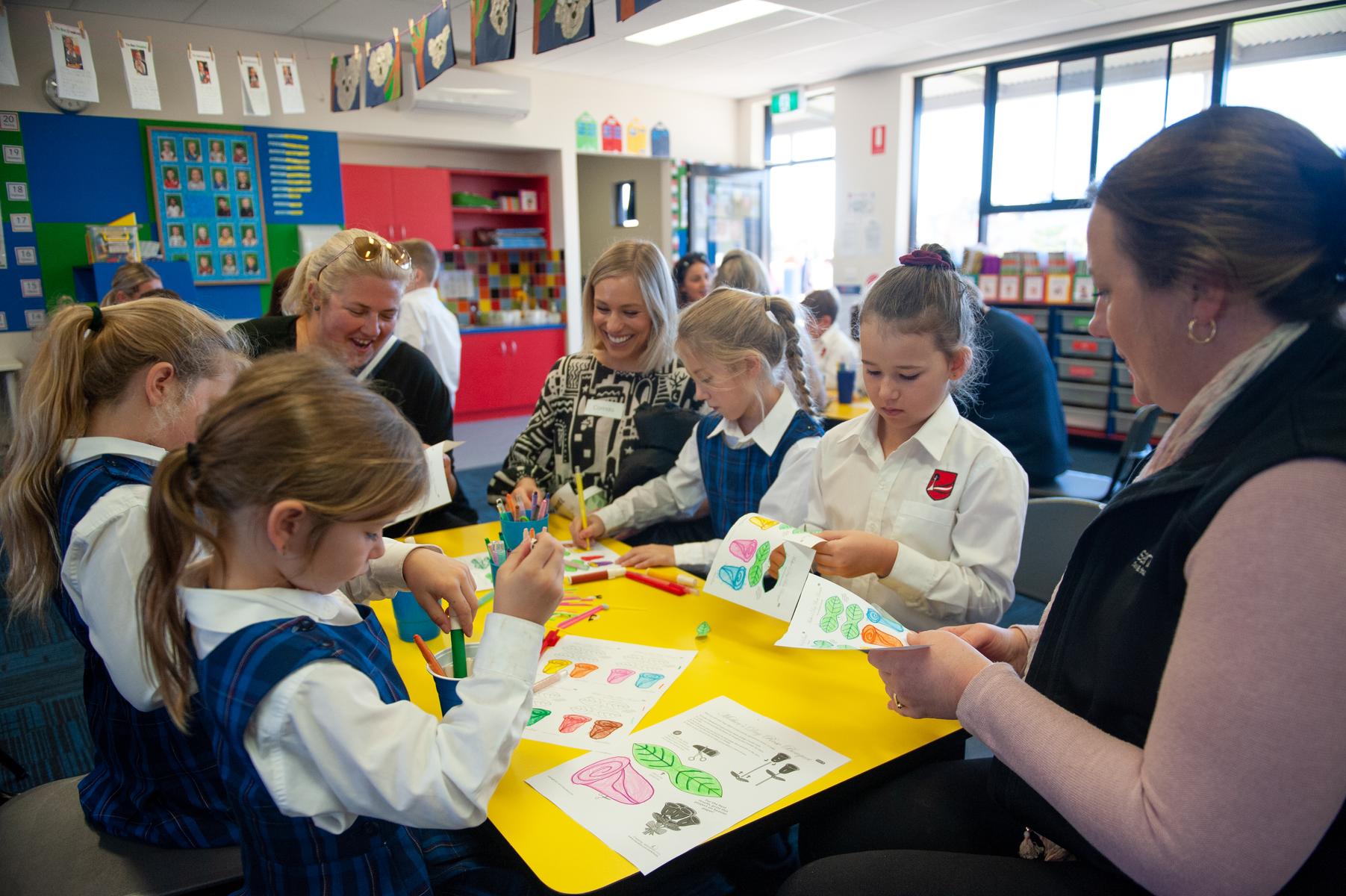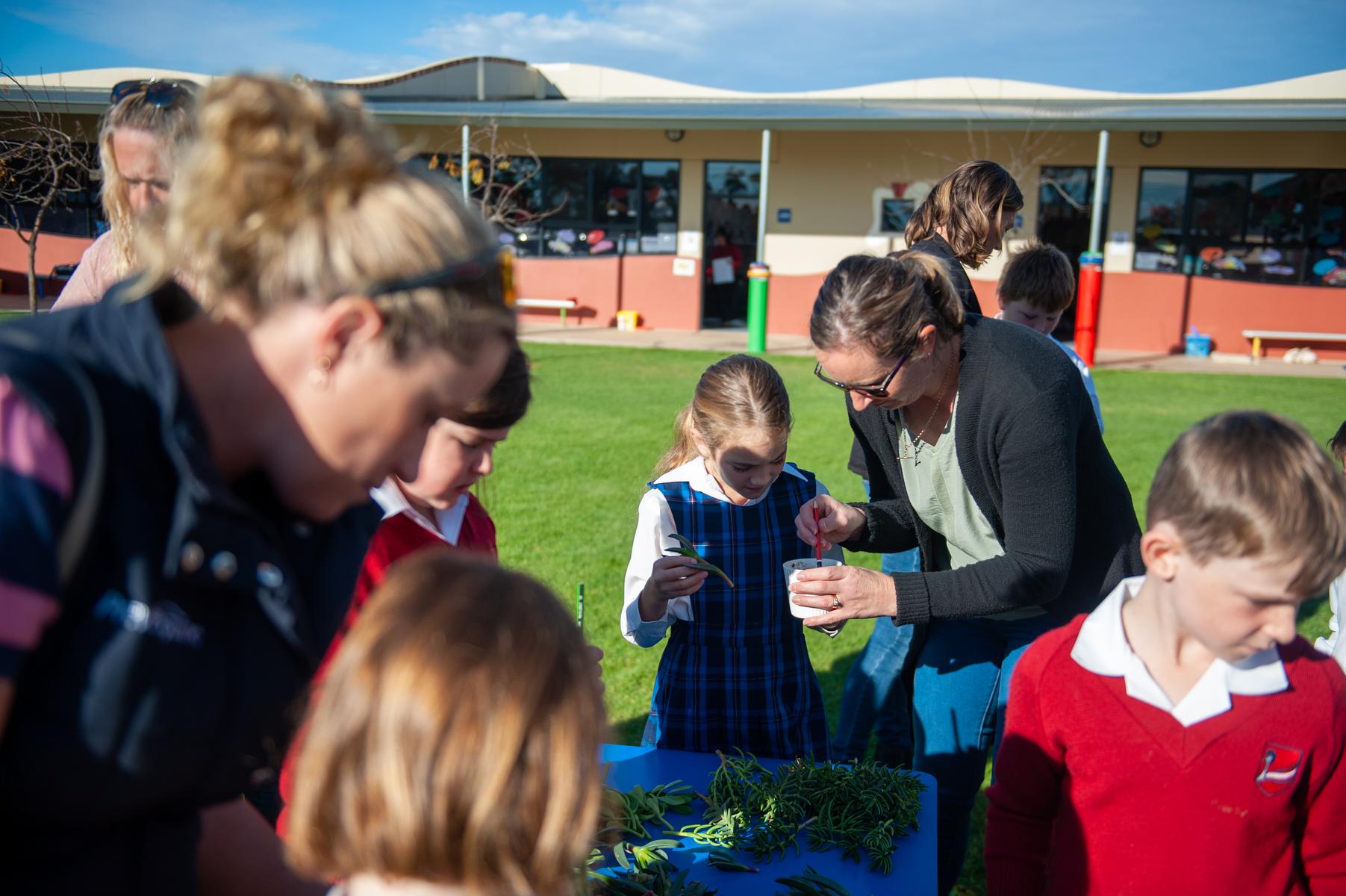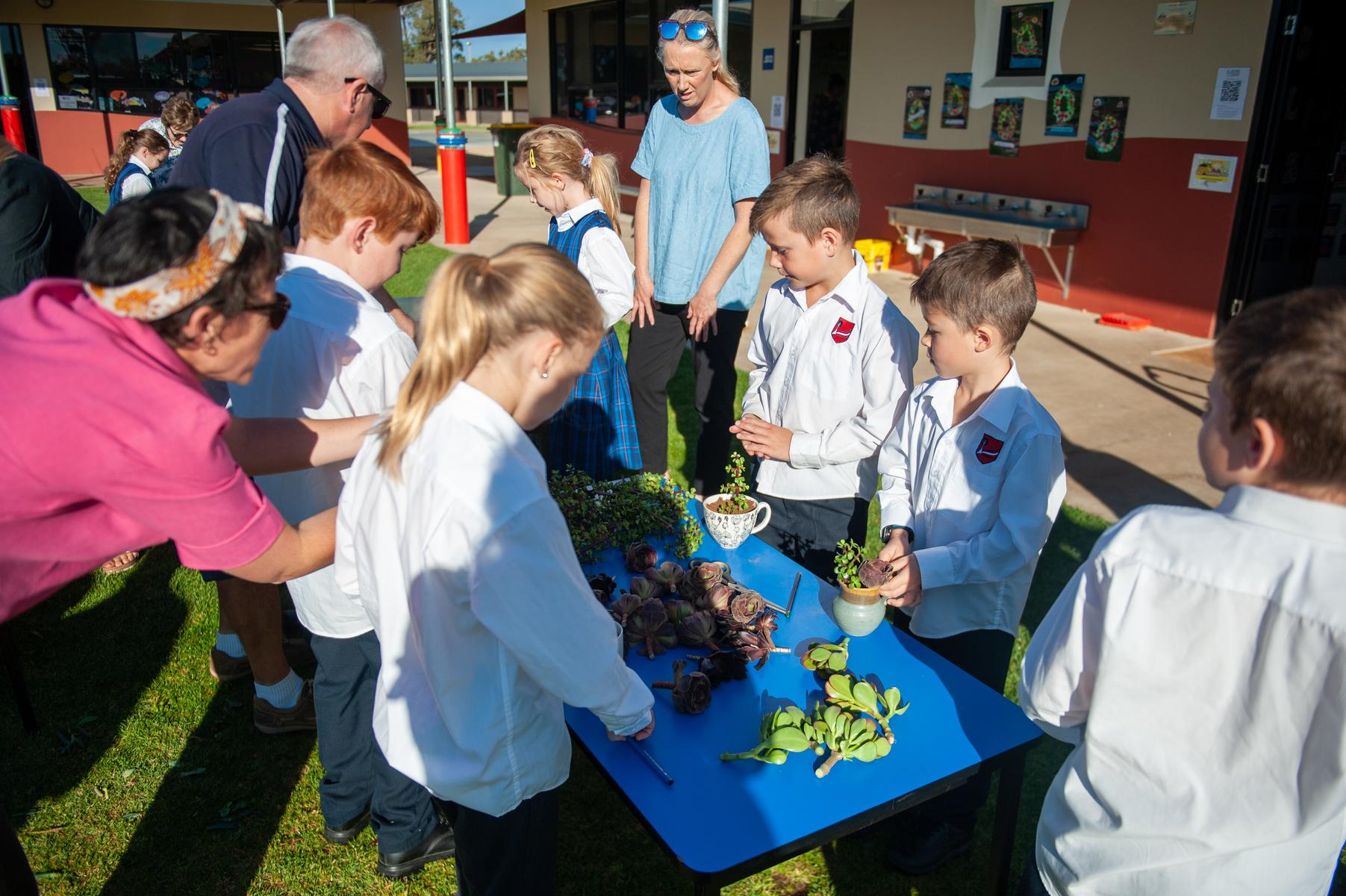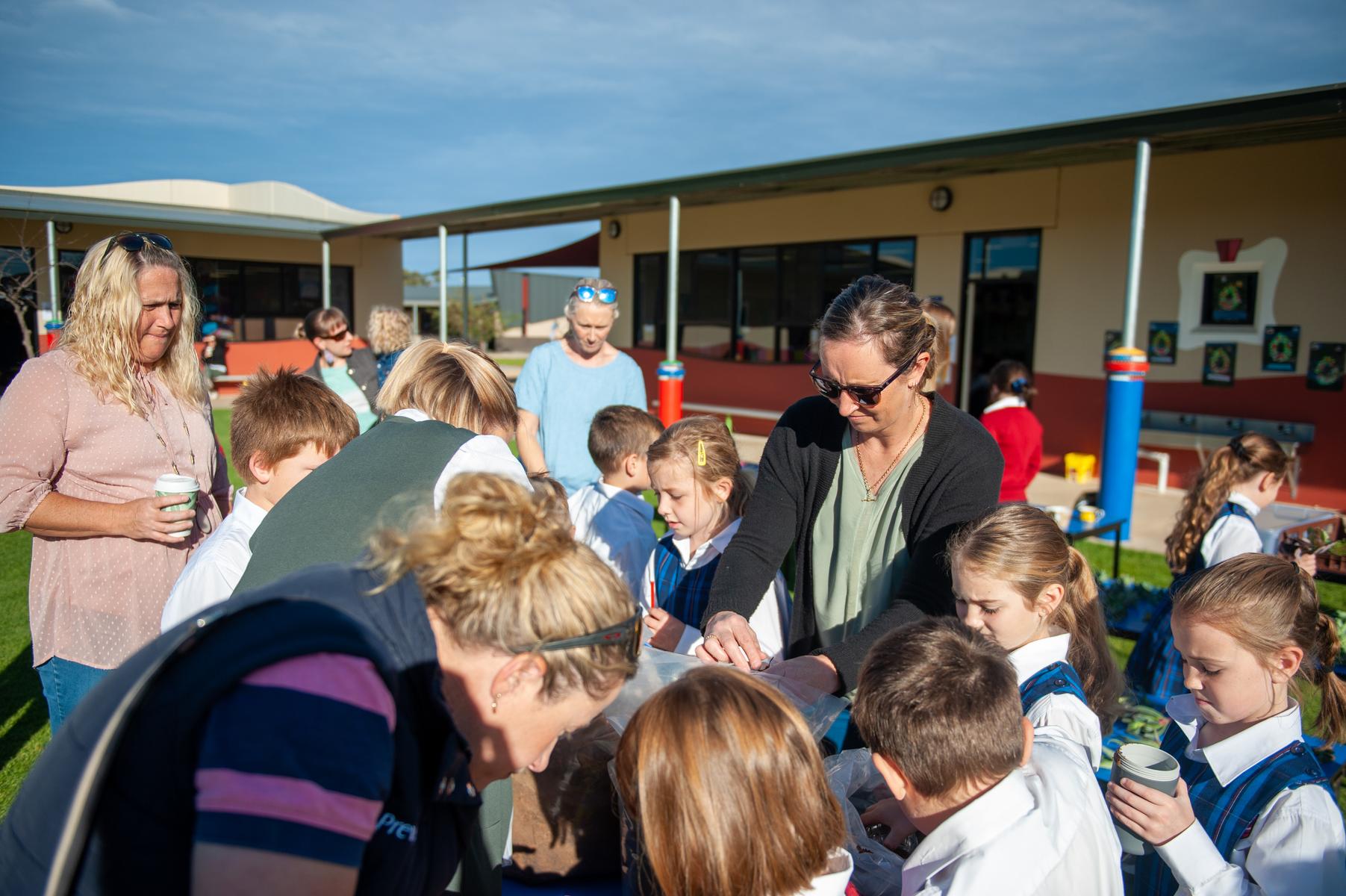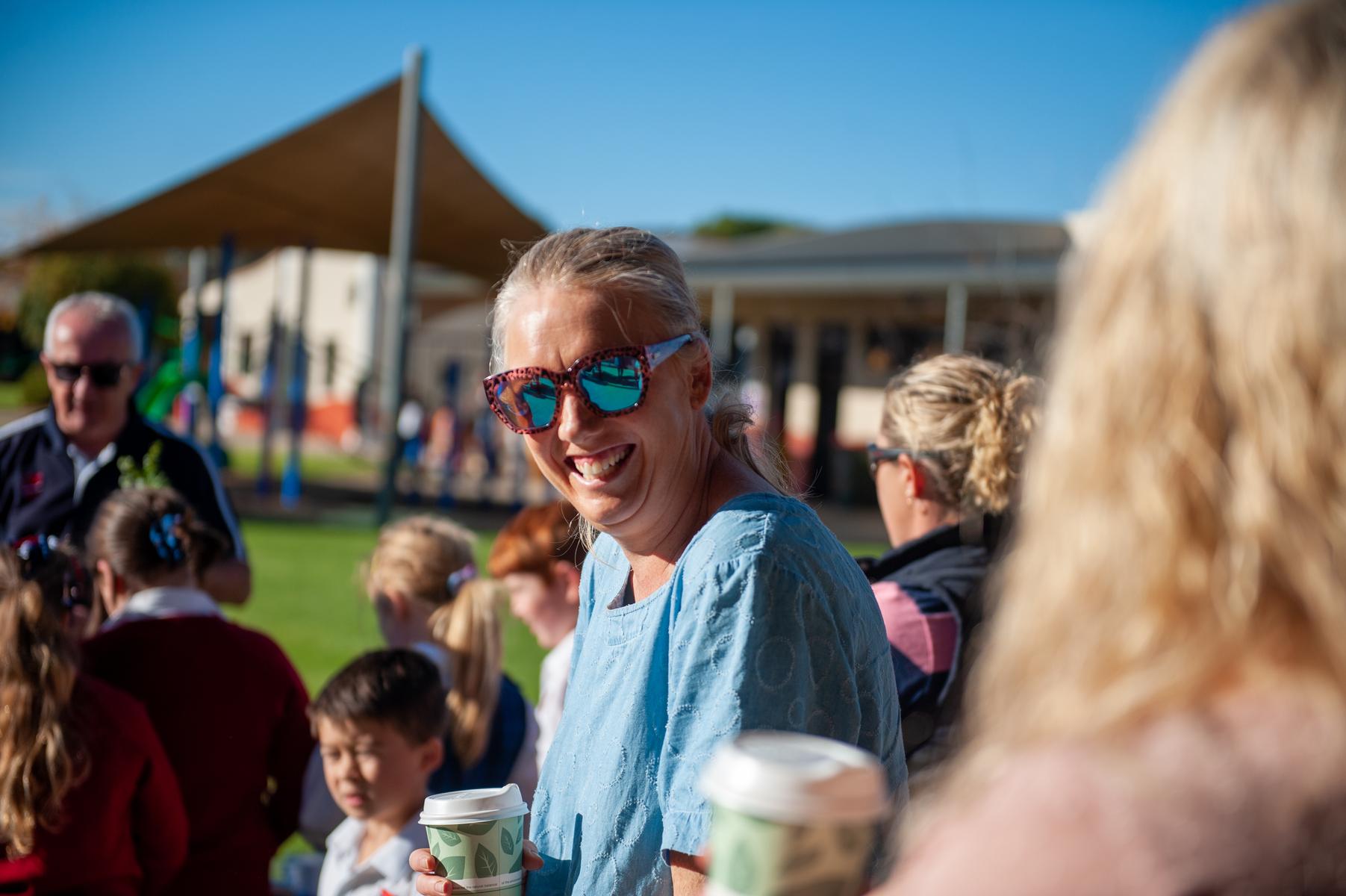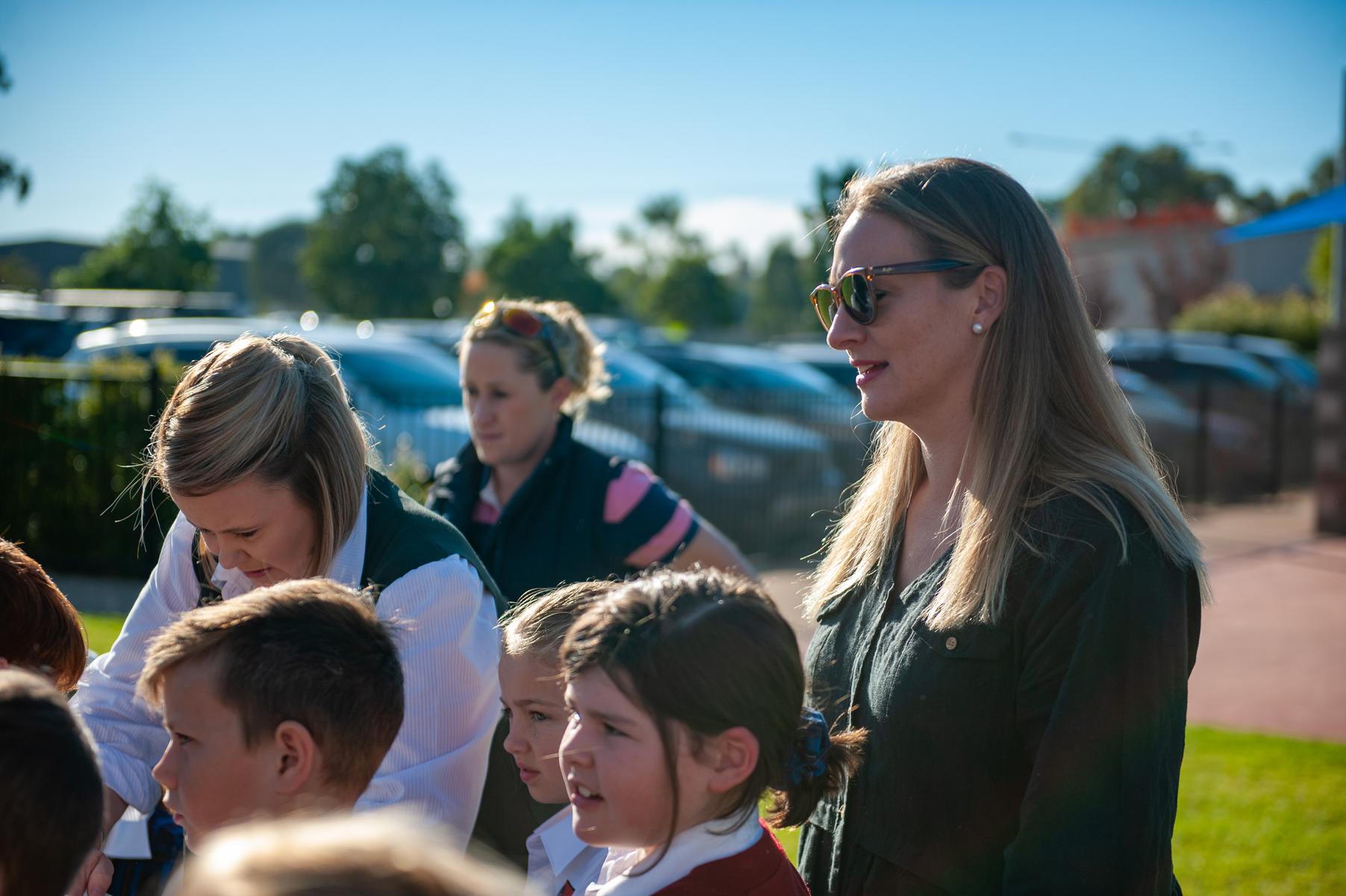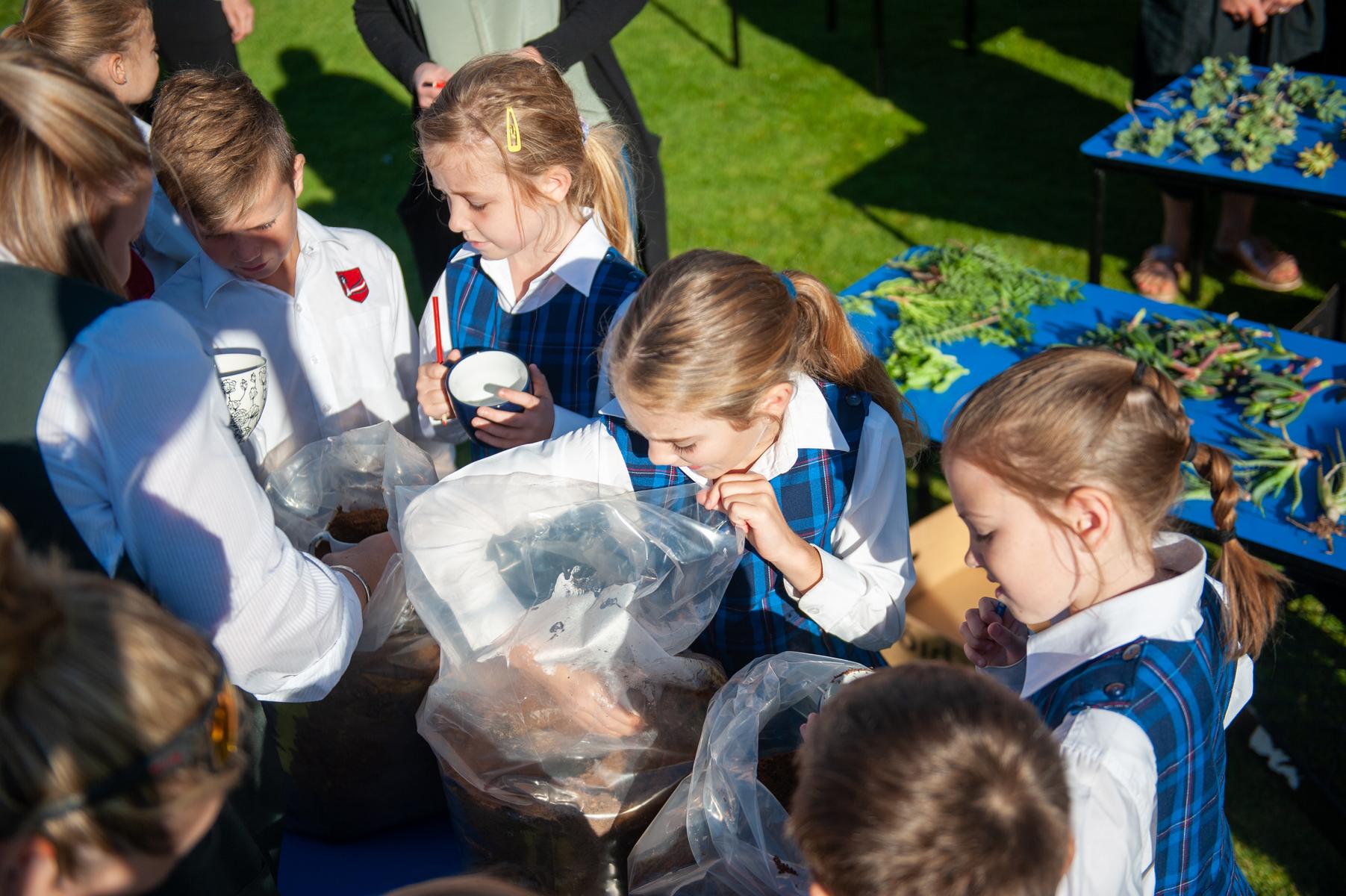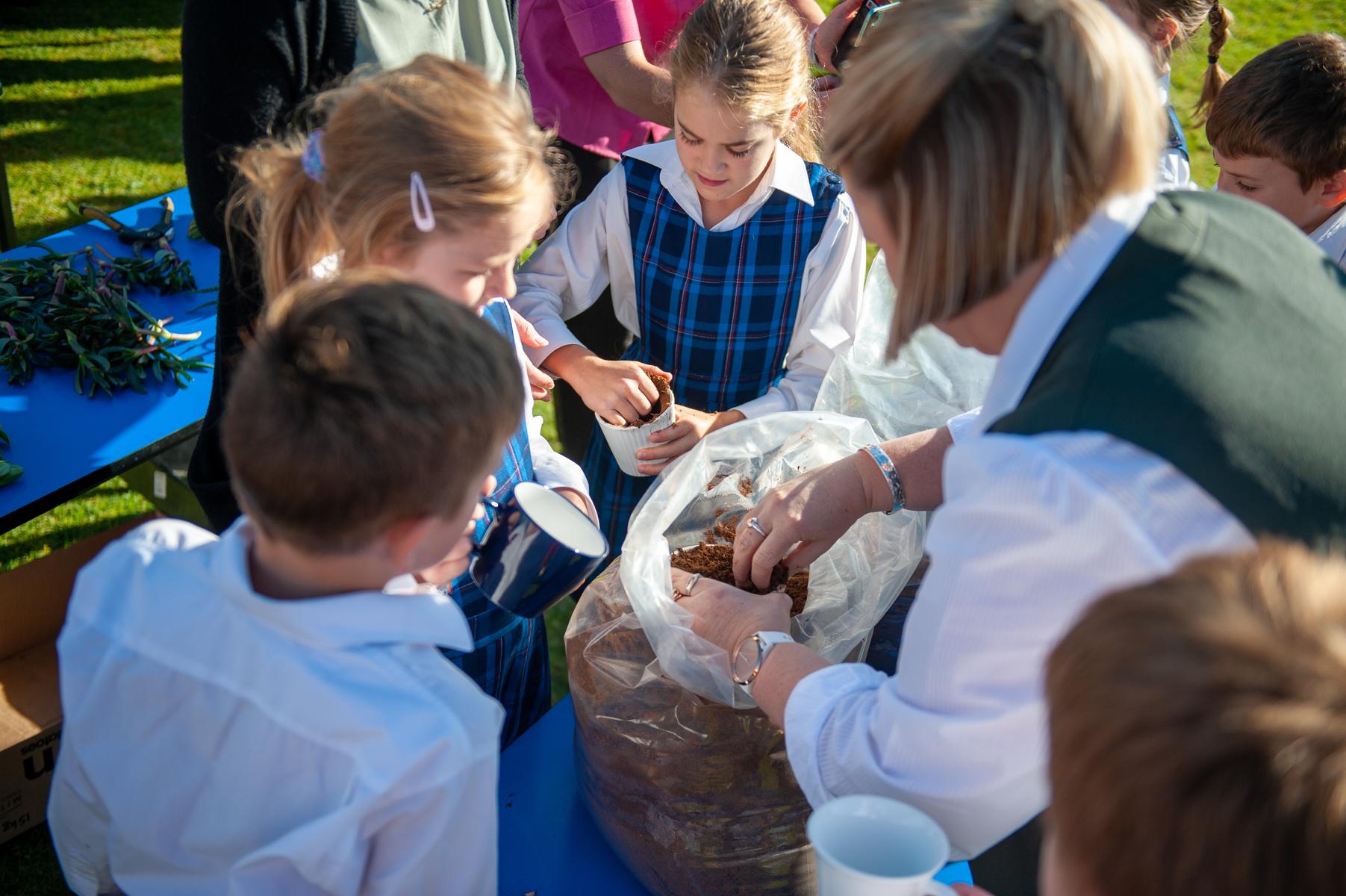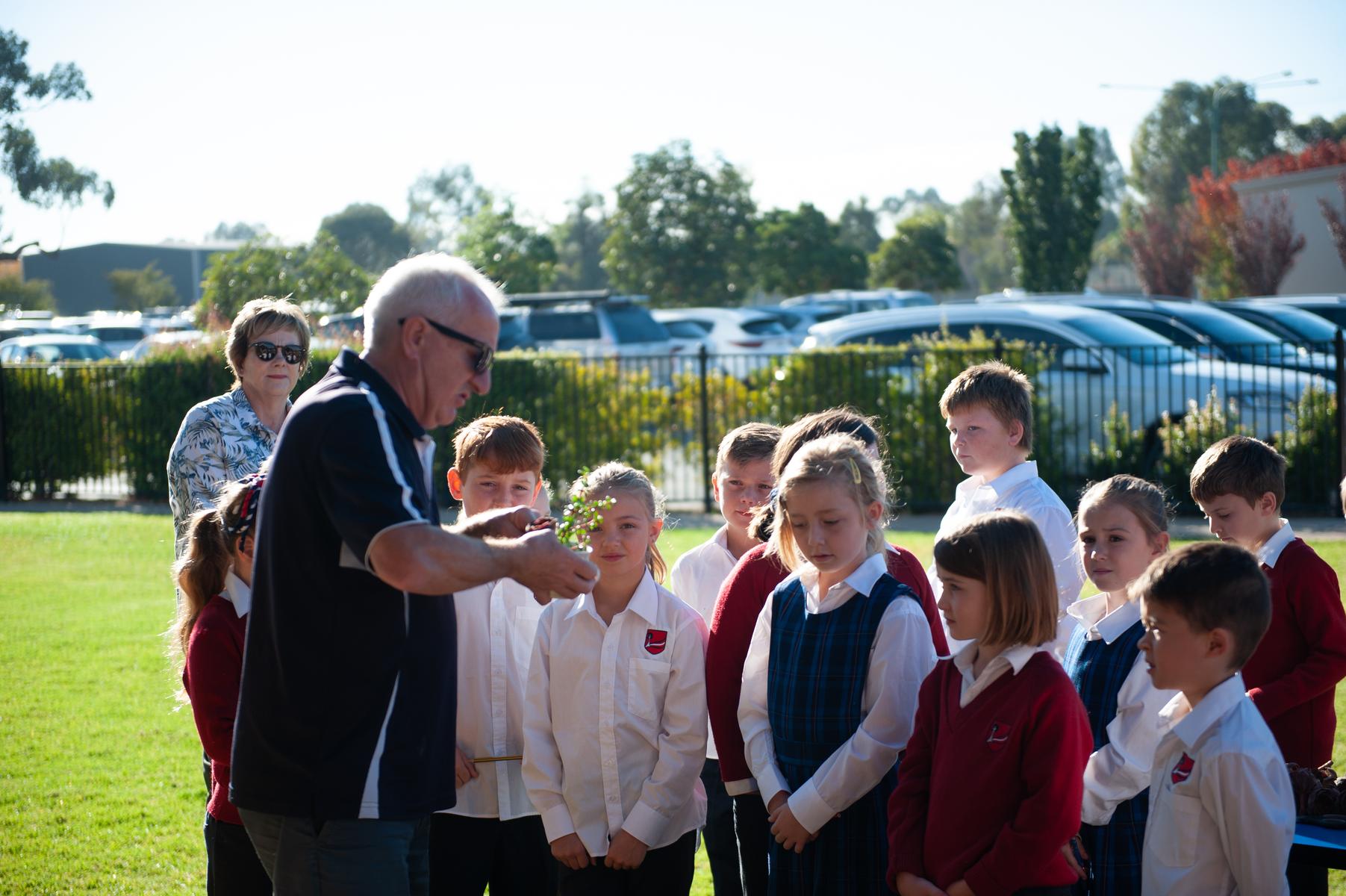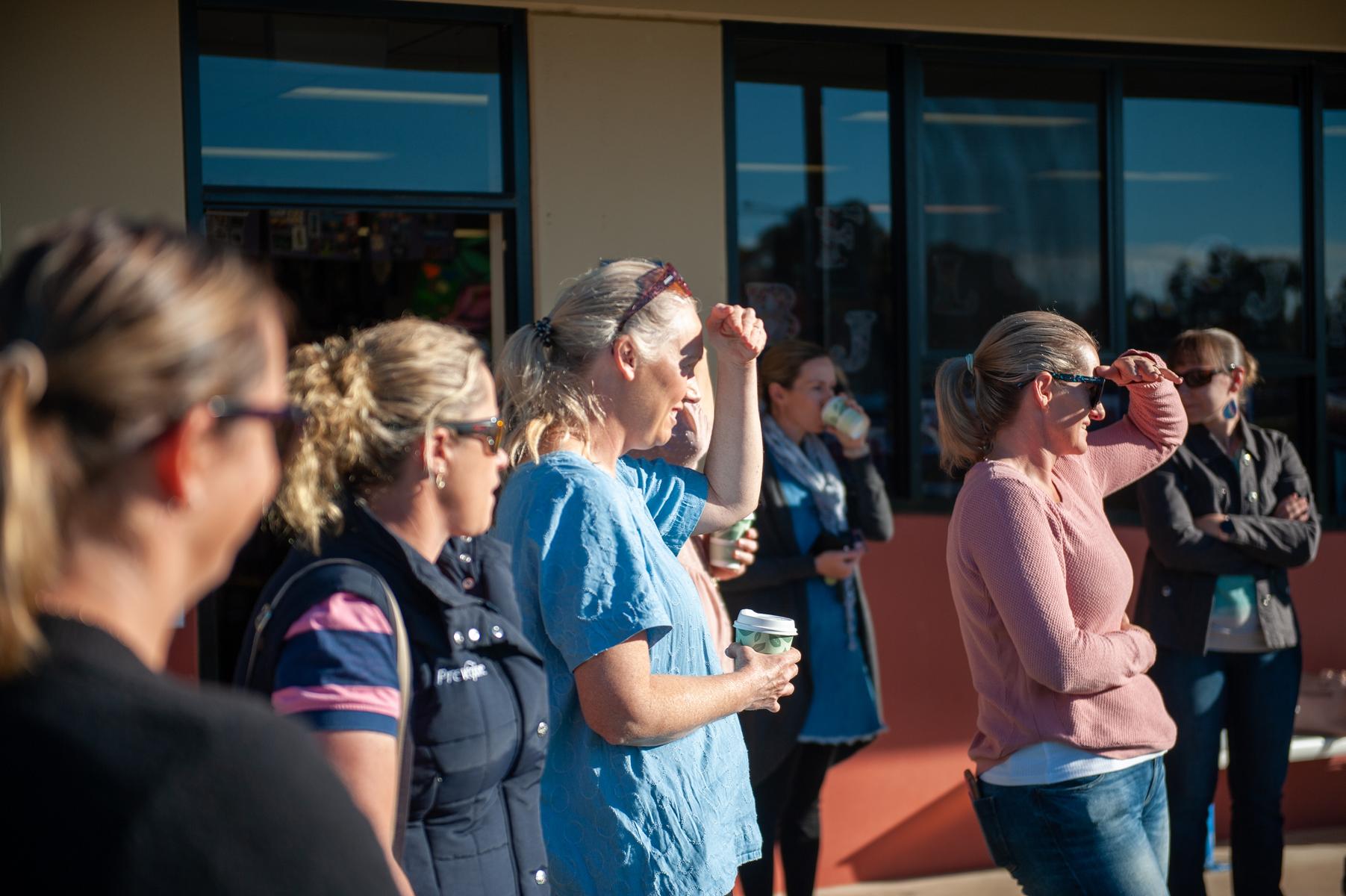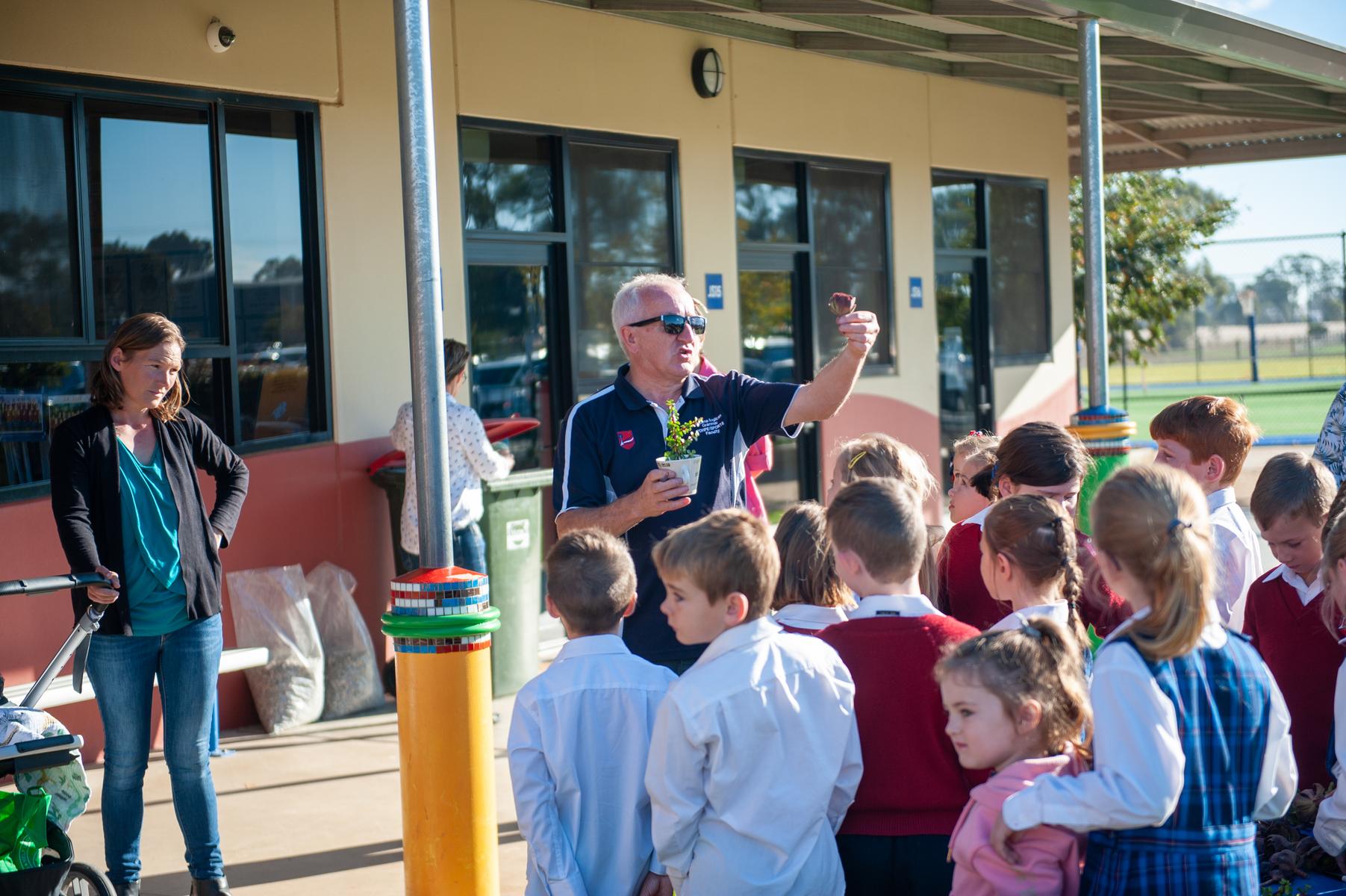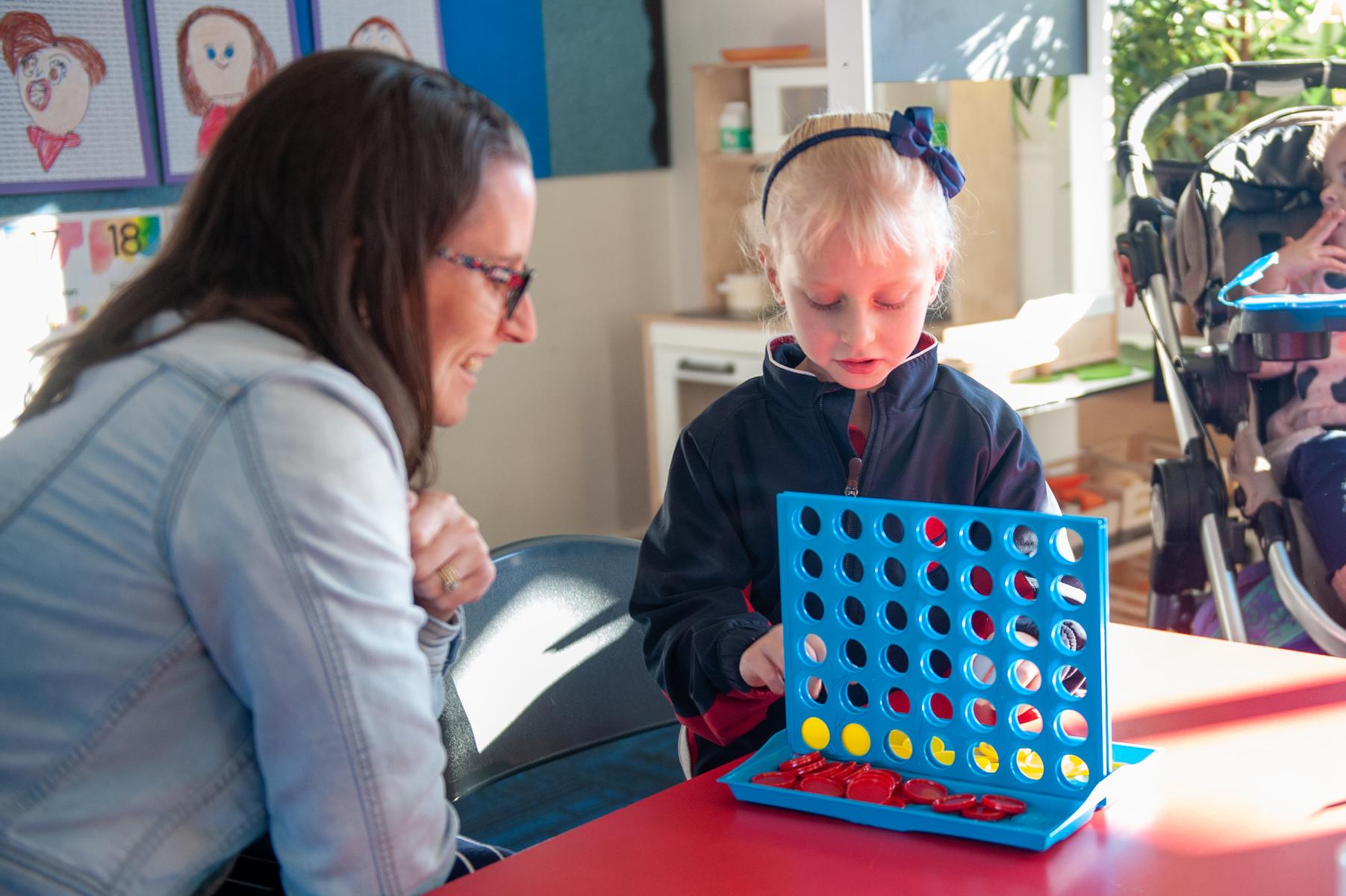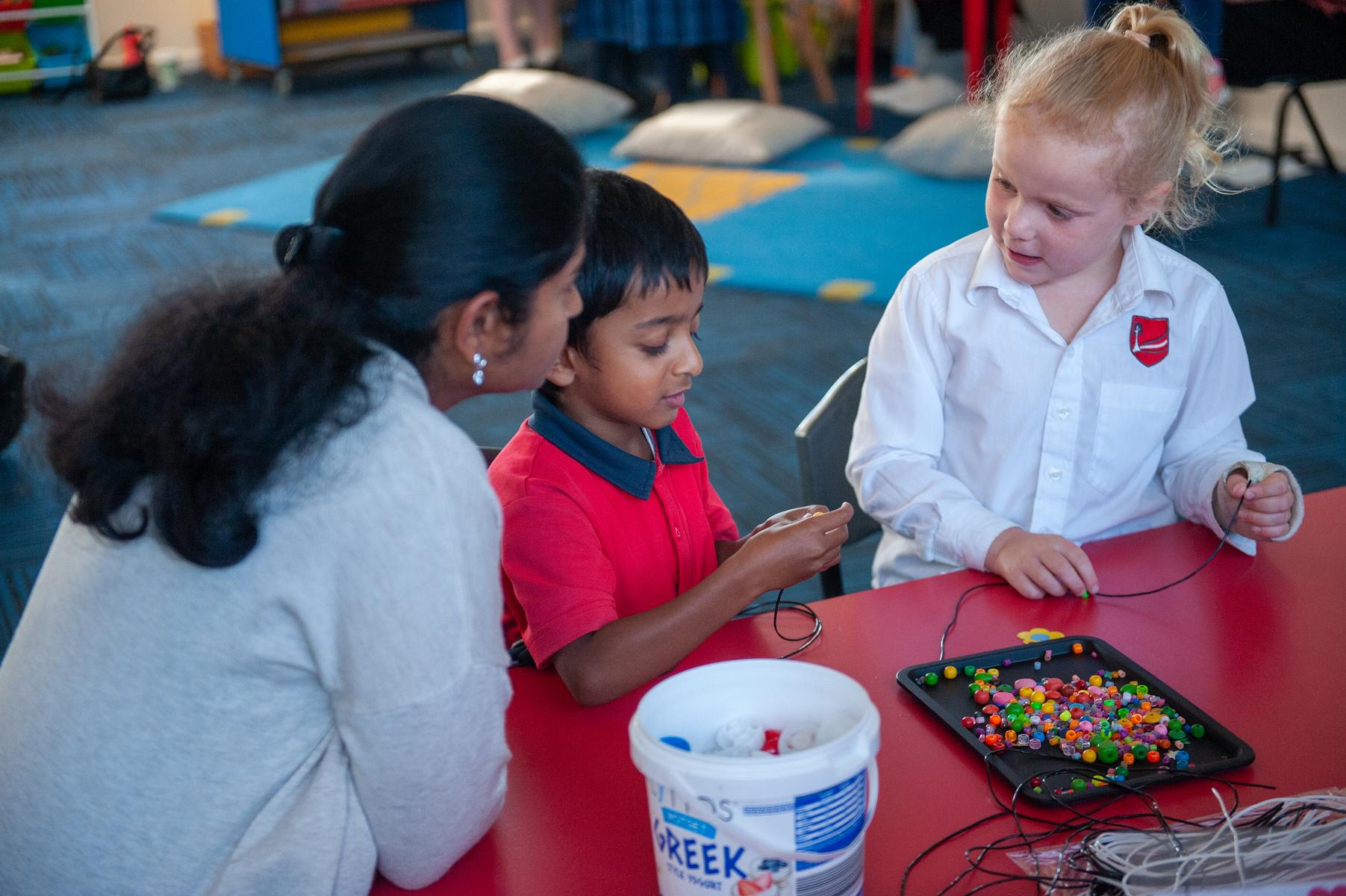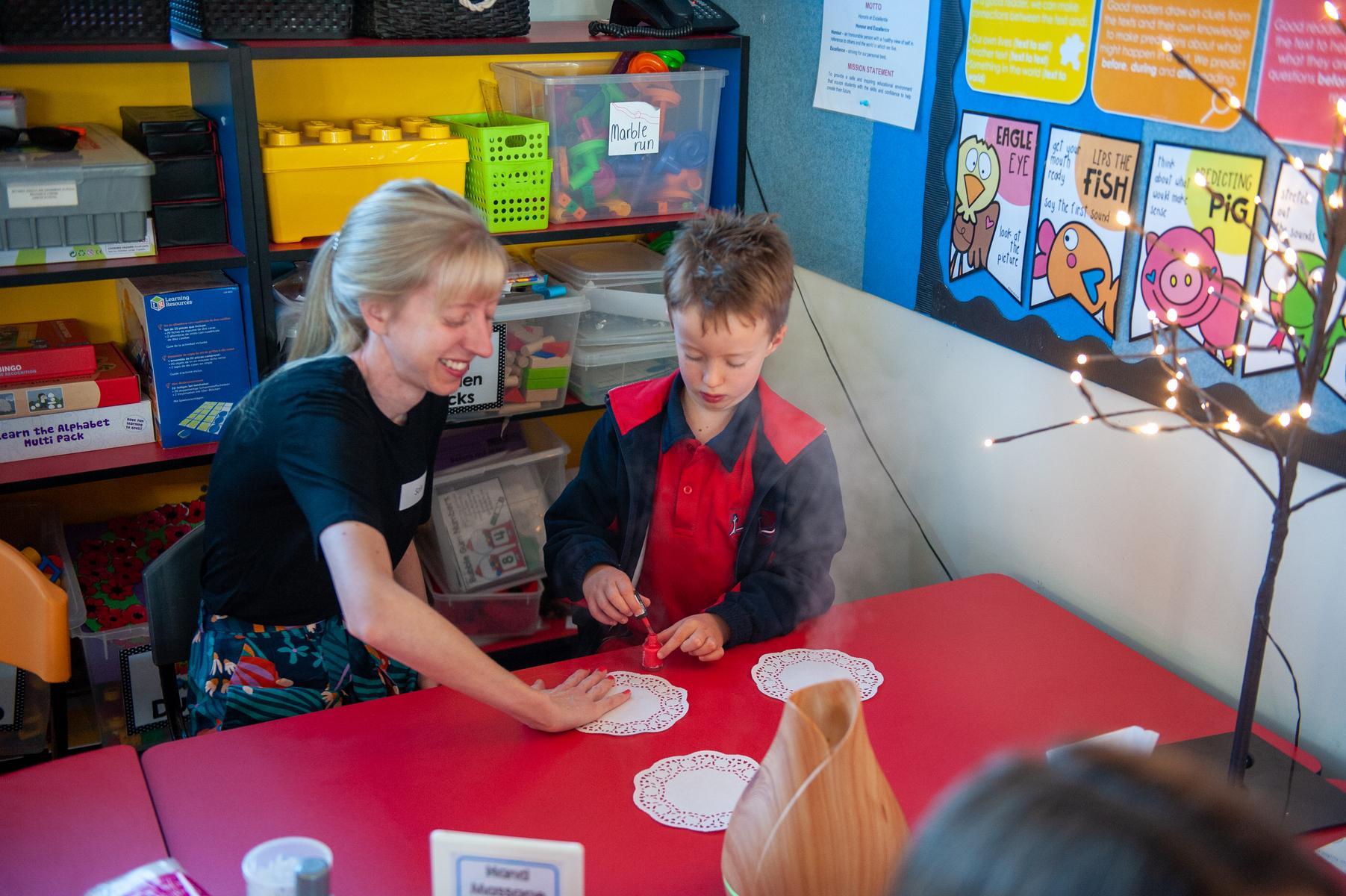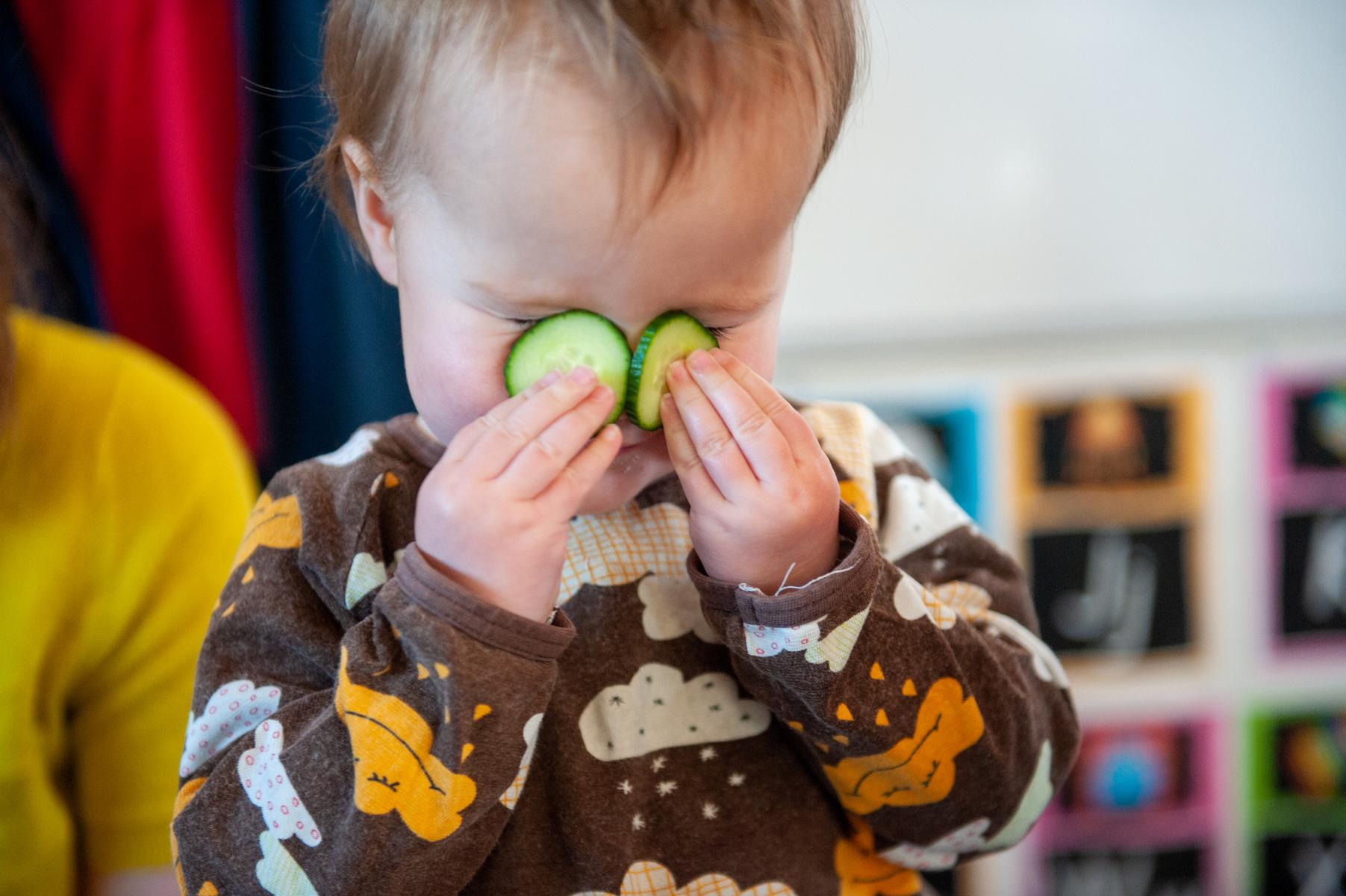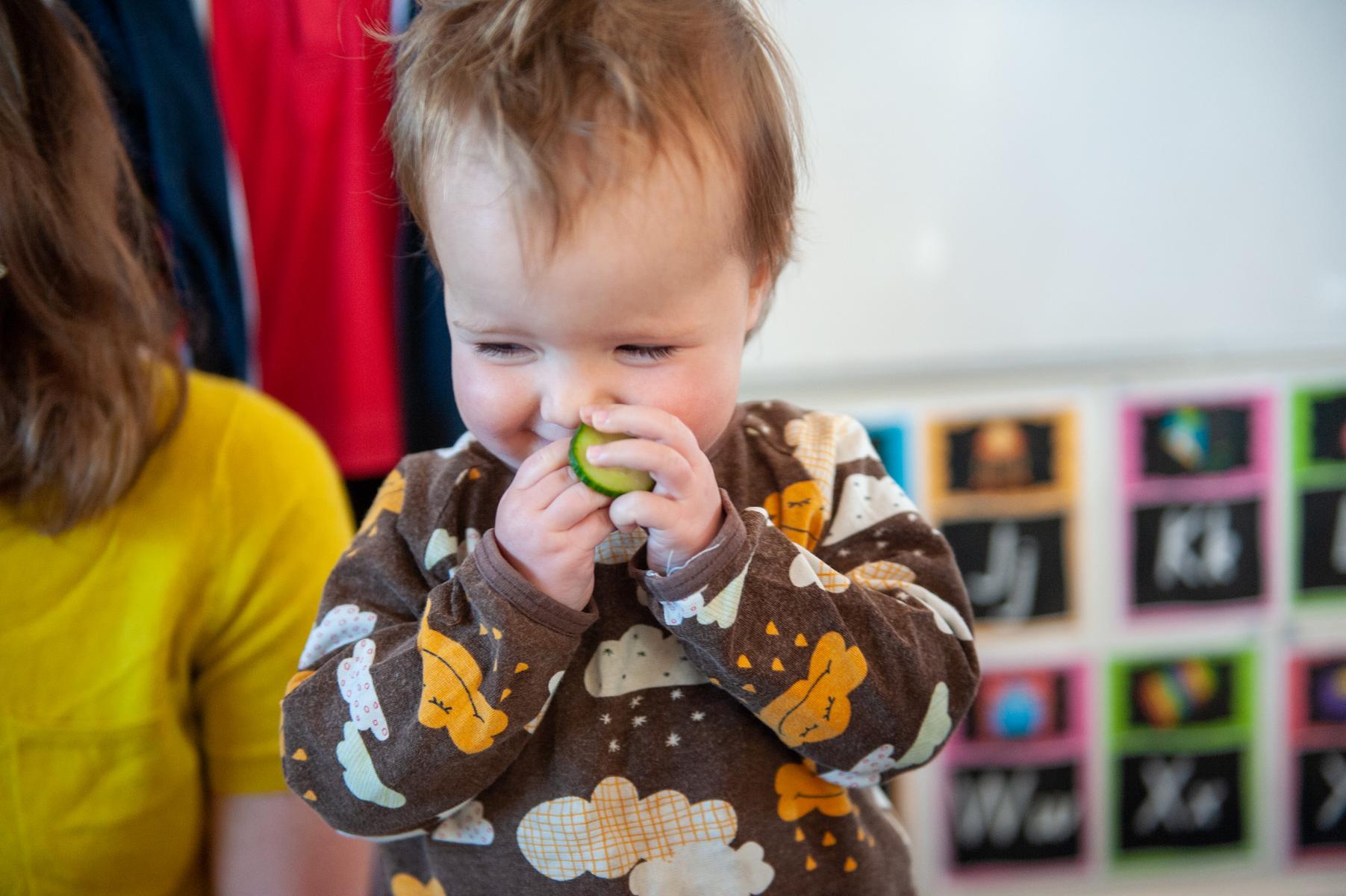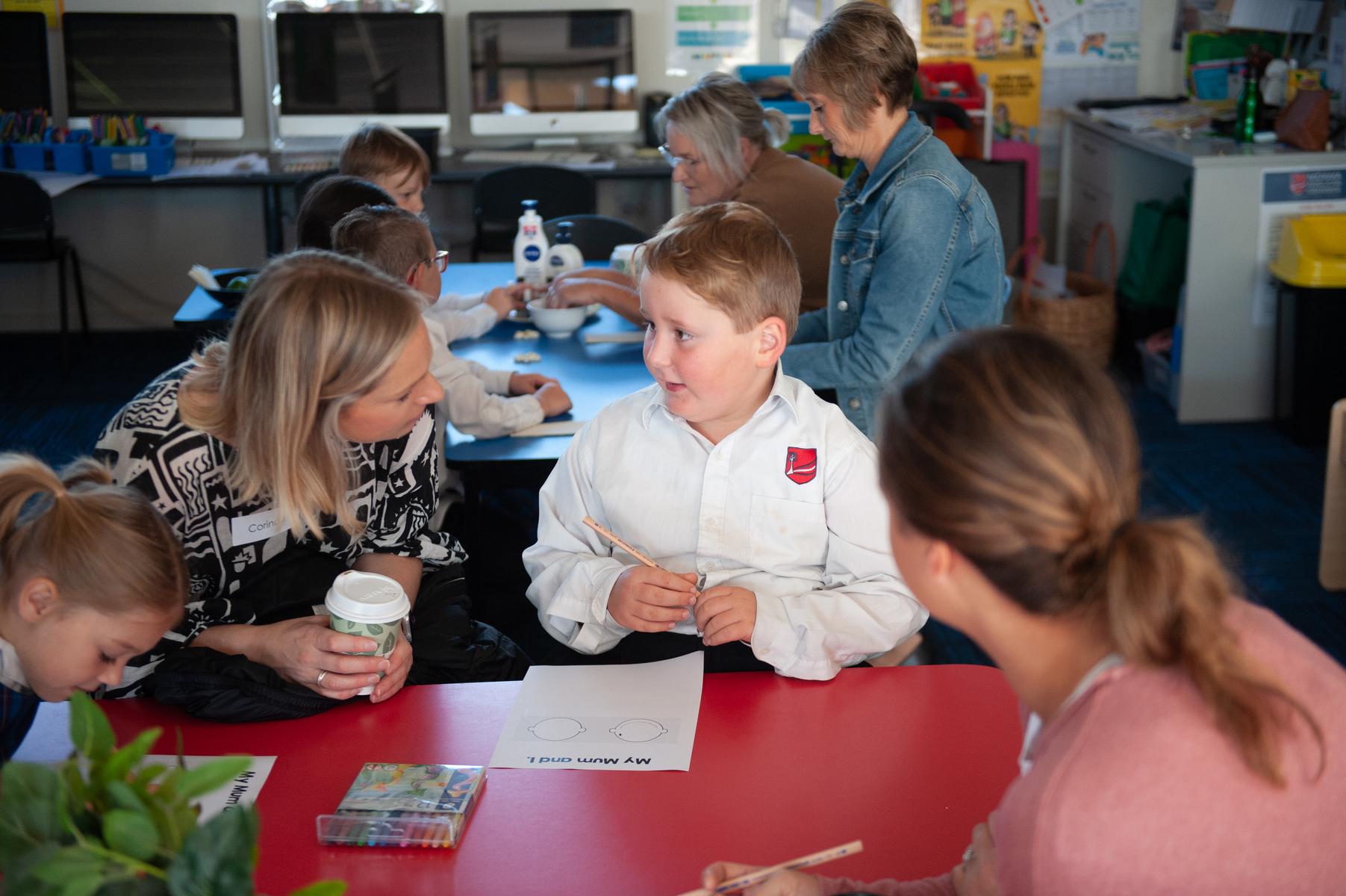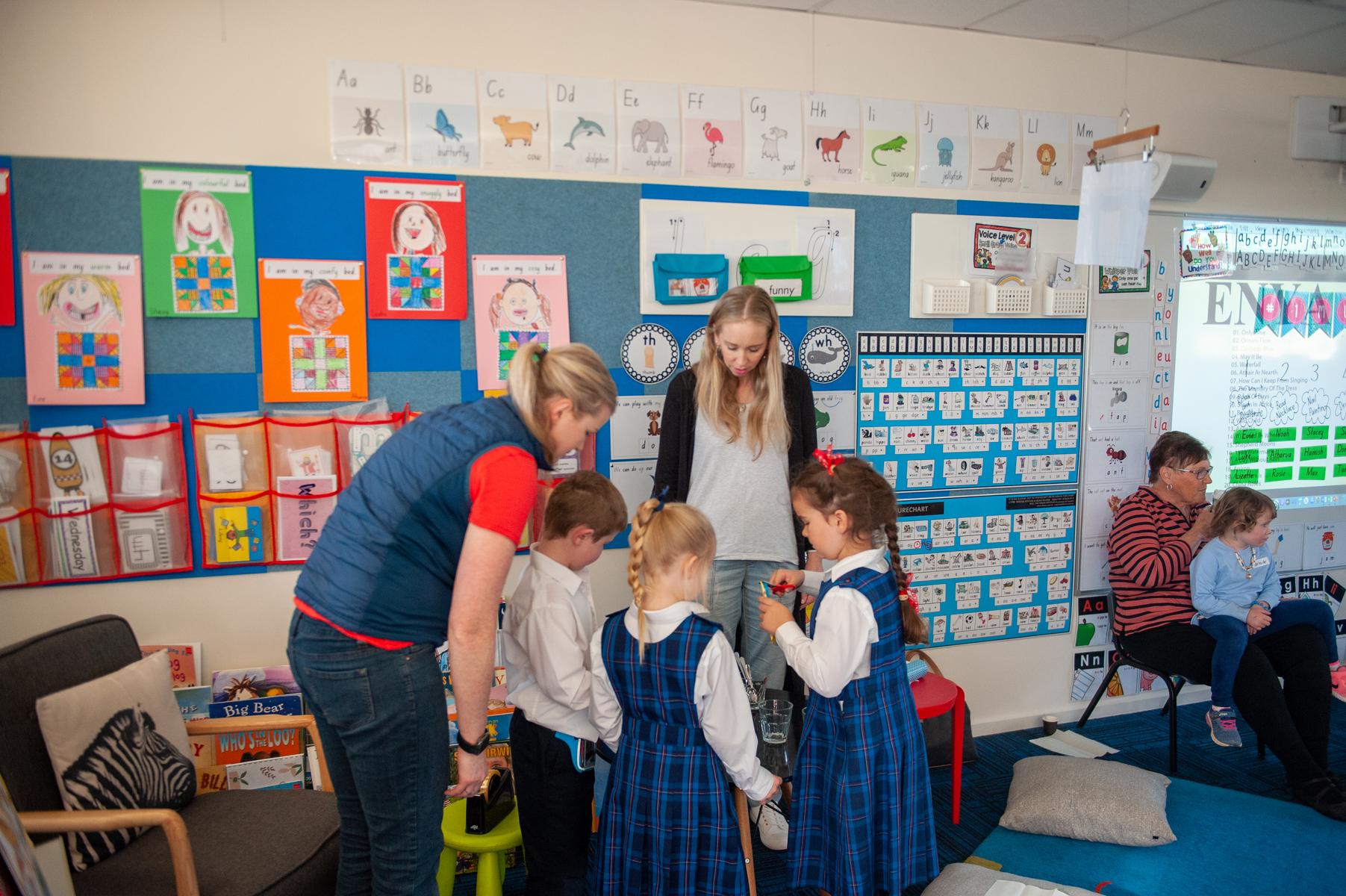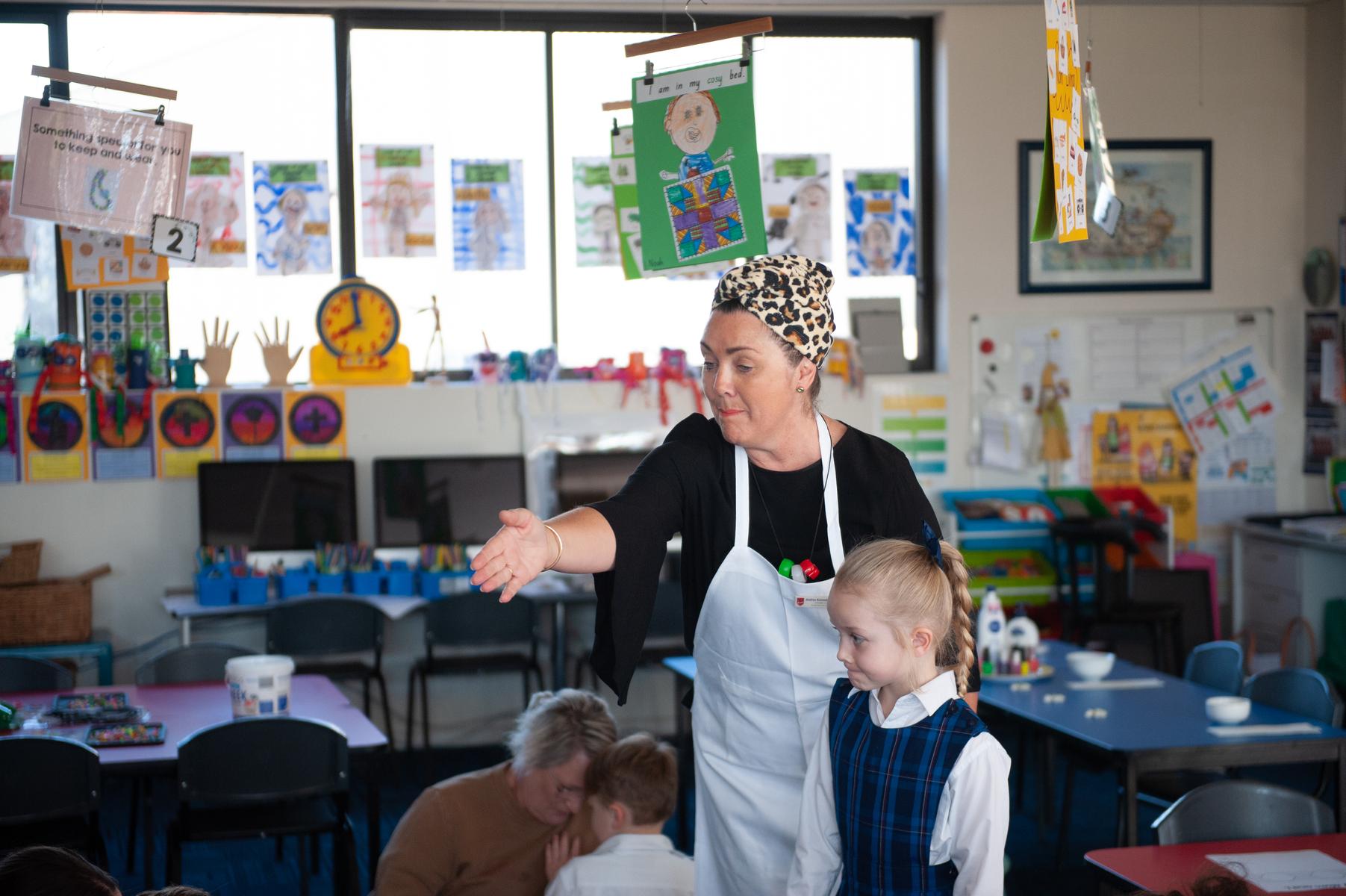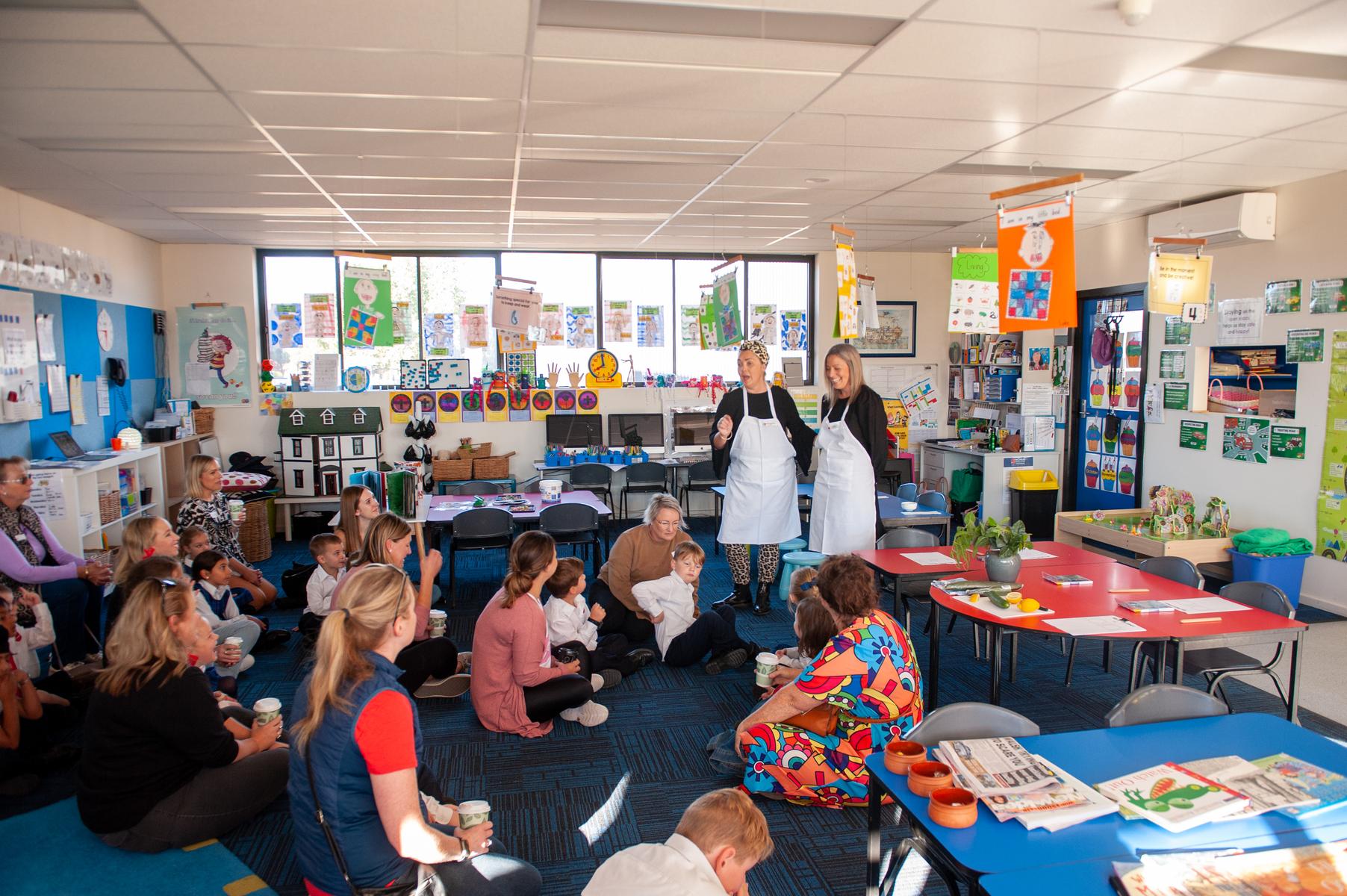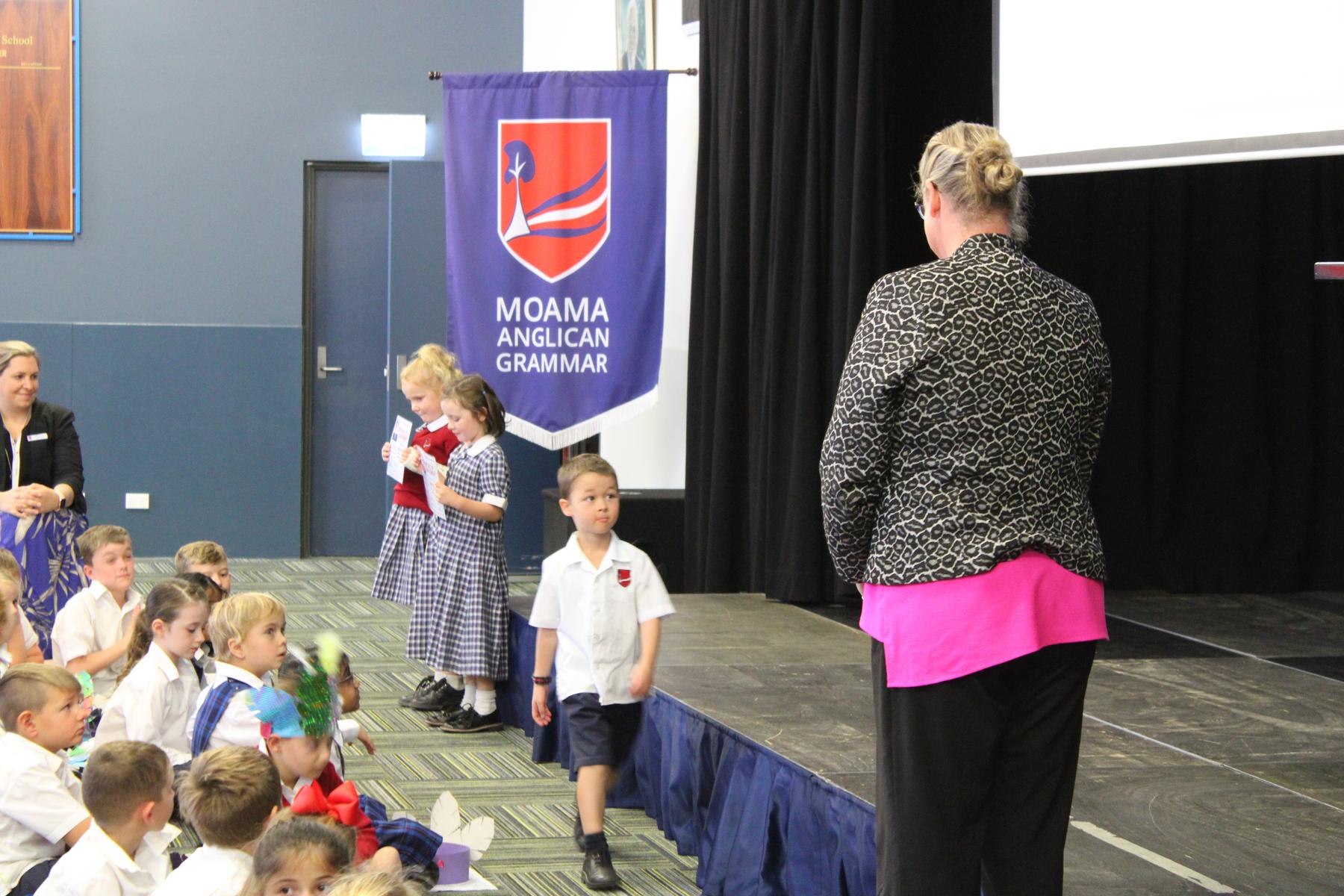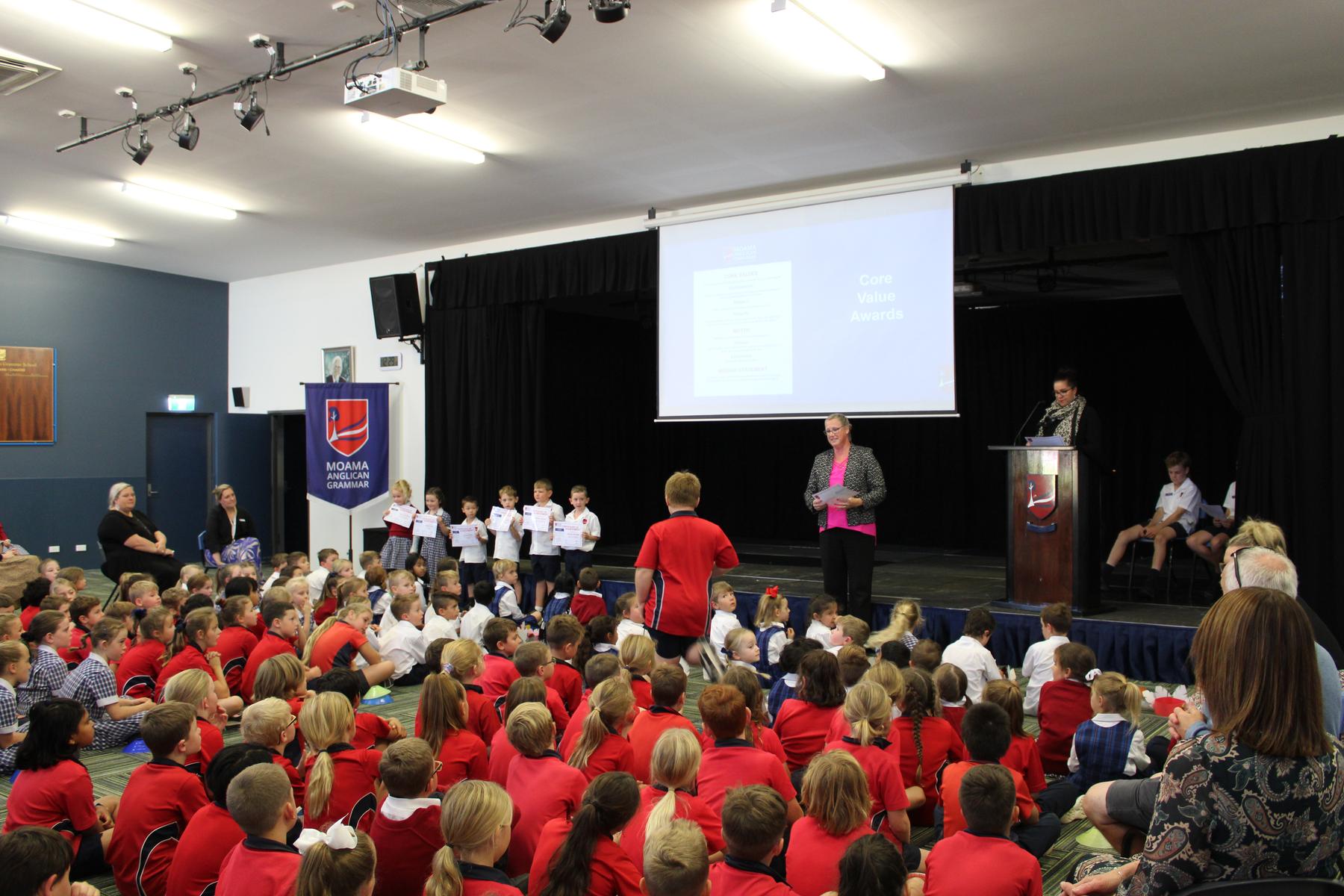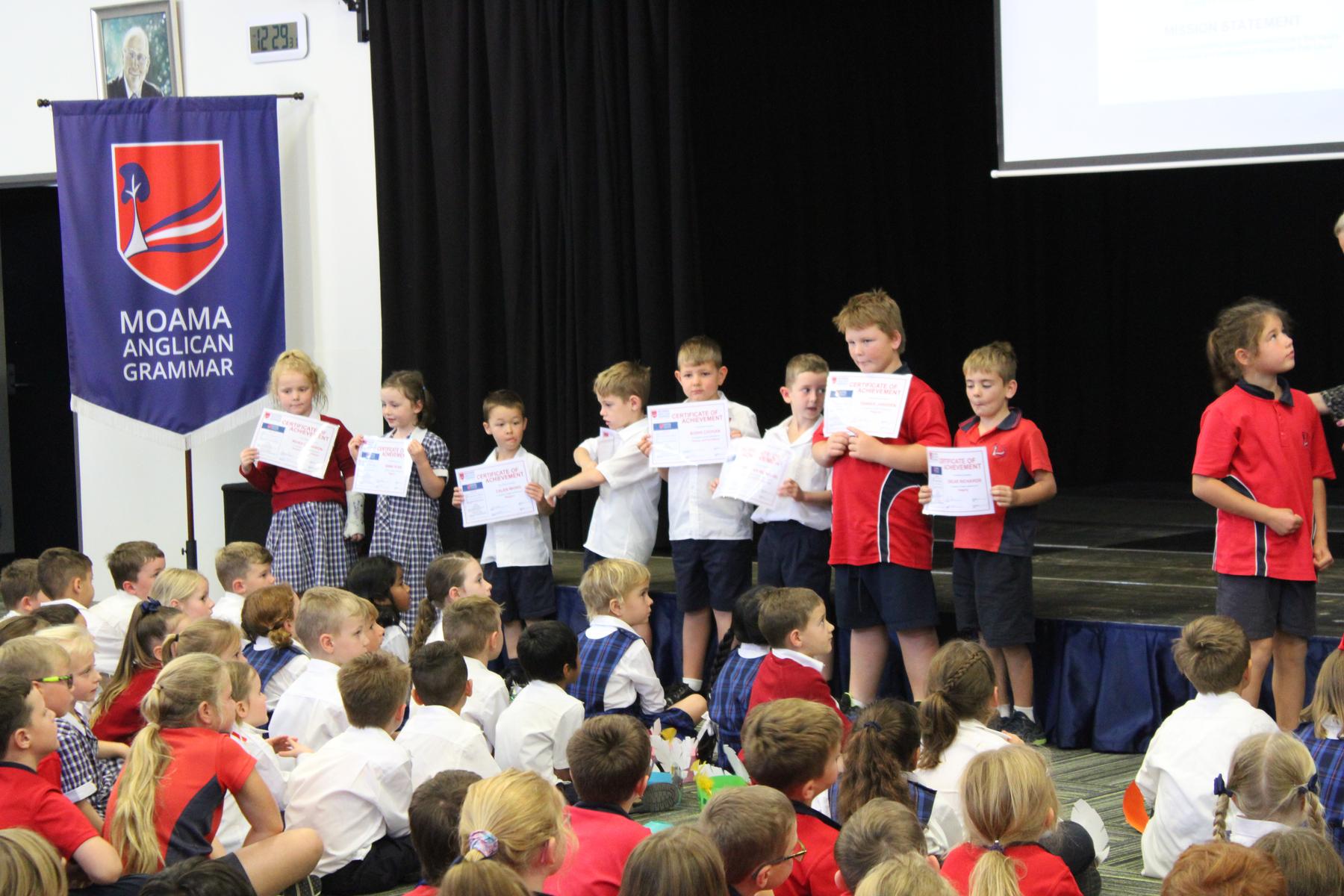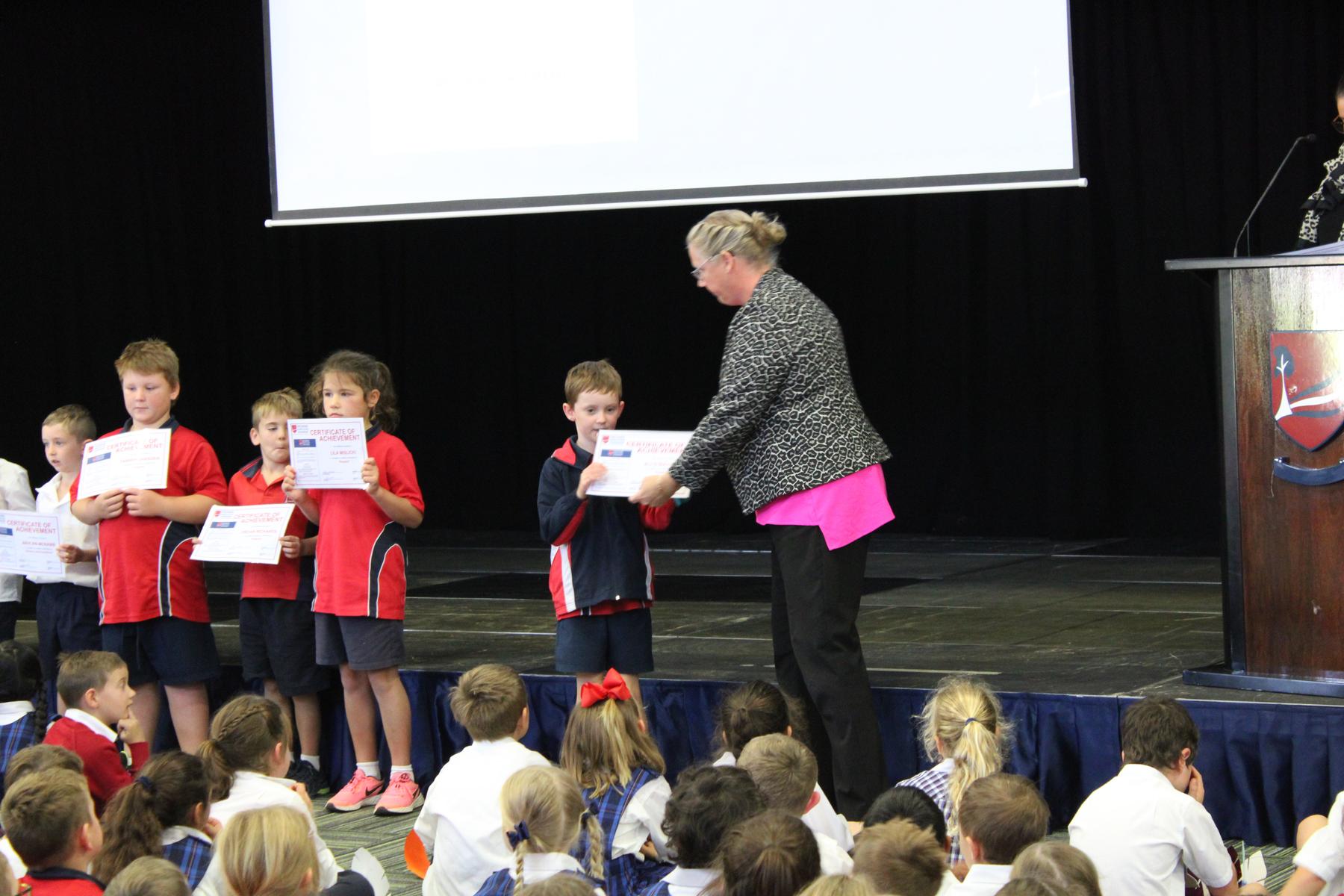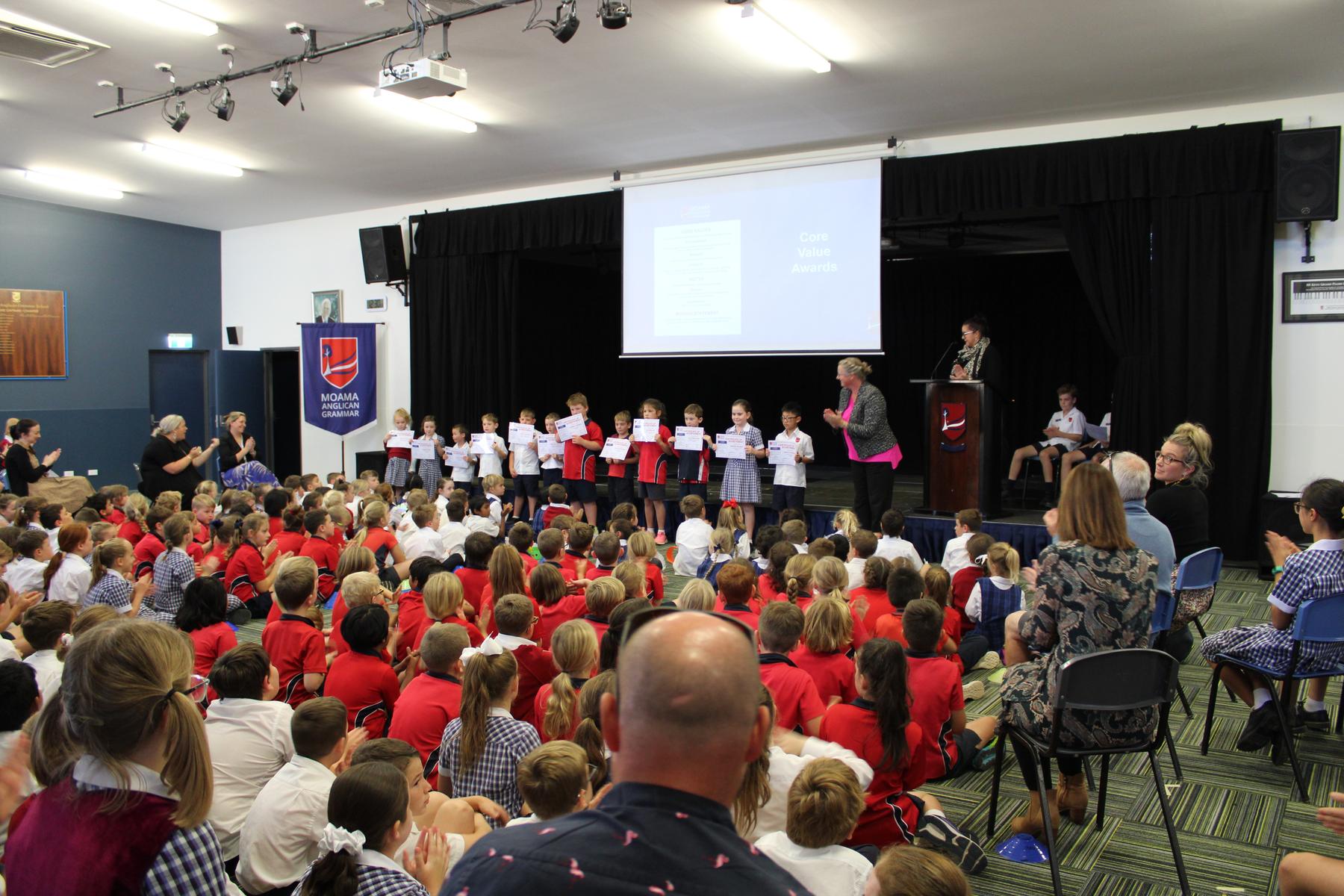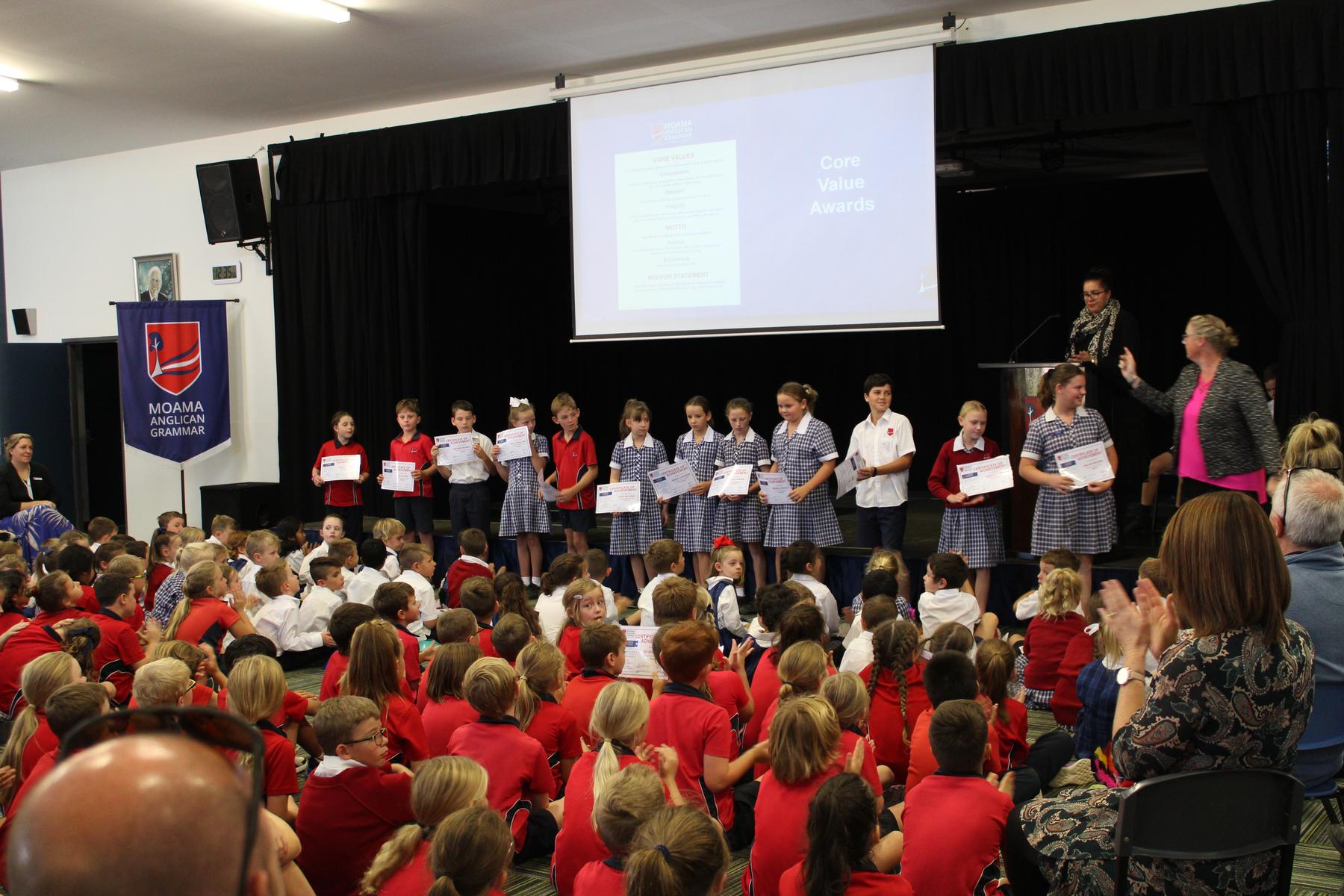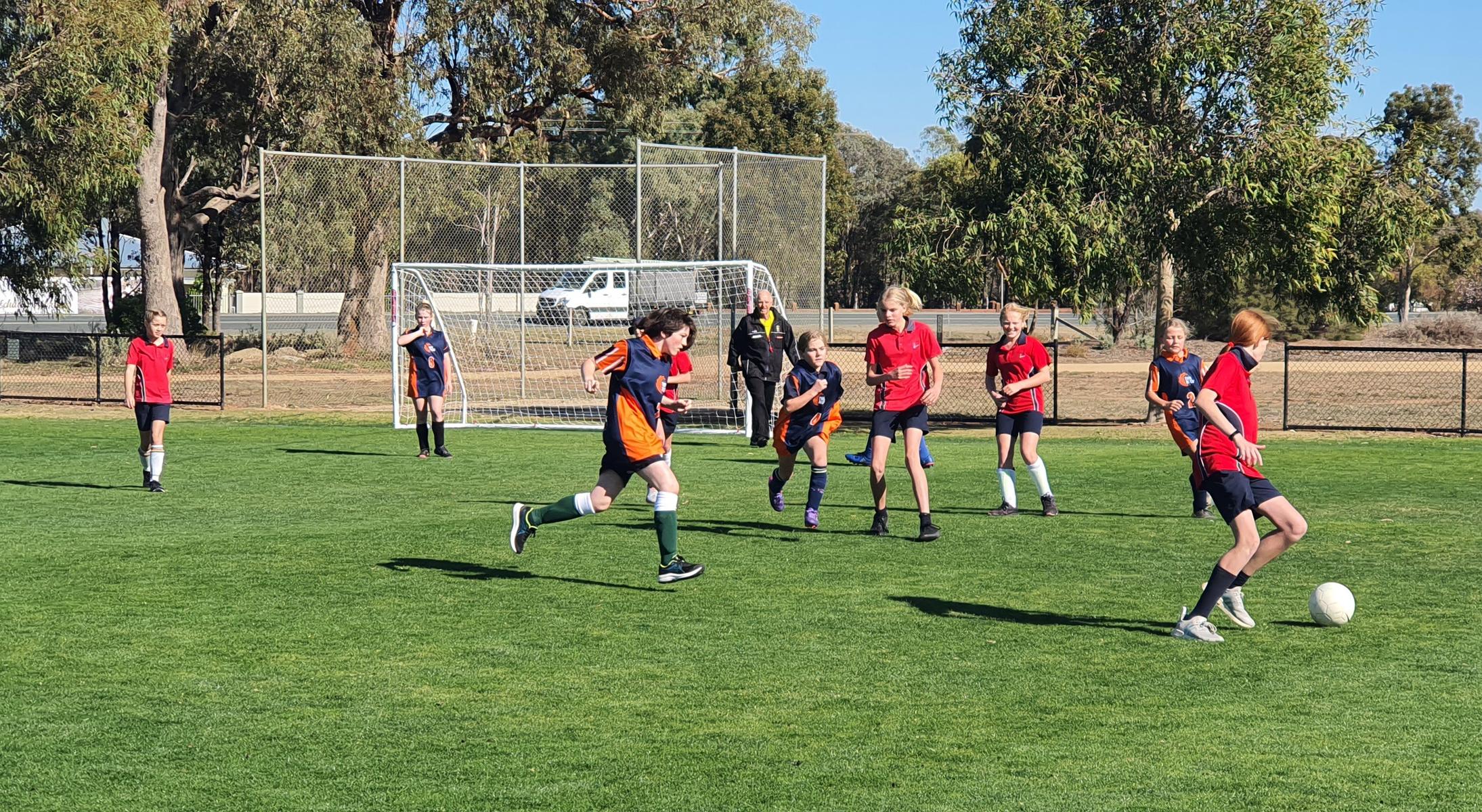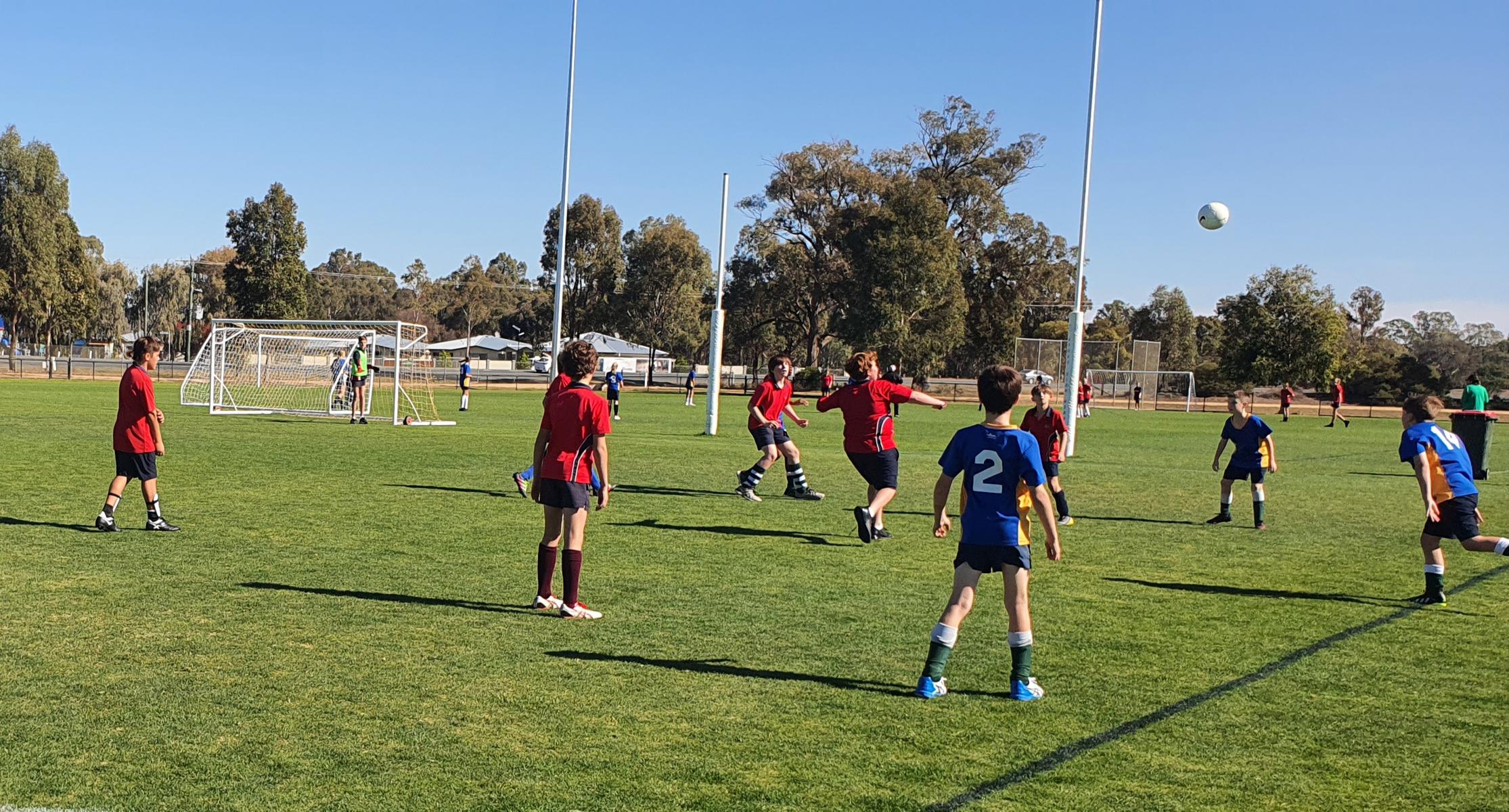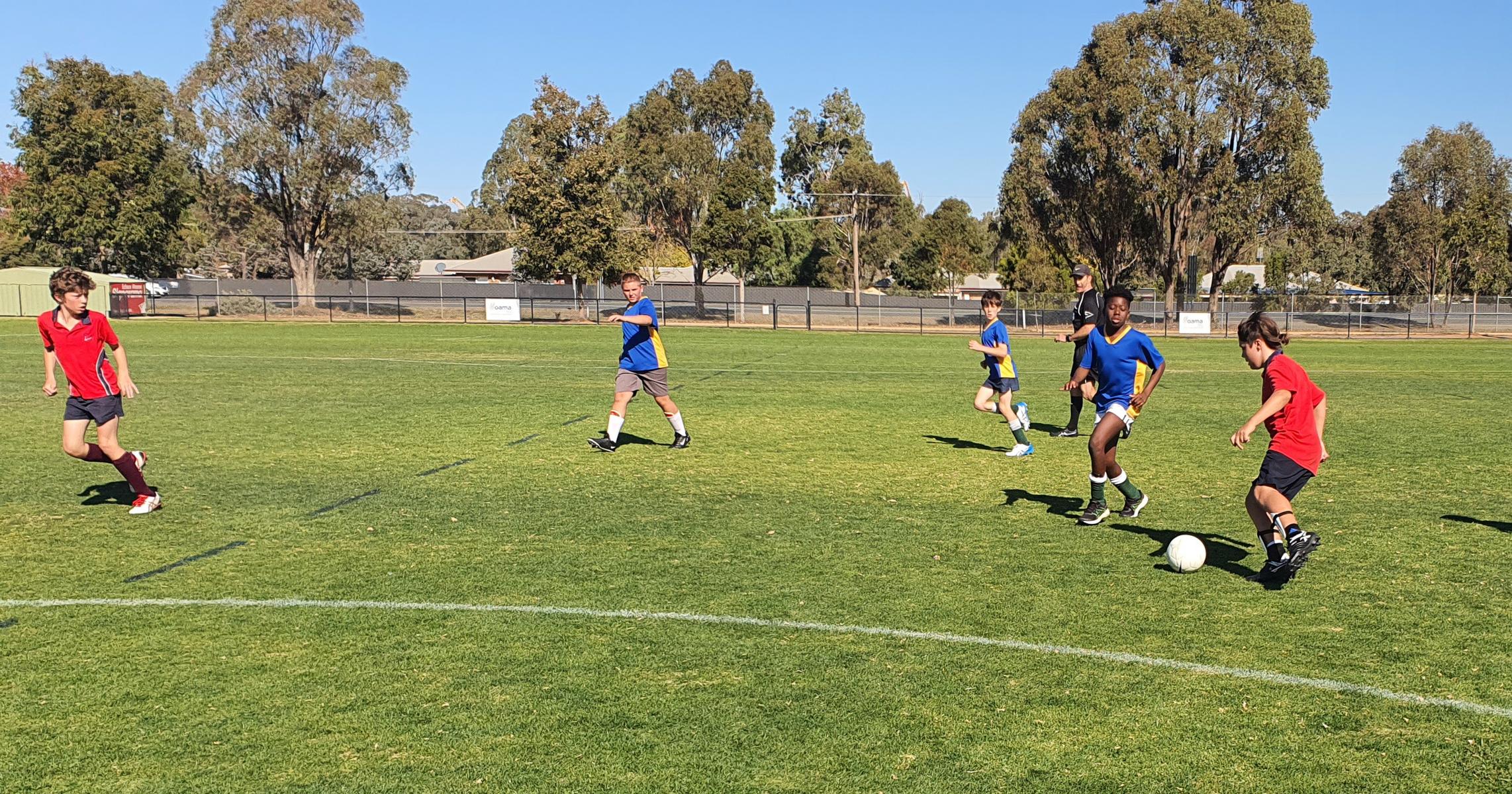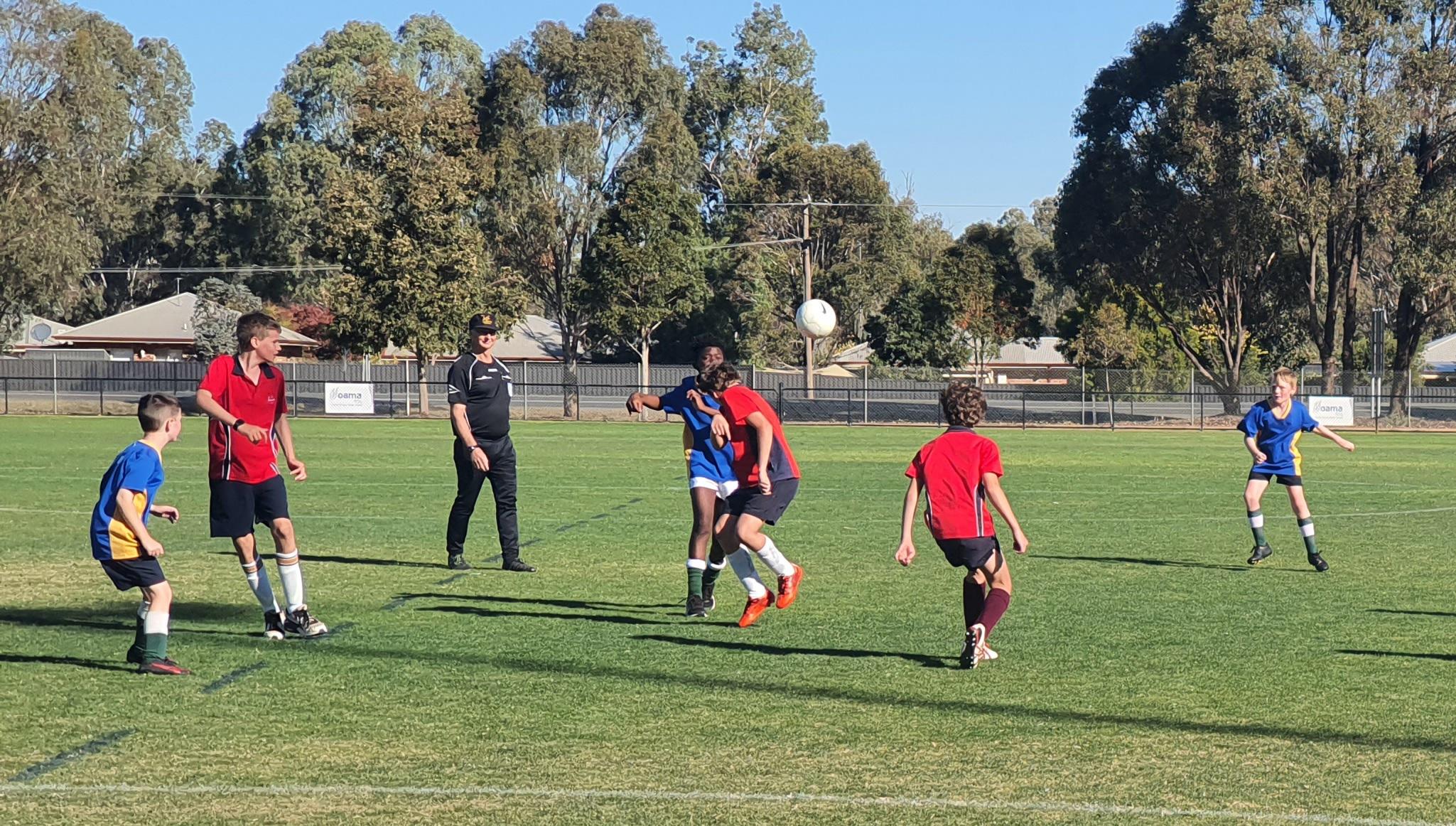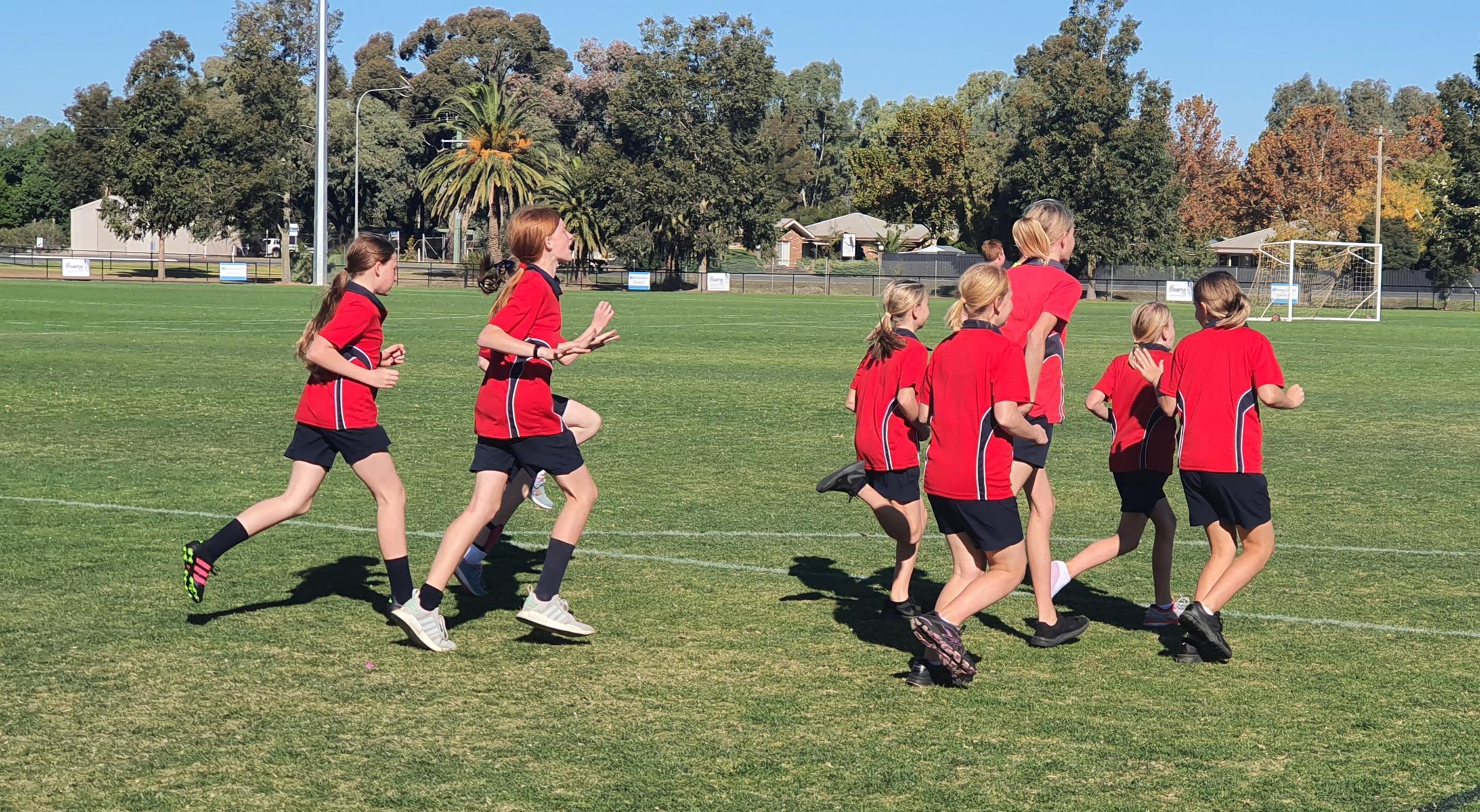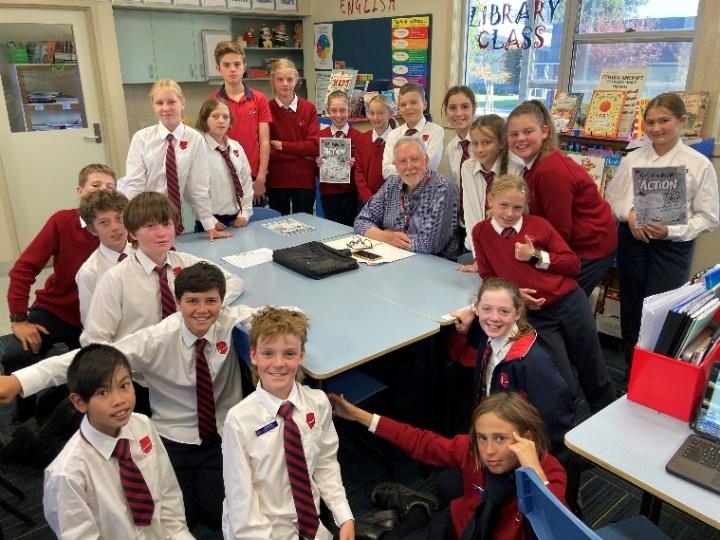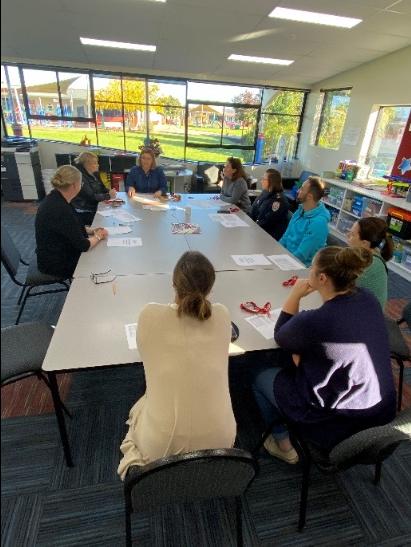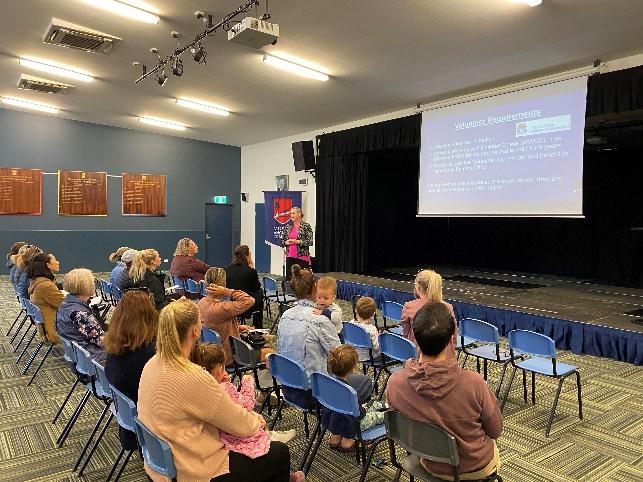Primary
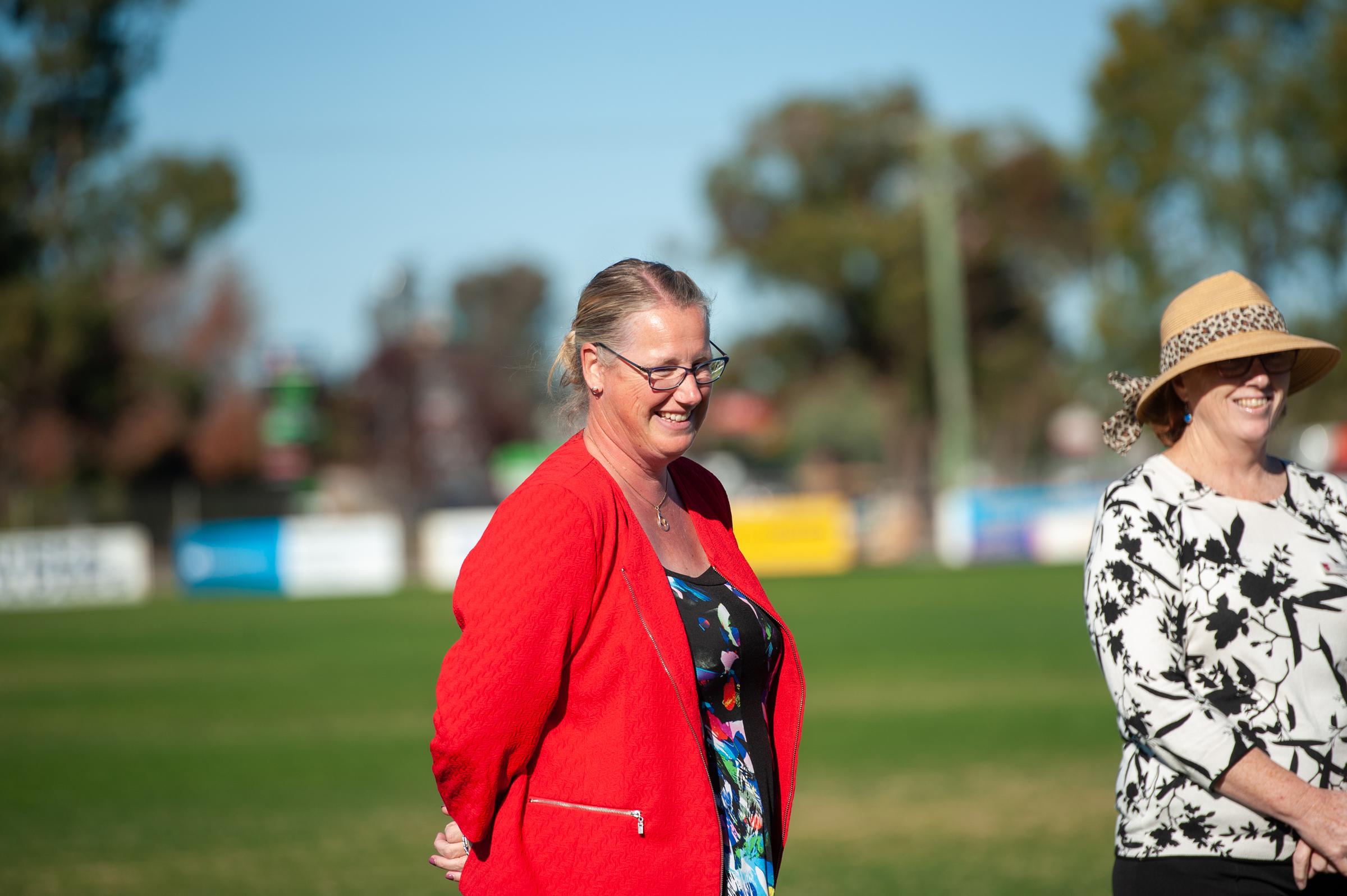
Head of Primary's Update
Being part of a community gives us a sense of belonging. It enables us to share personal relatedness and support growth of each other, ourselves and our environment. It is on days like Foundation Day and the Primary Athletics Carnival day, that I feel incredibly grateful to be a part of the Moama Anglican Grammar community. Throughout both days, there was a great sense of community spirit which I am sure was felt by anyone who attended. The staff’s commitment to provide the students with these opportunities should not be taken for granted and I would like to thank in particular Mr. Greg Cadd for organising these events and including the Senior School students in supporting and encouraging our young athletes.
Being a part of a community also comes with responsibilities, in particular when it comes to student safety and road safety. Concerns have been raised about parents parking opposite the bus lane in Kirchhofer Street and crossing the road through the parked buses. Whilst we understand that driving into the Primary car park and finding a car park could be considered an inconvenience, student safety should be our first priority at all times. Similarly, as we move into the colder Winter months, it is important that families make sure they are waiting at the bus stop as students disembark from the bus. Your support in both these matters is greatly appreciated.
I would like to thank all our visitors this morning for attending our Mother’s Day celebrations. It was great to see all the fun and creative activities the students had planned for their significant other and there was an overall feeling of positivity in the air. What a great way to finish this busy week.
Moama Lights
On Thursday 6 May, Mrs Zweck and I attended the Moama Lights preview, before its official opening on Saturday 8 May. We were blown away by the magical light installations which tell the story of Echuca Moama. It was great to see the beautiful artworks from local students and I would highly recommend attending this exciting event if you get the opportunity.
The event runs until Saturday 22 May.
For more information please click on the link https://www.echucamoama.com/moama-lights.
Tickets are currently SOLD OUT, but there is a waiting list if you call the Information Centre.
Core Value Awards
Core Value Award are awarded to students who consistently display one or more of the school’s core values and motto. Congratulations to the students listed below who received their Core Value Awards at our Primary School Assembly on Wednesday 28 April.
During the Foundation Day Service, Mr Tim Bowles discussed the concept of excellence. Excellence at Moama Anglican Grammar is striving for our personal best and supporting and encouraging others to do the same. We recognise that we all have different strengths and talents and celebrate these within our school community. Excellence is an outward expression of inner integrity, passion and a strong drive to make a true difference within our school and our community.
COMPASSION | RESPECT | INTEGRITY | HONOUR & EXCELLENCE |
| Kirra Elliott 6G | Caleb Wong KE | Tanner Janssen 2D | Noah Davidson KR |
| Winnie Ross KR | Oscar Richards 2D | Bodhi Coogan 1W | |
| Jack Apps 1G | Eli O’Sullivan 2M | Arhlan McNabb 1W | |
| Lila Mislicki 2M | Haruto Koreeda 3B | Neisha Davidson 5B | |
| Maggie Hillman 3B | Matthew Maxwell 4M | Annabel Pickles 5B | |
| Harlow McCallum 3Z | Ava Whitbourn 6G | Lexie Baldwin 5C | |
| Ted Palmer 3Z | Sophie Jardine 5C | ||
| Violet McGillivrary 4M | Charles Connors 6G | ||
| Nate Murphy 4P |
NAPLAN
The National Assessment Program - Literacy and Numeracy (NAPLAN) is an annual national assessment for all students in Years 3, 5, 7, and 9. All students in these year levels are expected to participate in tests in reading, writing, language conventions (spelling, grammar and punctuation) and numeracy. NAPLAN is the measure through which governments, education authorities, schools, teachers and parents can determine whether or not young Australians have the literacy and numeracy skills that provide the critical foundation for other learning and for their productive and rewarding participation in the community.
NAPLAN tests are scheduled for a two-week period, starting next week. The Year 3 Writing test is paper based the other tests are all online. Our students will use their Chromebooks and complete the tests in their classrooms wearing headphones. Classroom teachers will be administering the tests and will go through all instructions beforehand.
NAPLAN dates
Tuesday 11th May Year 3 & 5 Writing Test - period 2.
Thursday 13th May Year 3 & 5 Reading Test - period 2.
Monday 17th May Year 3 & 5 Conventions of Language Test - period 2.
Wednesday 19th May Year 3 & 5 Numeracy Test - period 2.
AEDC Data Collection
The Australian Early Development Census (AEDC) is a nationwide data collection of early childhood development at the time children commence their first year of full-time school. The AEDC highlights what is working well and what needs to be improved or developed to support children and their families by providing evidence to support health, education and community policy and planning.
The AEDC is held every three years, with the 2018 AEDC data collection being the fourth collection. The census involves teachers of children in their first year of full-time school completing a research tool, the Australian version of the Early Development Instrument. The Instrument collects data relating to five key areas of early childhood development referred to as ‘domains’, these include:
- Physical health and well being
- Social competence
- Emotional maturity
- Language and cognitive skills (school-based)
- Communication skills and general knowledge
Both Kinder teachers are scheduled to complete the AEDC data collection next week. On this day, a CRT will be teaching their class.
Mrs Julia Reid - Monday 10 May
Mrs Andrea Ripon - Friday 14 May
Soccer
May 5th, our School's 16th birthday, saw our Year 6 students take part in the annual Primary Soccer Tournament, organised by the Border Raiders Football Club. Our boys and girls teams played a total of 15 matches against other schools from Echuca, Moama, Lockington and Kyabram. Such was their skill and effort that they lost only 2 games all day! While the girls were narrowly knocked out in the finals, they played very well throughout the competition, thanks to their coach Deagan Tomkins.
The boys also competed at a high level, winning 5 of their 6 A Grade group games, a semifinal versus 208 and finally overcoming a tough St Mary's team to collect the trophy and winner’s medals!
Well done boys and girls on your achievements! A big thank you to Mr Davidson for his passion for Soccer (or football) on the day.
Get Happier Program
Some of our Year 6 students had the pleasure of inviting psychologist Ivan Honey to our classroom today. They had the chance to discuss their community based ‘Get Happier in Action’ Projects. The intention of their work is to collaborate in teams and design ways of giving back to our school community in a positive way. Ivan was amazed by their enthusiasm for giving back to others and supporting wellbeing in our community. We appreciate and thank Ivan for visiting today and sharing his expertise with our students.
Parent Classroom Representative (PCR)
Thank you to all the parents who offered to become PCR volunteers in the Primary School. The PCR volunteers attended an induction on Monday 26 April where we discussed guidelines, protocols, roles and responsibilities. PCR volunteers will communicate with different classes and year levels in a variety of ways, however, we have asked that the initial contact is made via email. The purpose of the PCR is to help foster good communication in the school and to assist in the development of an inclusive school community. It provides another means of uniting the school community and enhances the quality of relationships within the school between teachers, parents and the students.
Primary Parent Volunteer Induction
I would like to personally thank all the parents who attended one of our Volunteer Inductions. Your commitment to supporting our students in much appreciated and the teachers cannot wait to welcome you into their classrooms. If you missed any of the session and would like to become a volunteer, please contact the Primary School office to book in a time.
Nici Deller
Head of Primary
Literacy Corner with Brooke Barber
Primary Literacy Coordinator
The proven benefits of reading with your child
Parents and carers who read aloud with children in a secure, safe and comfortable context motivate their children to read.
Parents’ perceptions, values, attitudes, and expectations play an important role in influencing their children’s attitudes toward reading, and subsequent literacy development. When children share a book with someone who makes them feel special, the attitude that reading is pleasurable is transferred to other reading encounters.
Relationship building
At the core of reading is a relationship and it is the bond between children and parents that is enhanced through reading together. It only takes ten minutes a day to build this relationship.
Children’s reading improves
The research is conclusive: When parents successfully support their children’s literacy learning from an early age, everyone benefits. When teachers and parents work together to support children’s reading and academic success, learning outcomes for all children improve.
Children read more
Students who read with their parents are better prepared for school. They begin school with knowledge of book language and familiarity with concepts of print. They understand how books work and have many more exposures to text types and vocabulary.
Children’s self-esteem improves
Knowing someone cares enough to take time out of a busy schedule to give you undivided attention around a book makes a significant difference to how students perceive themselves as learners and readers. When parents show an interest in their children’s learning, children respond positively.
Reading unites families through shared stories
When a family reads together, stories form a common ground for communicating. Stories bind families and help students makes sense of where they fit in the world.
Not only does parent involvement have a specific and profound impact on children’s reading, but also on children’s language and literacy learning in general. It is through interactions with parents and carers that children learn new vocabulary, seek clarification of new understandings, and learn to comprehend their expanding worlds. Talk is the key to reading and writing success. Talking with children (walking to school, at the table, in the car, bedtime) has a significant effect on literacy learning in general.
Lowe, K. (2017) Parents’ guide to helping children with reading and writing at home. PETAA.
https://www.petaa.edu.au/w/Teaching_Resources/Parents_guide.aspx/#benefits
Number Talk with Stacey Briggs
Primary Numeracy Coordinator
What a fear of maths does to children – new research: Part 2
Written by Morsanyi, Tomasetto, O’Connor & Guardabassi (2020)
Lifelong impact
But the implications of maths anxiety go far beyond school. People who feel anxious about maths might also experience difficulties in their everyday life, such as making worse decisions about their finances and health.
An example is when people feel uncomfortable in interpreting statistics and graphs relating to the effects of COVID-19, and yet need to make lifestyle choices based on this information.
Other forms of anxiety, as well as procrastination, avoidance of challenges, and low levels of self-confidence and self-esteem are also common among people with maths anxiety. Overall, mathematics anxiety can have a strong impact on people’s life success and satisfaction.
Parents and teachers can transmit negative attitudes and anxiety towards maths. Some intervention approaches focus on increasing parents’ confidence in their own ability to help their children in learning maths and providing them with ideas for fun maths games that can be played at home.
Computer programs and apps have also been recommended for practising maths. One advantage of this approach is that computers offer a motivating, attractive and nonjudgmental environment for practising some essential skills, and they can be used without the contribution of trained professionals.
Other research suggests that drawing students’ attention to previous instances where they successfully overcame challenges in their maths learning can boost self-confidence and lead to more positive attitudes and less anxiety. Indeed, high levels of maths anxiety are not always associated with low levels of performance. The problem is that people with high levels of anxiety fail to reach their full potential. Practising maths with a tutor can also reduce anxiety.
Although mathematics anxiety is linked to a host of negative consequences, there are many ways for people to deal with their anxiety and avoid these negative outcomes. Nevertheless, an even better option is to avoid the development of mathematics anxiety altogether. Our research suggests that efforts to develop positive attitudes towards mathematics should start in the first years of school, or even earlier.
Morsanyi, Tomasetto, O'Connor, & Guardabassi. (2020). What a fear of maths does to children – new research. Retrieved 9 February 2021, from https://theconversation.com/what-a-fear-of-maths-does-to-children-new-research-150108

